一 : burst的近义词辨析
burst有爆裂,炸破; 使爆炸; 充满等意思,那么你知道burst的近义词有哪些吗?下面我们为大家带来burst的近义词及辨析,欢迎大家一起来学习!

break, burst, crack, crush, fracture, shatter, smash
这些动词均含"打破,弄碎"之意。
。www.61k.com)break 常用词,含义广泛,多指猛然用力将坚硬物打破或损坏。
burst 指某物因内部外部压力过大而出现严重破裂、爆开或账破。
crack 多指因长期使用或经受压力,物体表现呈现裂纹、裂口或破裂、裂开,但一般没成碎片。
crush 指用力把东西压破或变形。
fracture 比crack的破裂程度更深更严重,常指断裂,医学上指骨折。
shatter 指破裂为许多支离破碎的碎片,多用指易碎事物。
smash 指突然而猛烈地重击某物,使之破碎或完全变形。
1. A brilliant shaft of sunlight burst through the doorway.
一束耀眼的阳光从门口照射进来。
2. Her burst of exuberance and her brightness overwhelmed me.
她勃发的热情和阳光的性格征服了我。
3. Rachel burst out as the door was flung open again.
当门被再次猛地推开时,雷切尔冲了出去。
4. The avenues lined with jacaranda trees burst into a carnival of purple.
大街的两旁种着蓝花楹,绽放的花朵汇成一片紫色的海洋。
5. The men burst in wearing balaclavas and brandishing sawn-off shotguns.
头戴遮脸盔式帽、挥舞着短管猎枪的几名男子冲了进来。
6. It is not a good idea to burst a blister.
把水泡挑破不是个好主意。
7. He burst into uncontrollable laughter at something I'd said.
听了我的话,他禁不住大笑起来。
8. The musicians burst into a rousing rendition of "Paddy Casey's Reel".
这些音乐家激情演绎了《帕迪·凯西的里尔舞曲》。
9. He burst onto the fashion scene in the early 1980s.
20世纪80年代初他突然在时尚界活跃起来。
10. A water main burst and the street was flooded.
总水管破裂了,整条街道发了大水。
11. The jet burst into flames and plummeted to the ground.
这架喷气式飞机突然着火,急速坠地。
12. She burst into tears and ran from the kitchen.
她突然哭了,跑出了厨房。
13. He burst into a high-pitched laugh, as though he'd said something funny.
他突然放声大笑,好像讲了什么好笑的事似的。
14. The door burst open and an angry young nurse appeared.
门突然被推开,一名怒气冲冲的年轻护士出现在门口。
15. The Ventura river burst its banks, swamping a mobile home park.
本图拉河的河水冲破堤岸,淹没了活动房区。

二 : 最全的近义词辨析
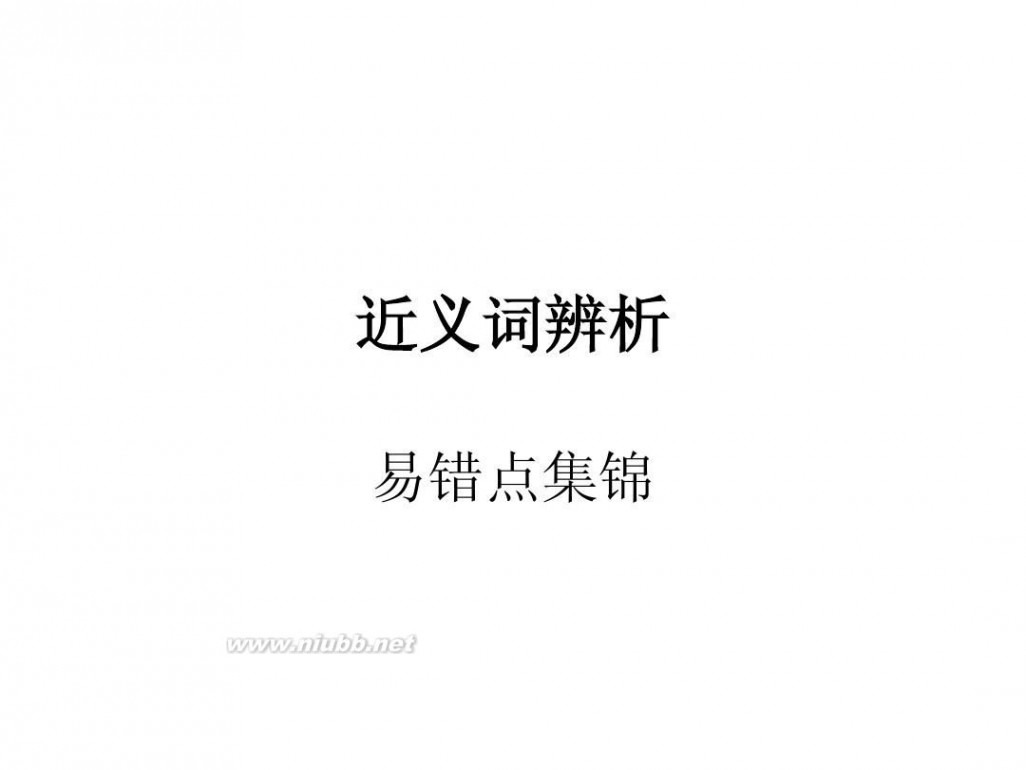
全部的近义词 最全的近义词辨析
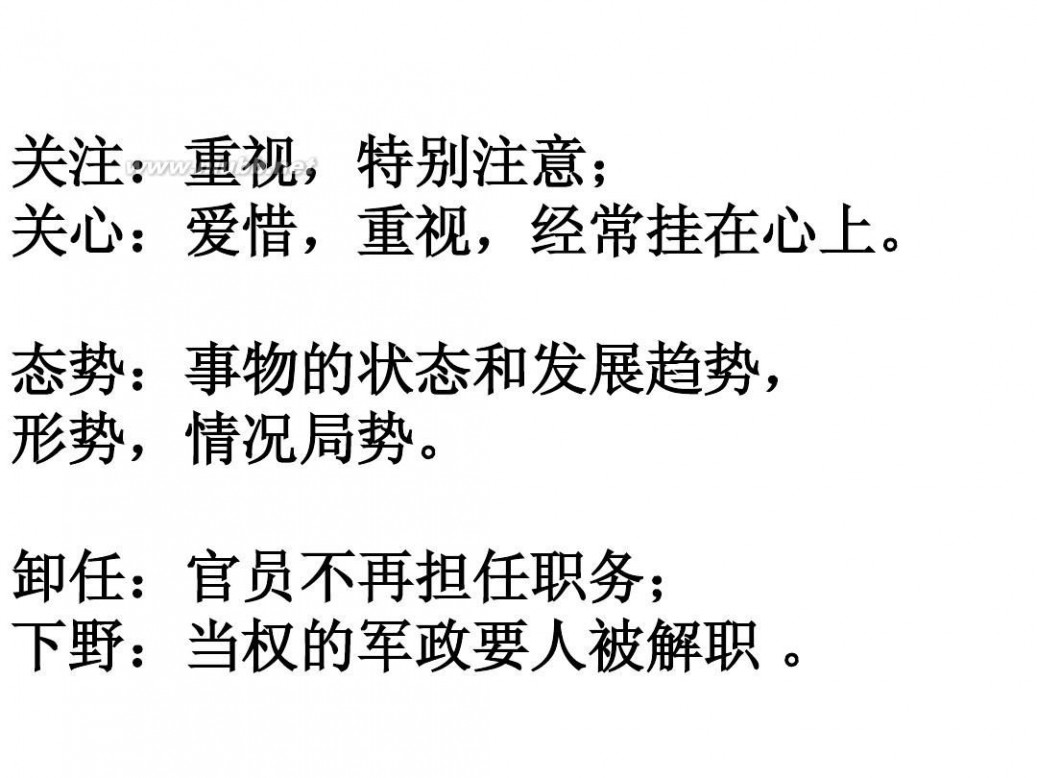
全部的近义词 最全的近义词辨析
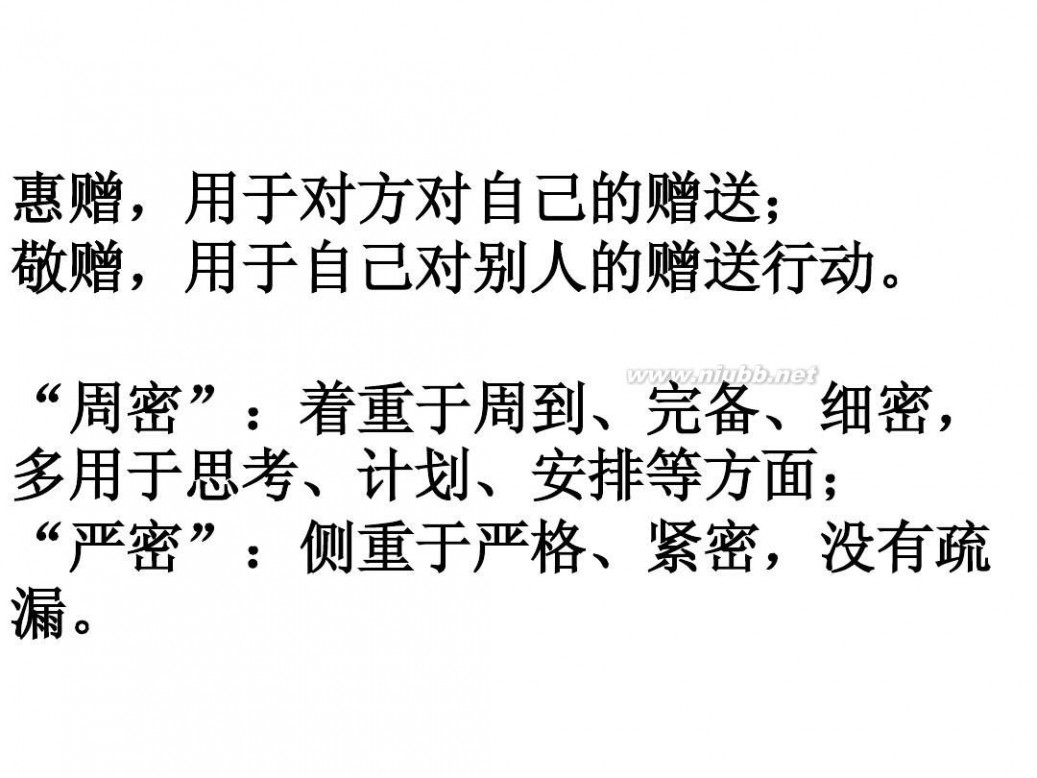
全部的近义词 最全的近义词辨析
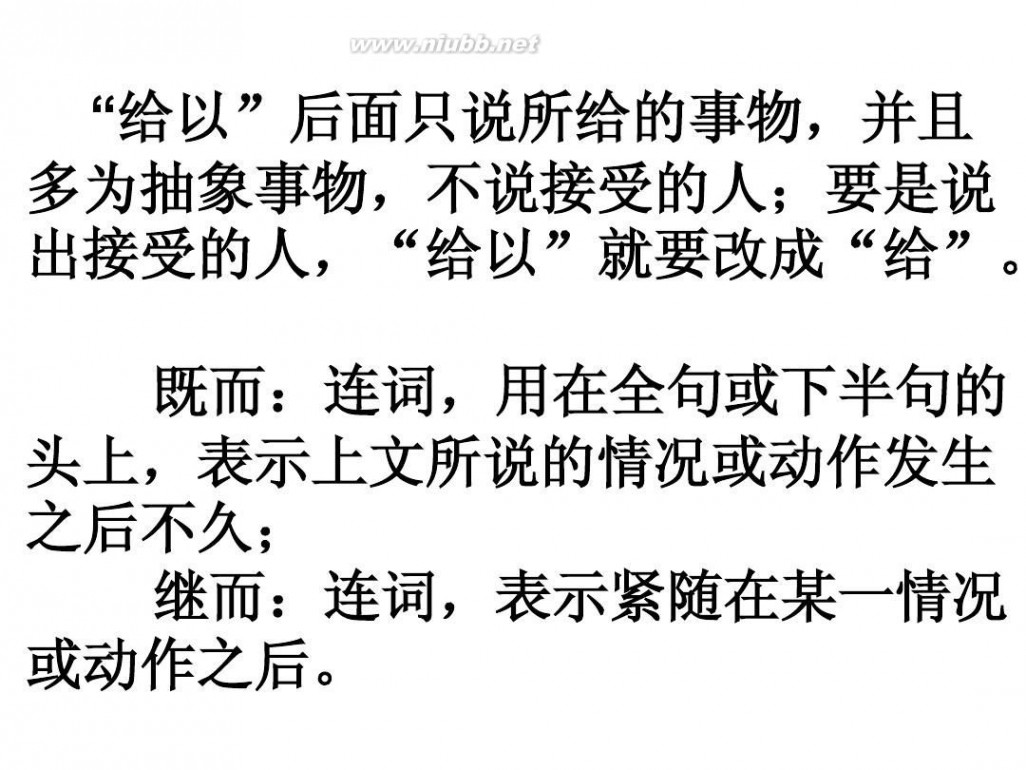
全部的近义词 最全的近义词辨析
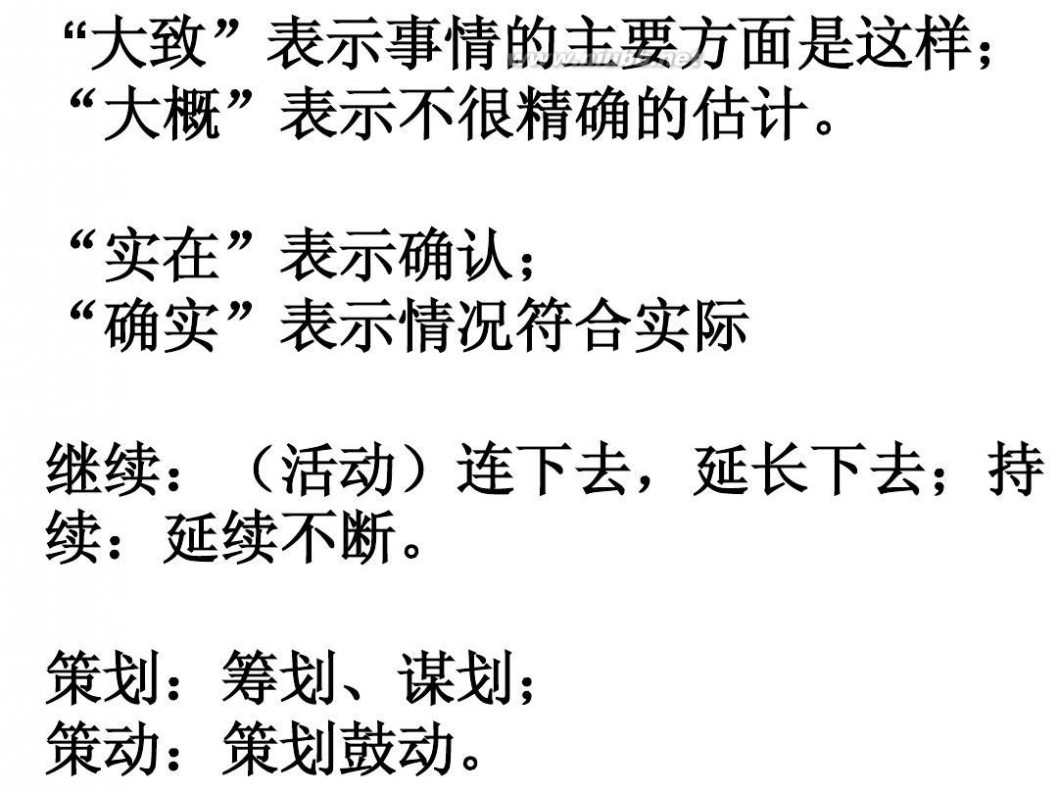
全部的近义词 最全的近义词辨析
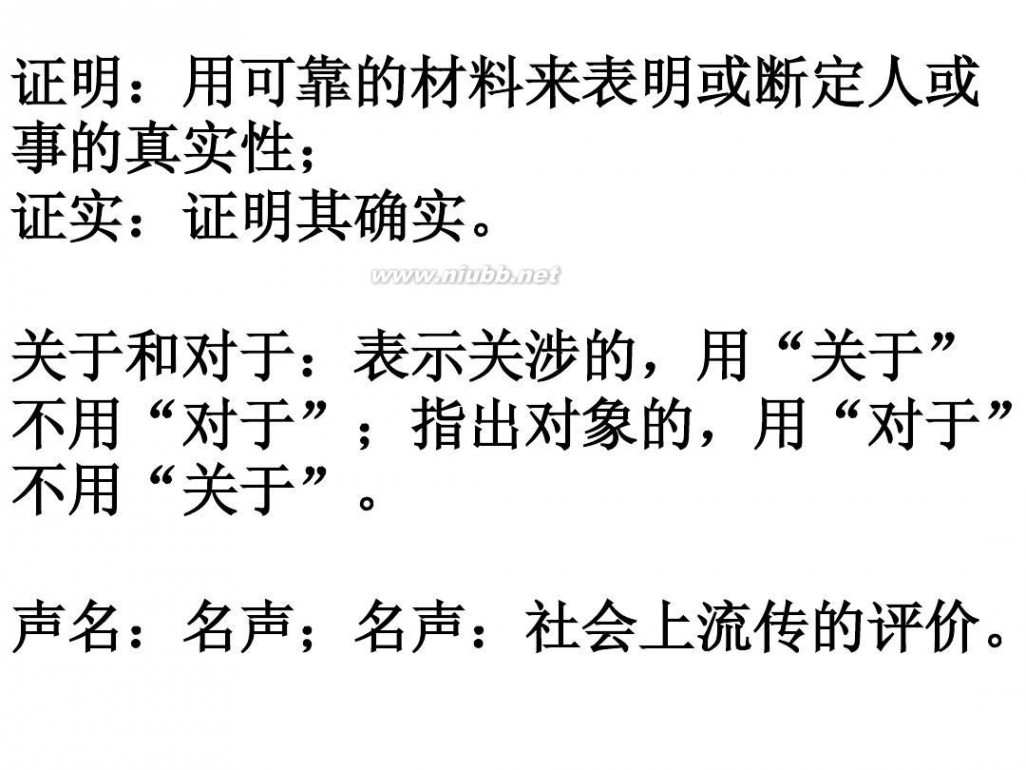
全部的近义词 最全的近义词辨析
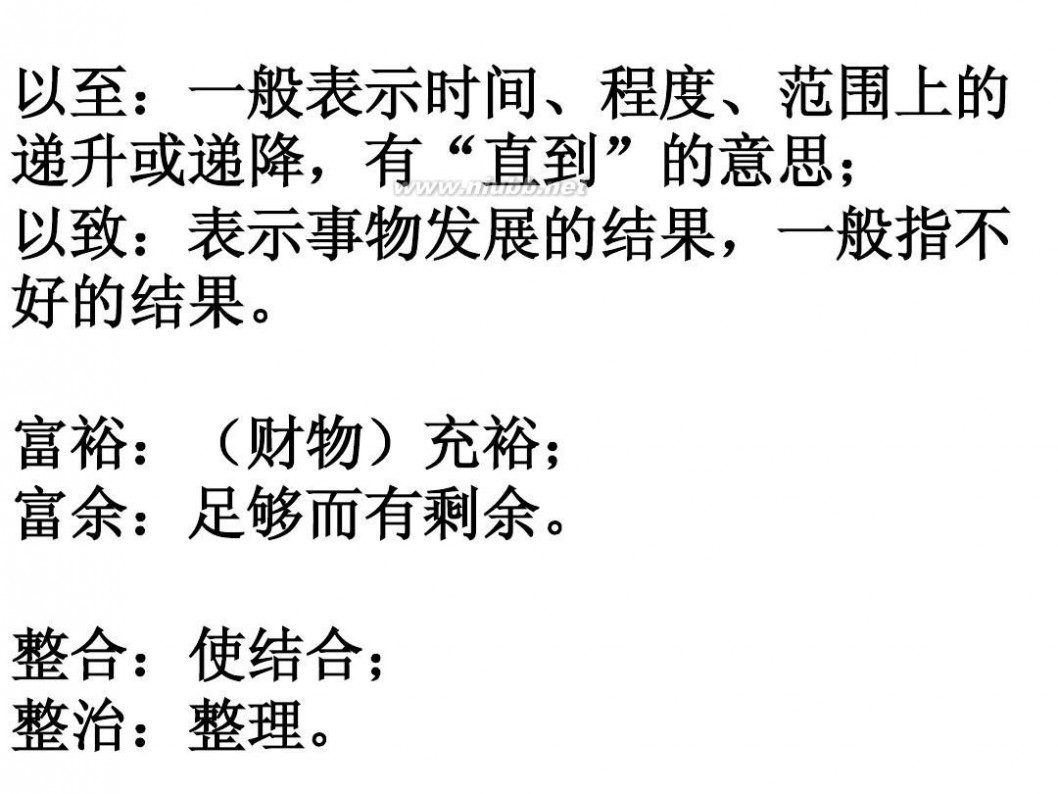
全部的近义词 最全的近义词辨析
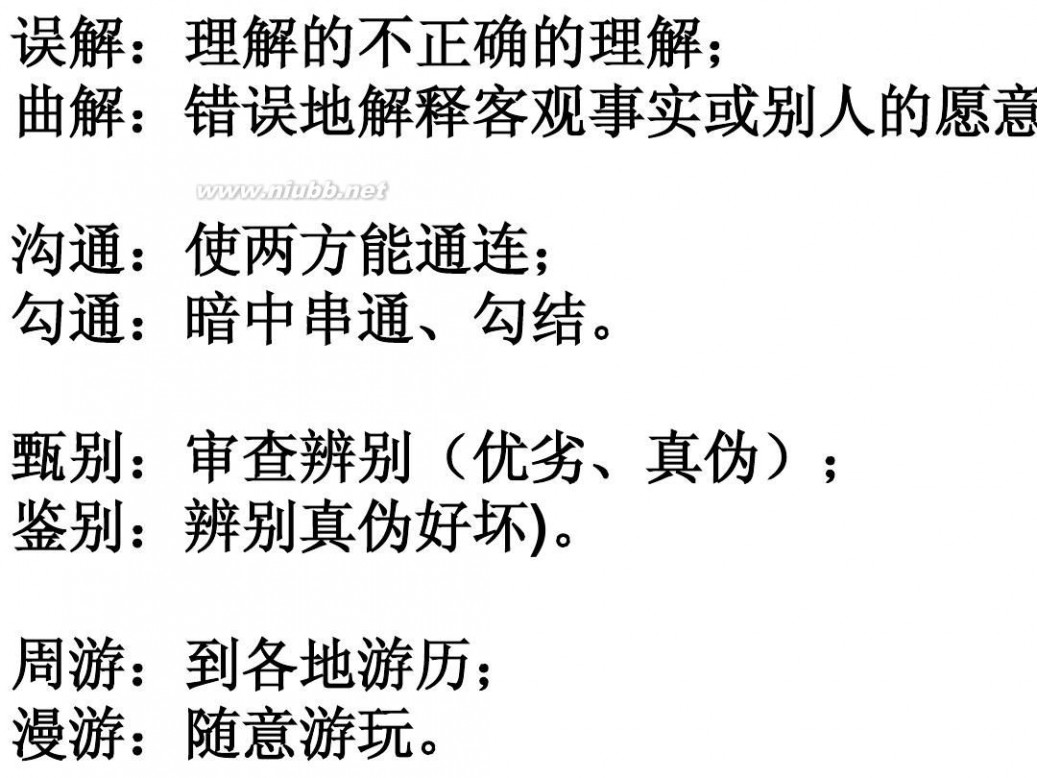
全部的近义词 最全的近义词辨析
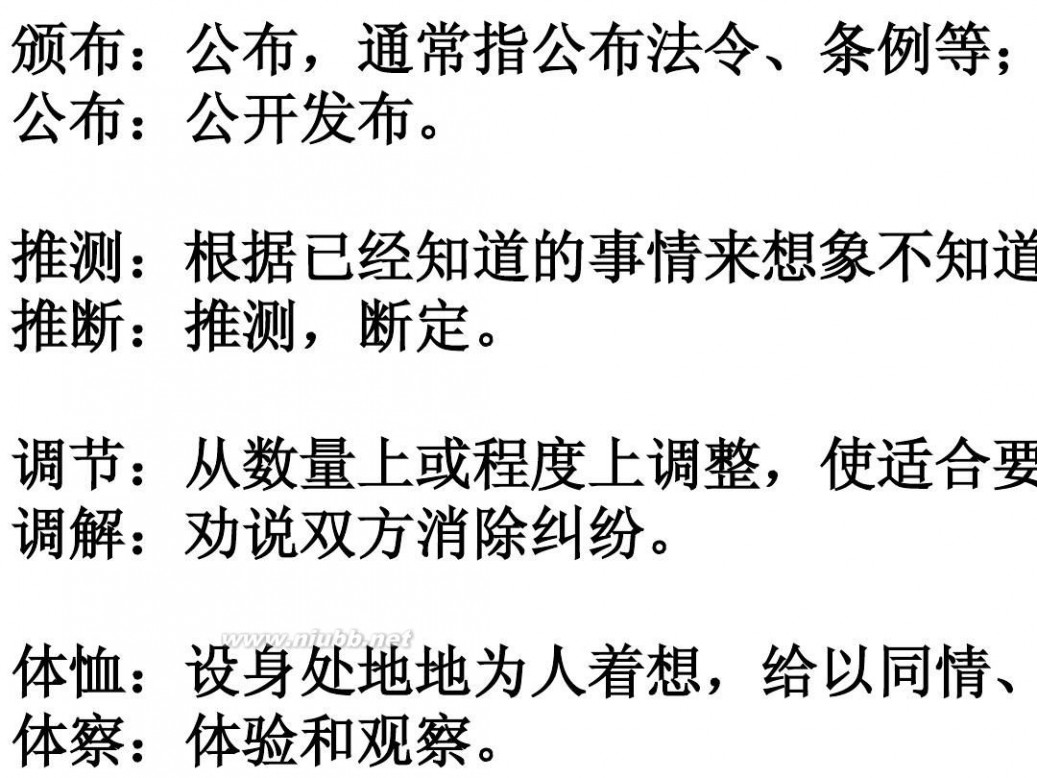
全部的近义词 最全的近义词辨析

全部的近义词 最全的近义词辨析
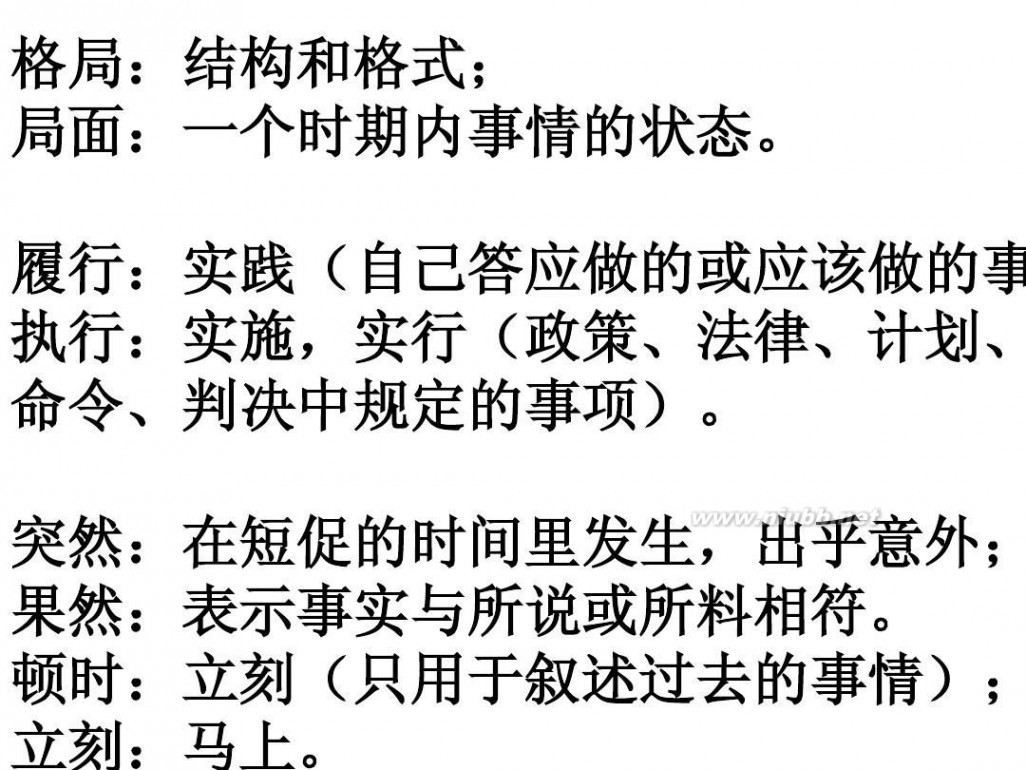
全部的近义词 最全的近义词辨析
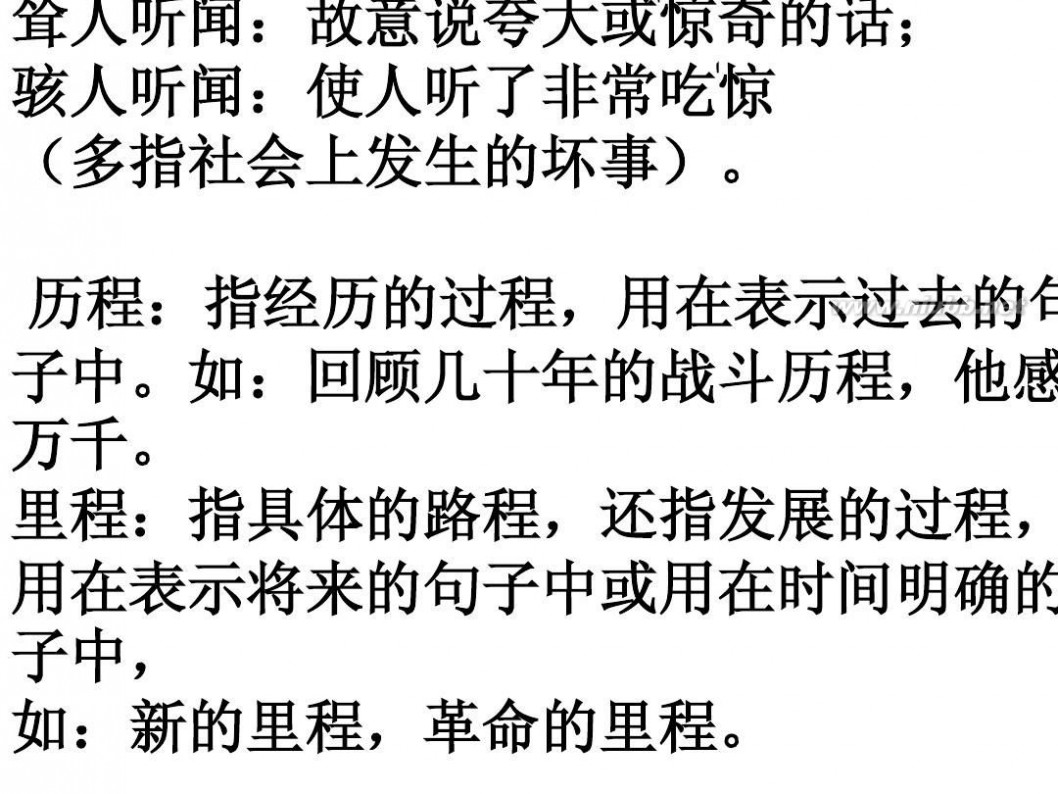
全部的近义词 最全的近义词辨析
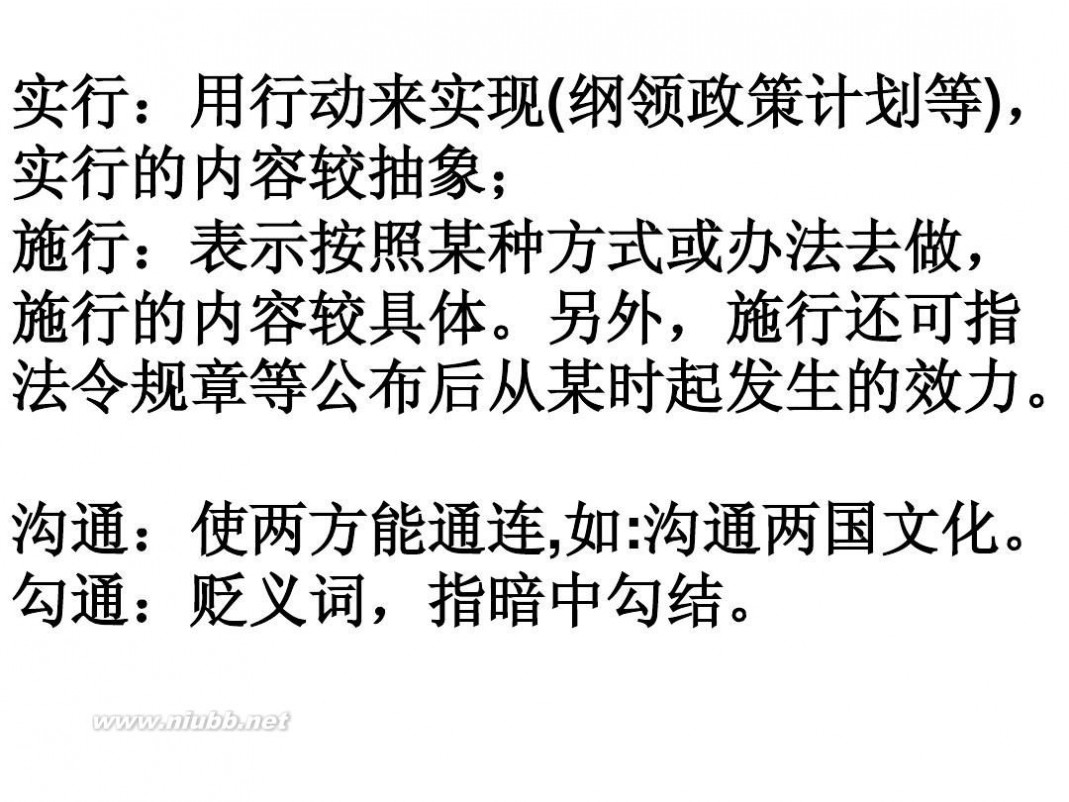
全部的近义词 最全的近义词辨析

全部的近义词 最全的近义词辨析

全部的近义词 最全的近义词辨析
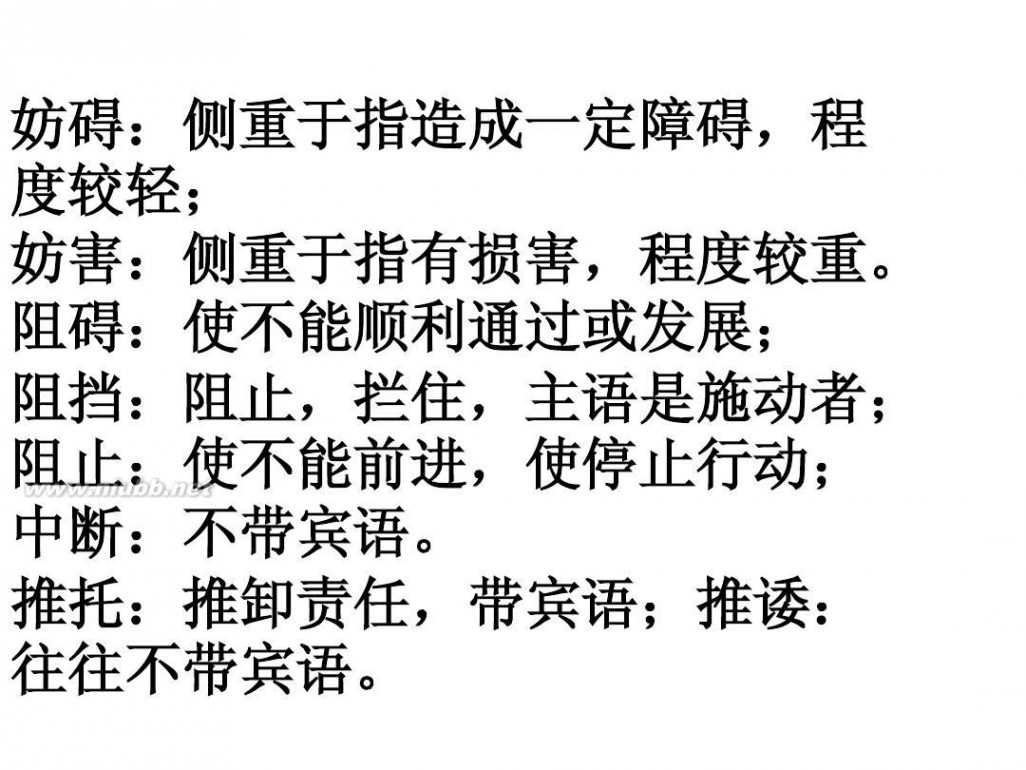
全部的近义词 最全的近义词辨析
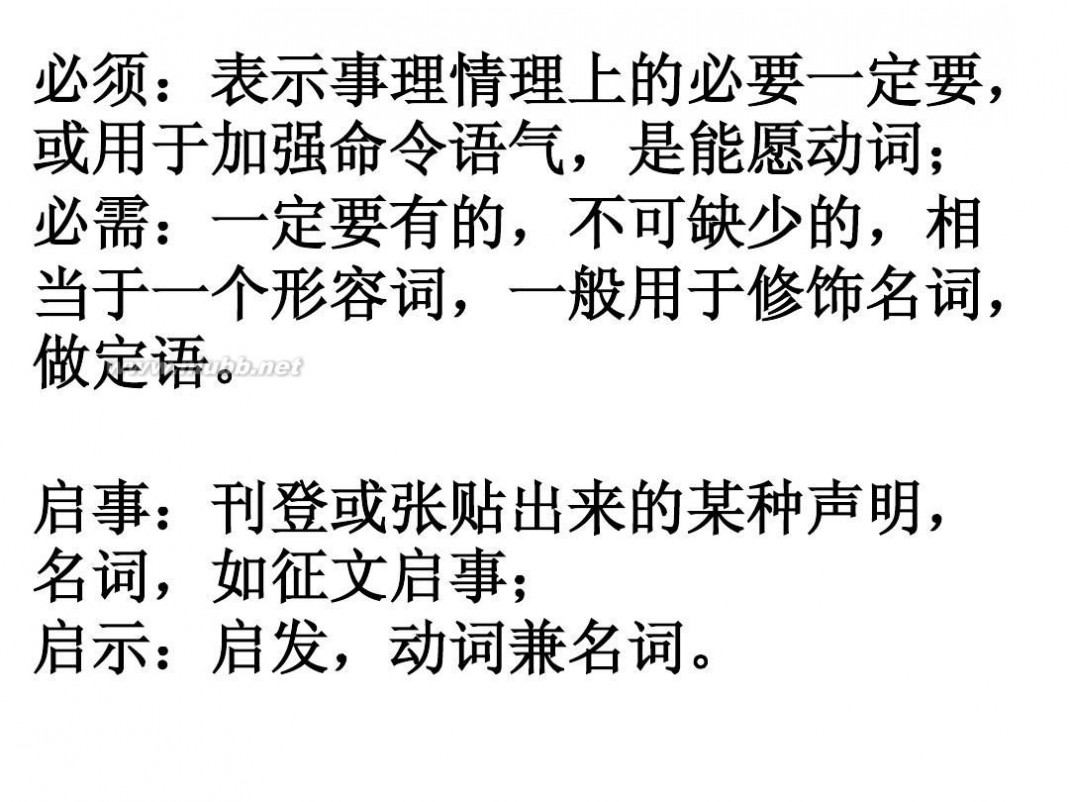
全部的近义词 最全的近义词辨析
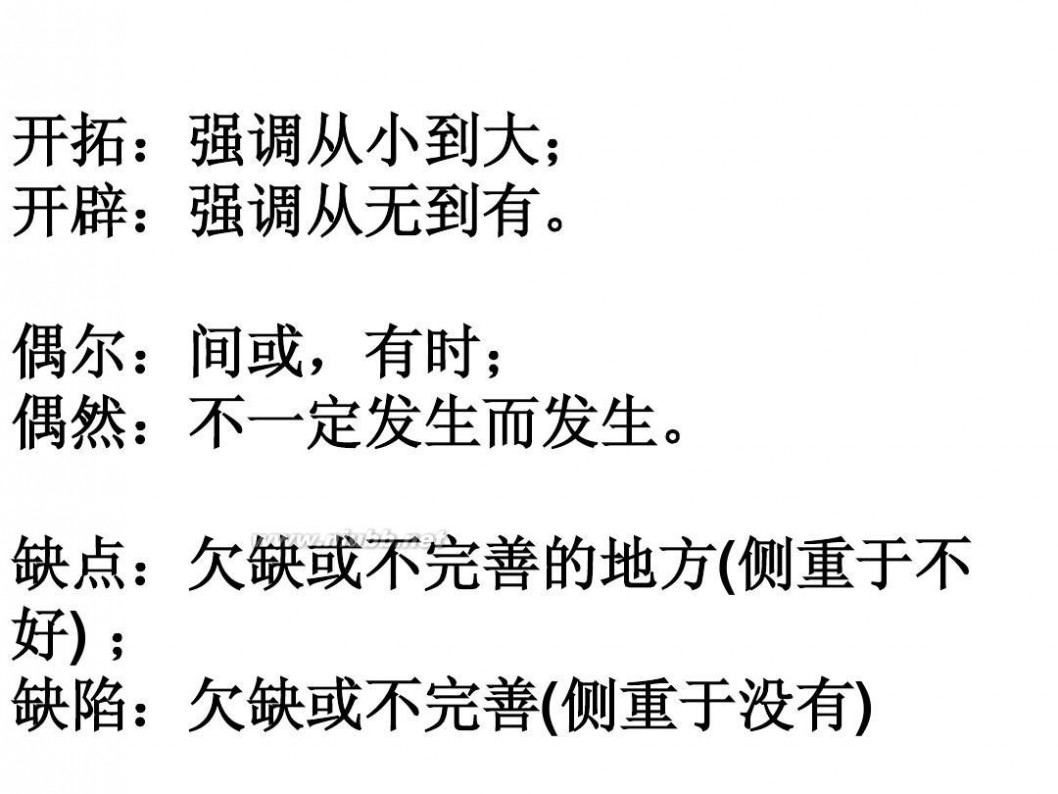
全部的近义词 最全的近义词辨析
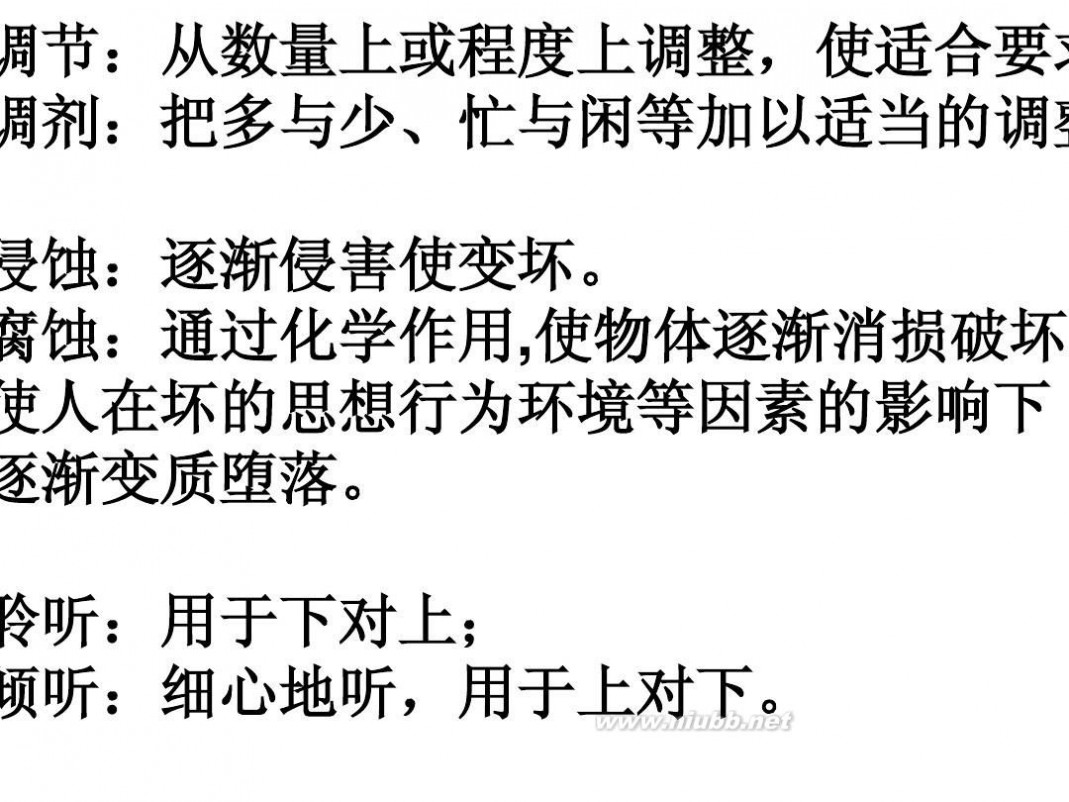
全部的近义词 最全的近义词辨析
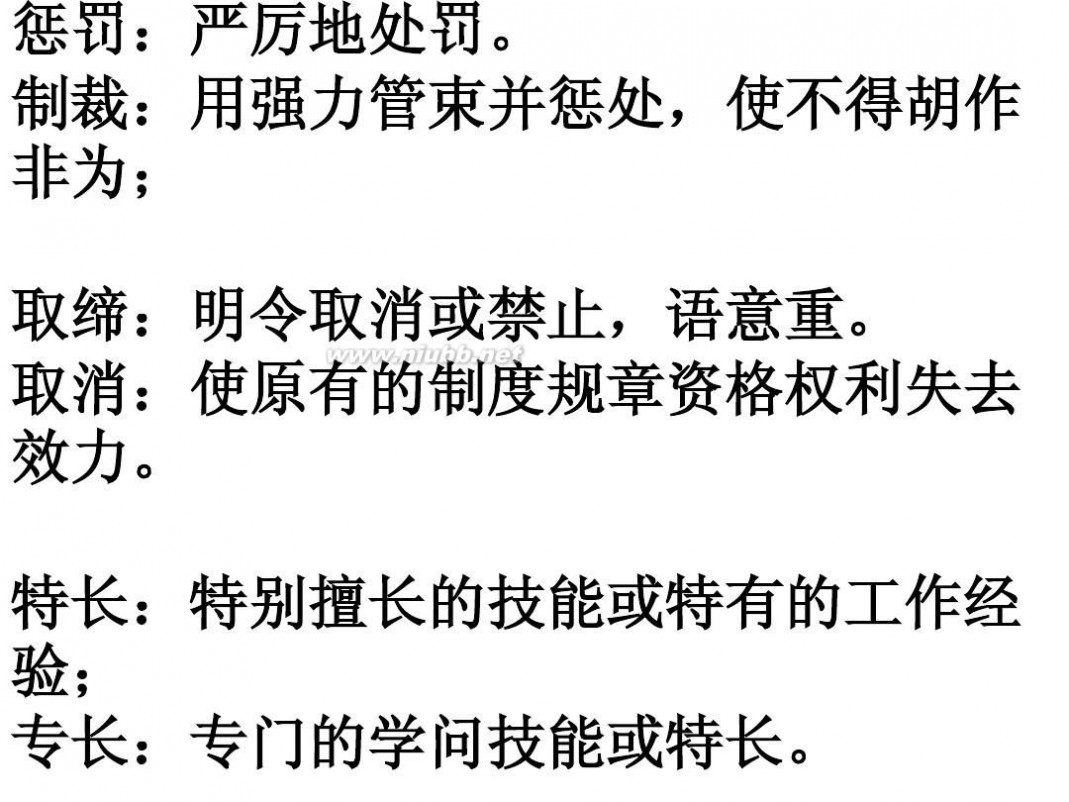
全部的近义词 最全的近义词辨析
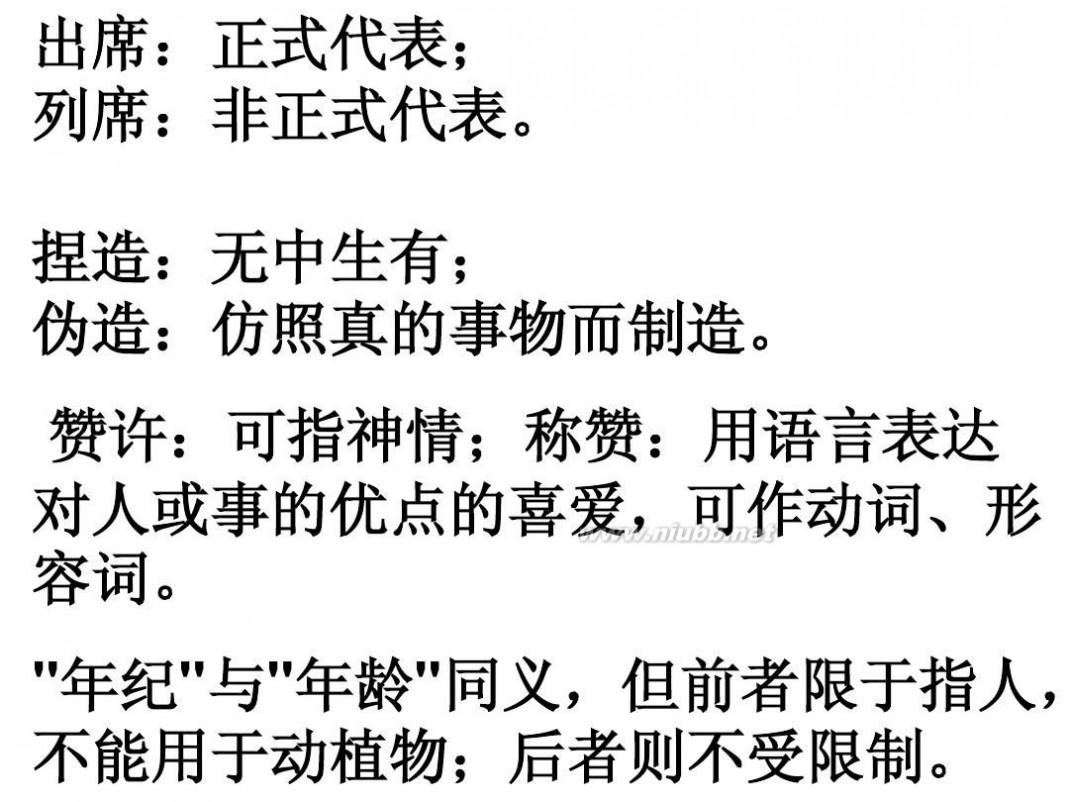
全部的近义词 最全的近义词辨析
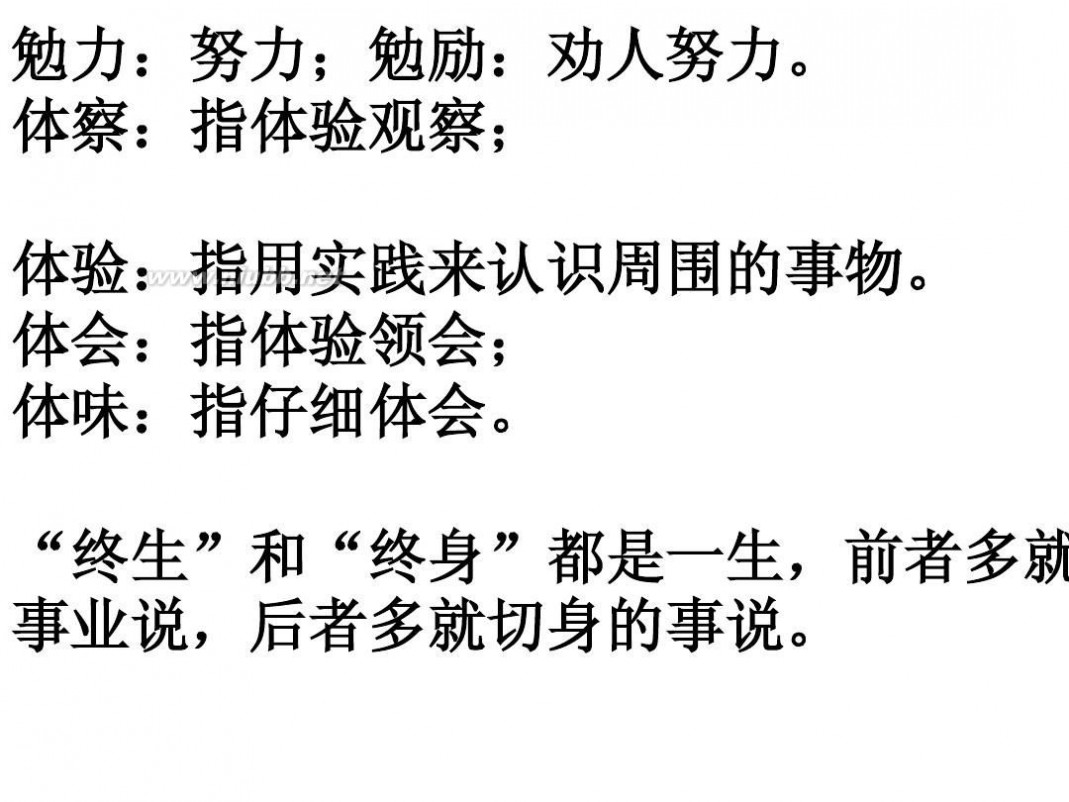
全部的近义词 最全的近义词辨析
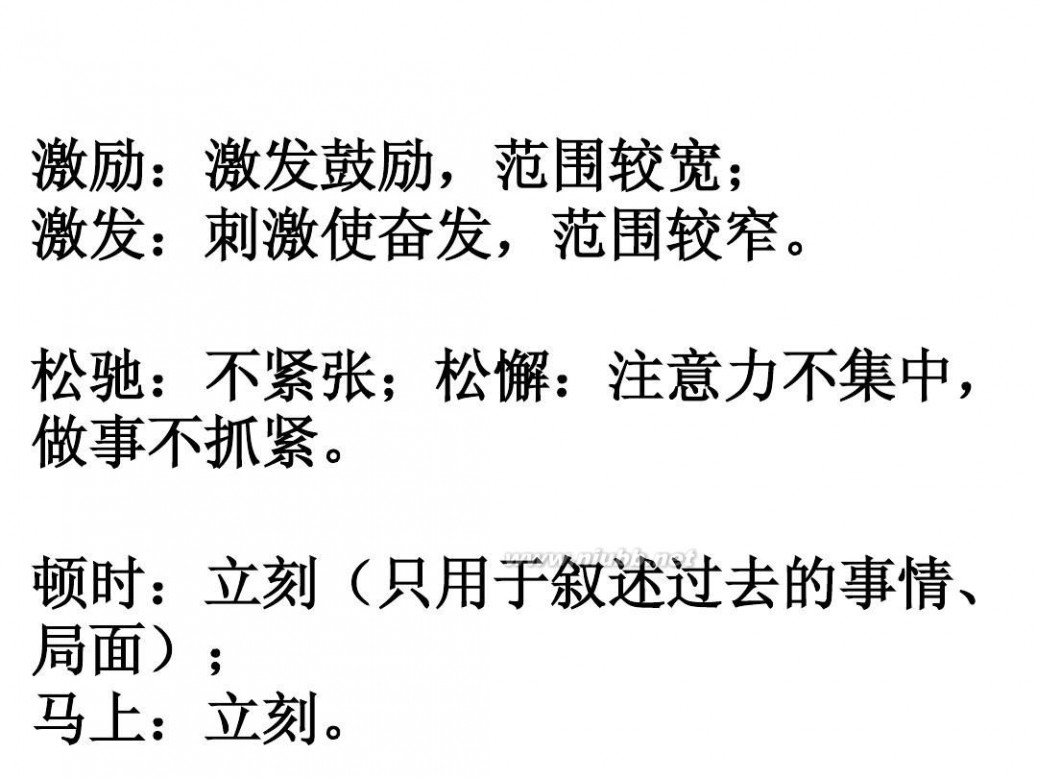
全部的近义词 最全的近义词辨析
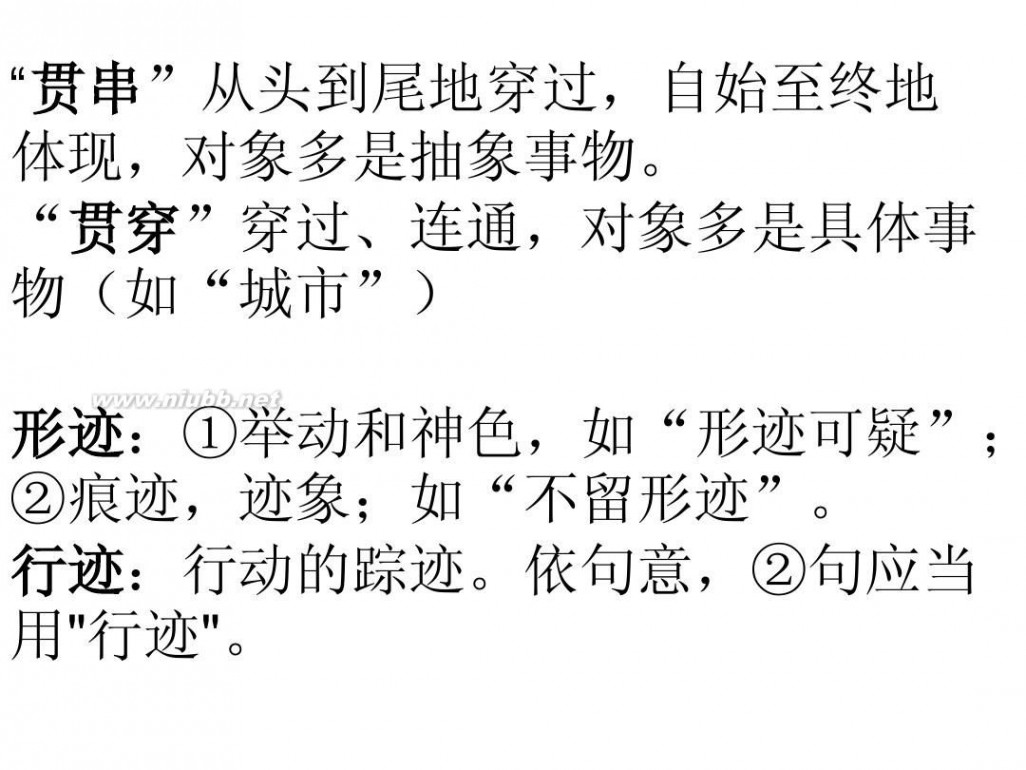
全部的近义词 最全的近义词辨析
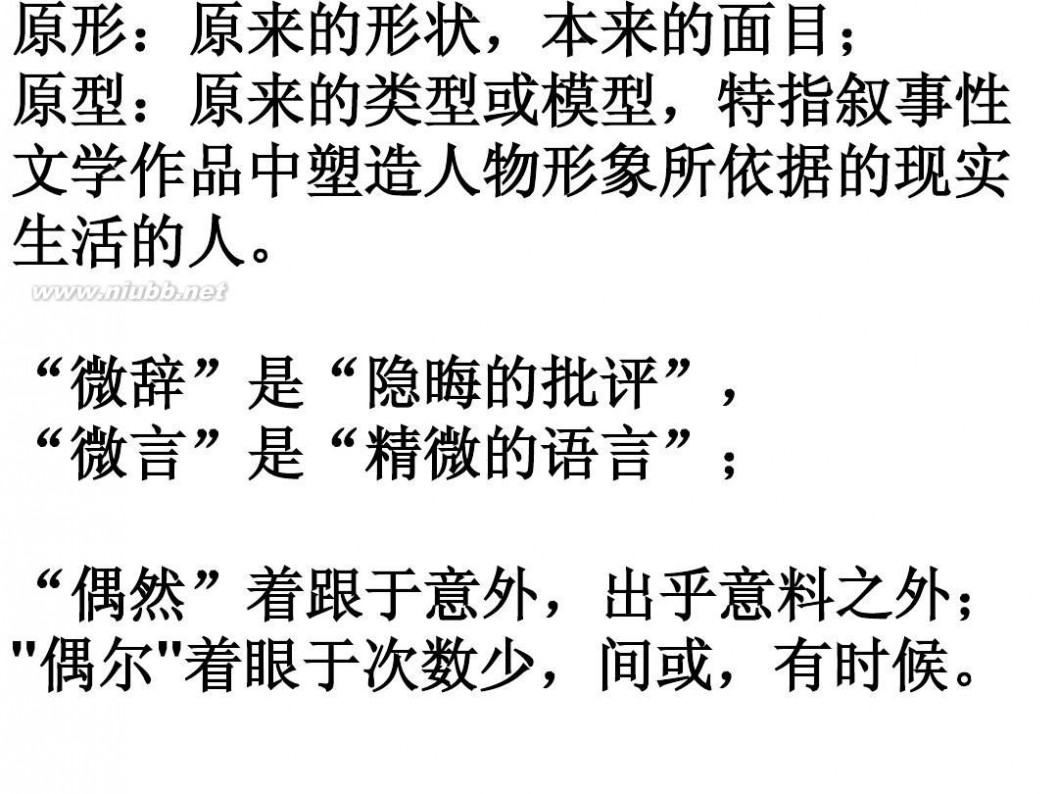
全部的近义词 最全的近义词辨析
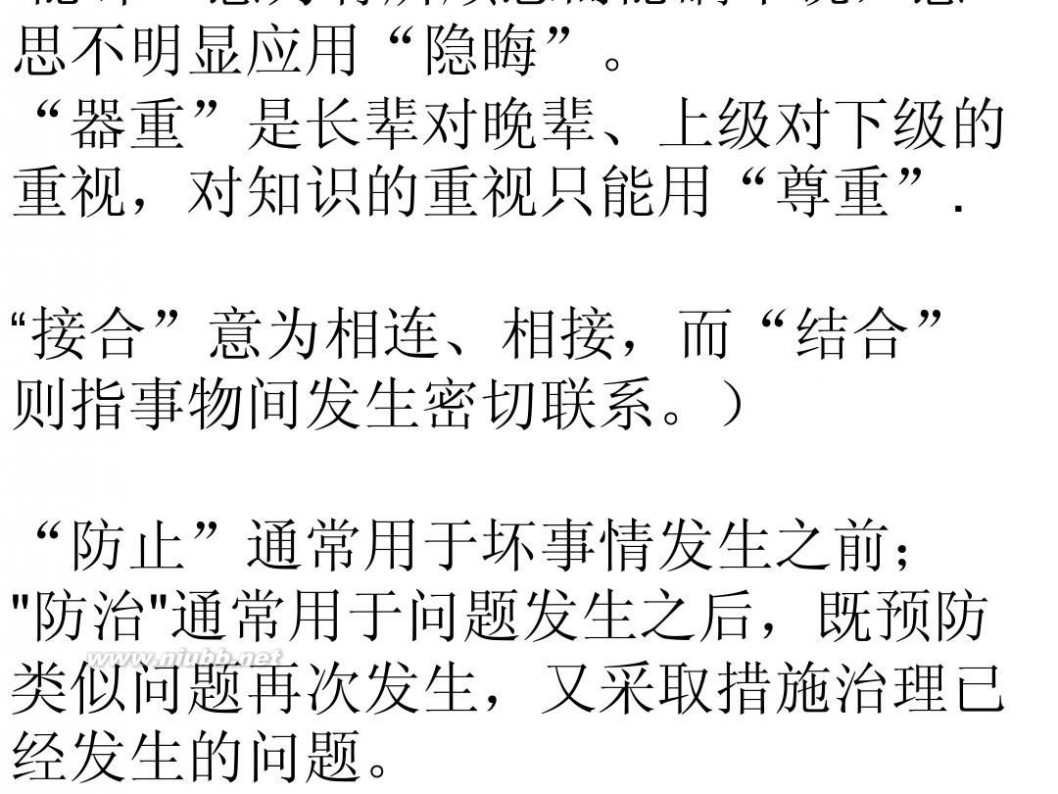
全部的近义词 最全的近义词辨析
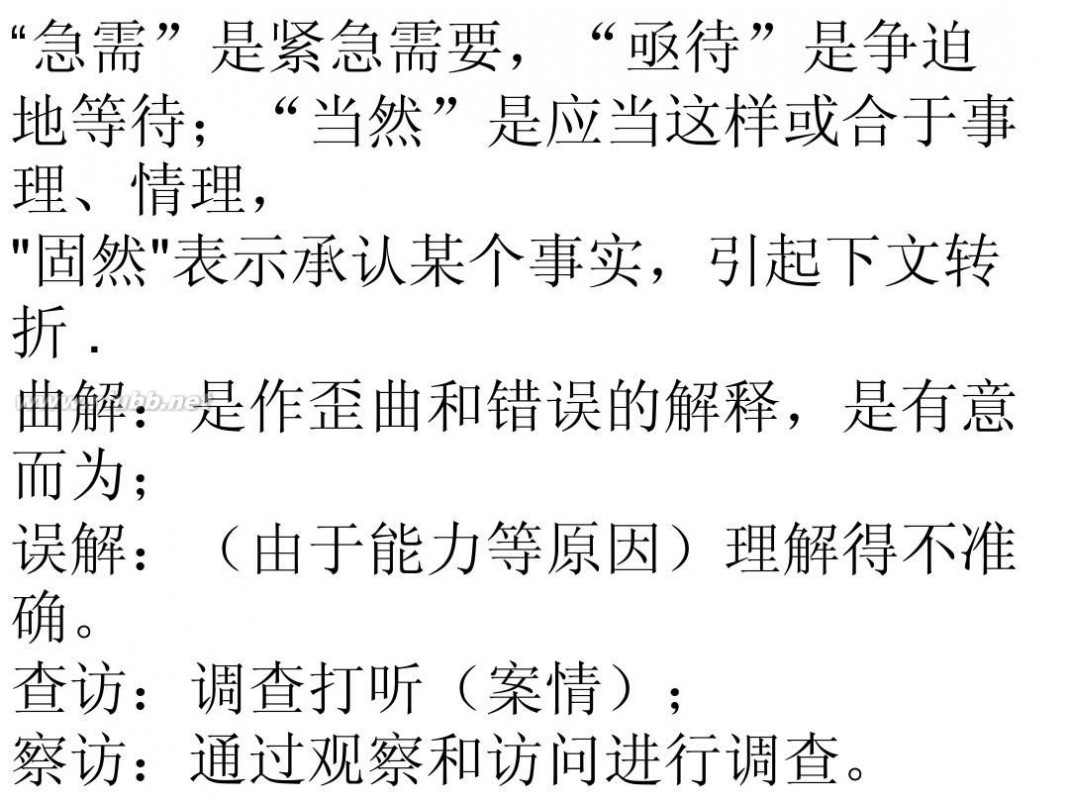
全部的近义词 最全的近义词辨析
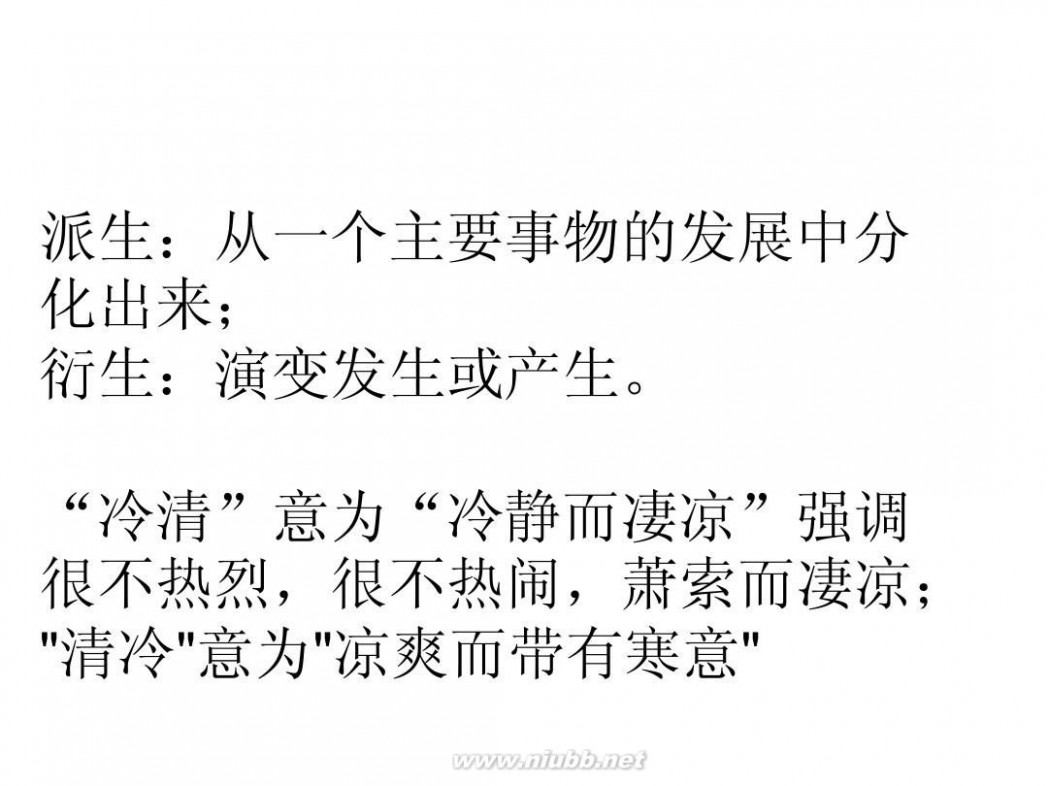
全部的近义词 最全的近义词辨析
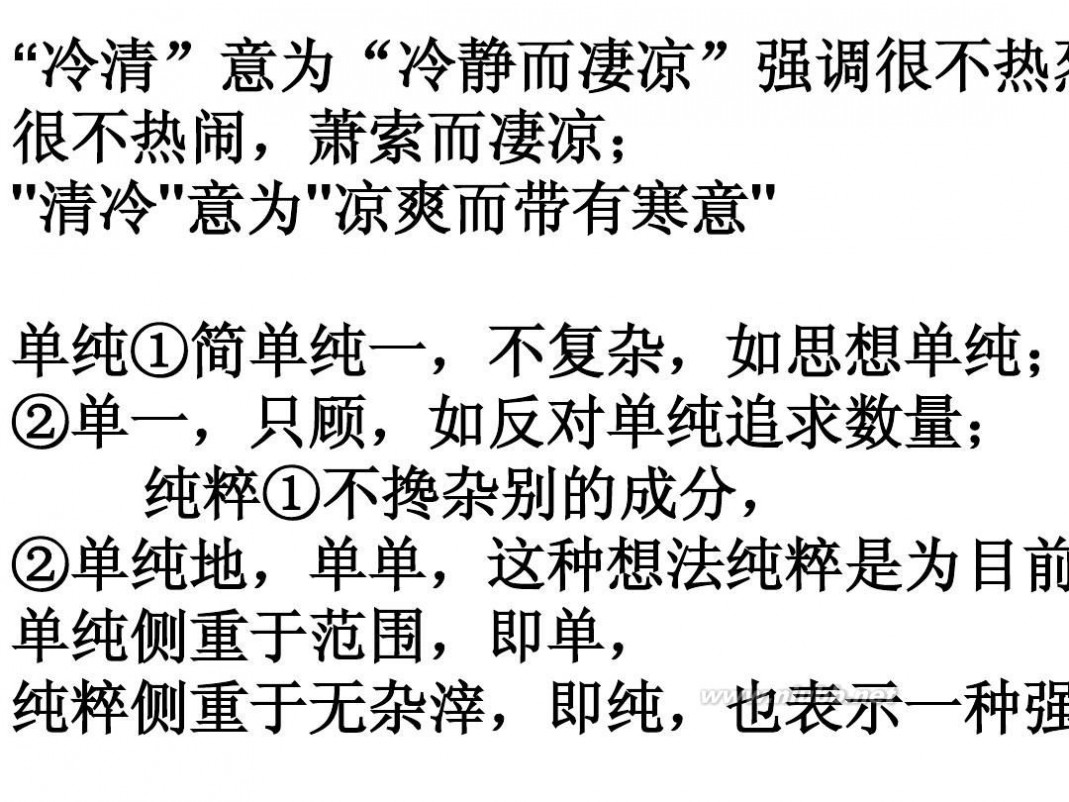
全部的近义词 最全的近义词辨析
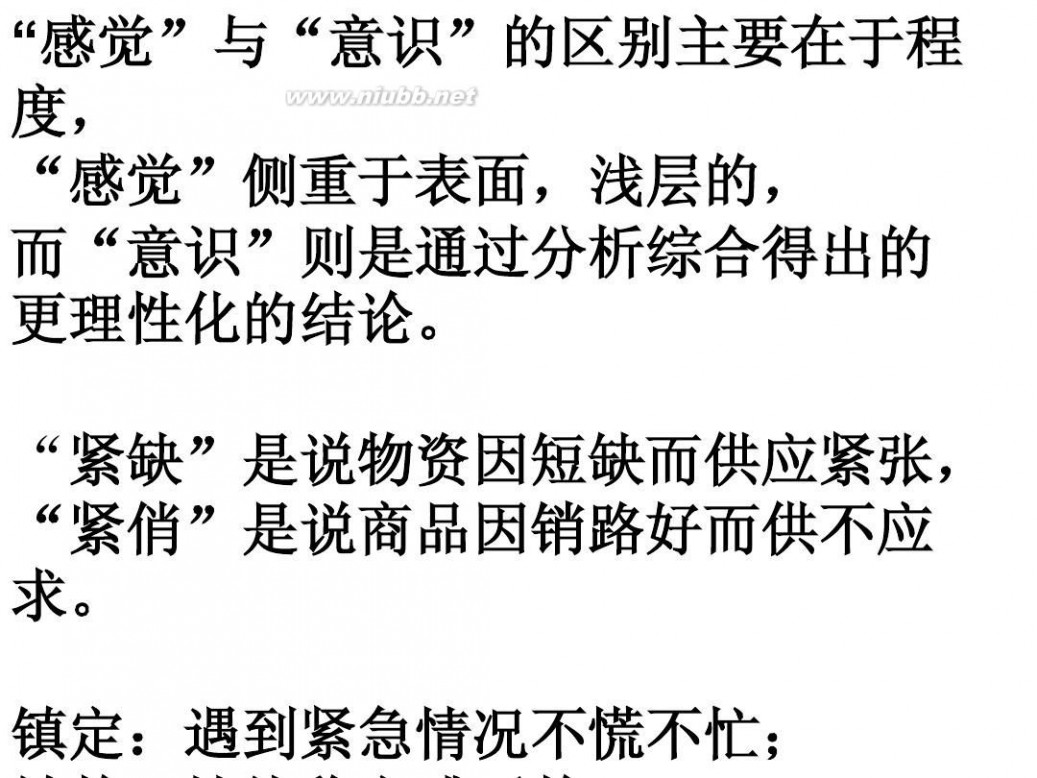
全部的近义词 最全的近义词辨析
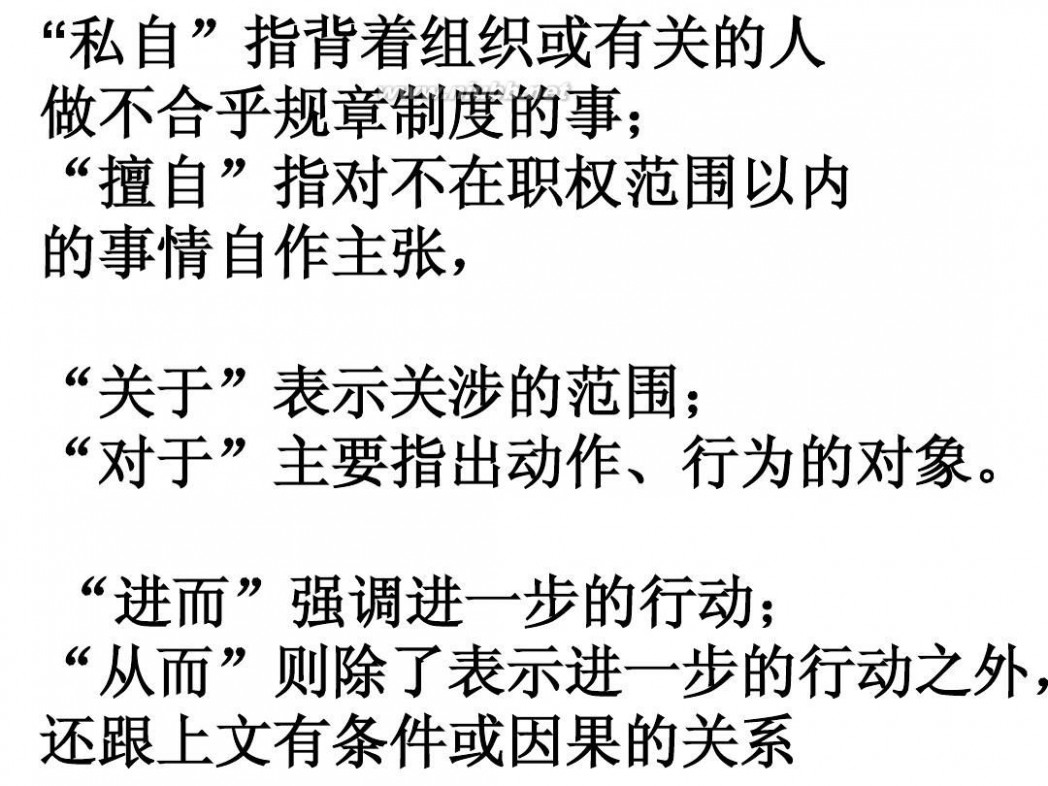
全部的近义词 最全的近义词辨析
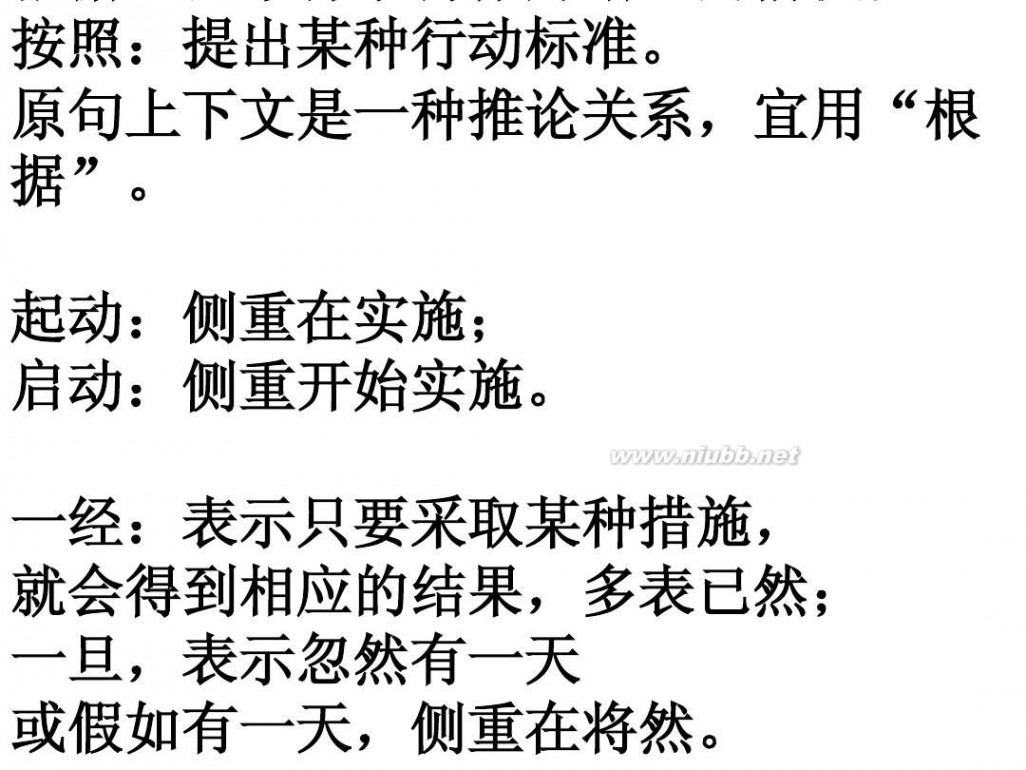
全部的近义词 最全的近义词辨析
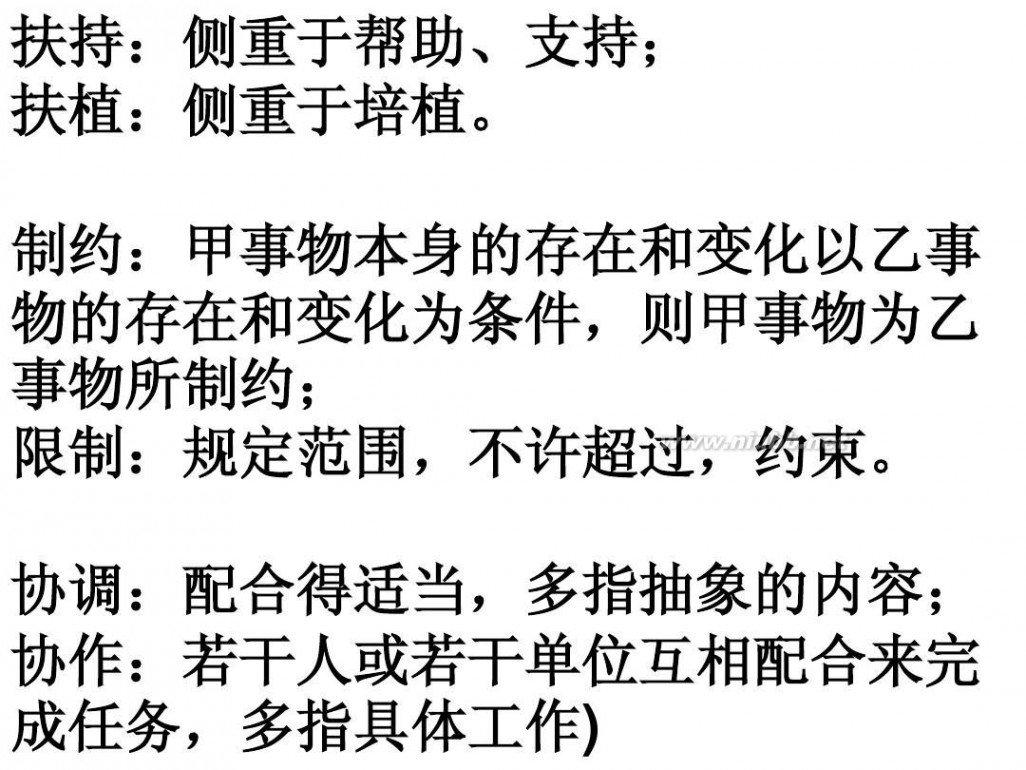
全部的近义词 最全的近义词辨析
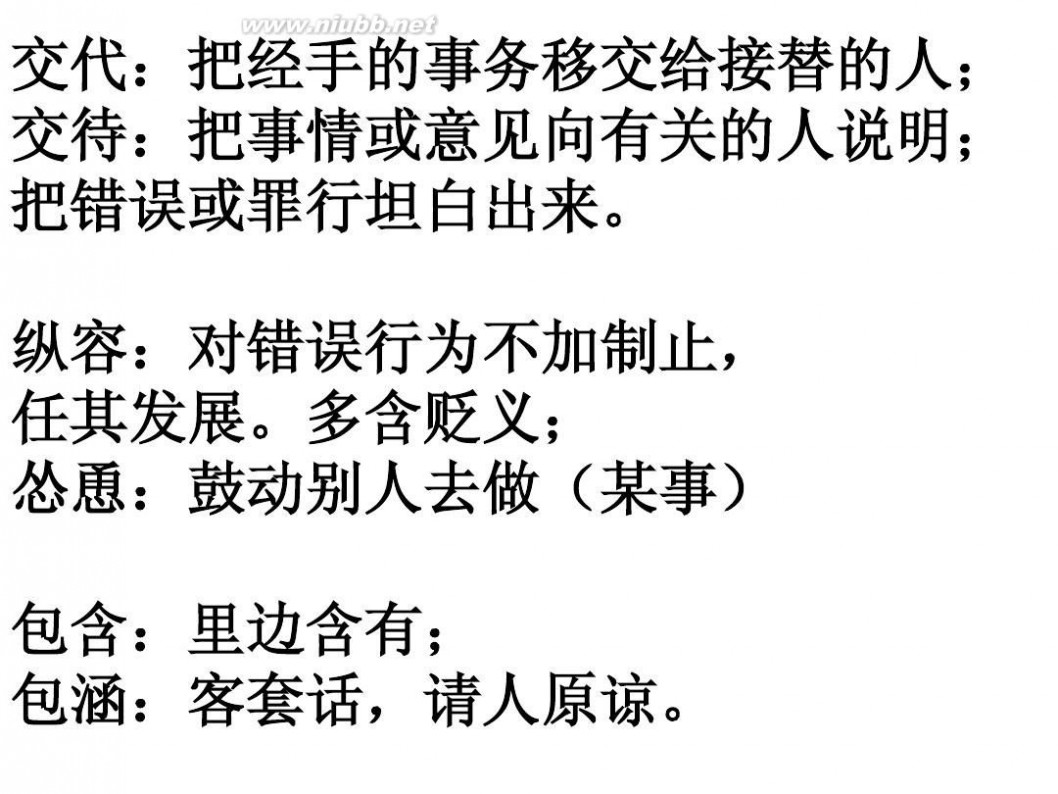
全部的近义词 最全的近义词辨析
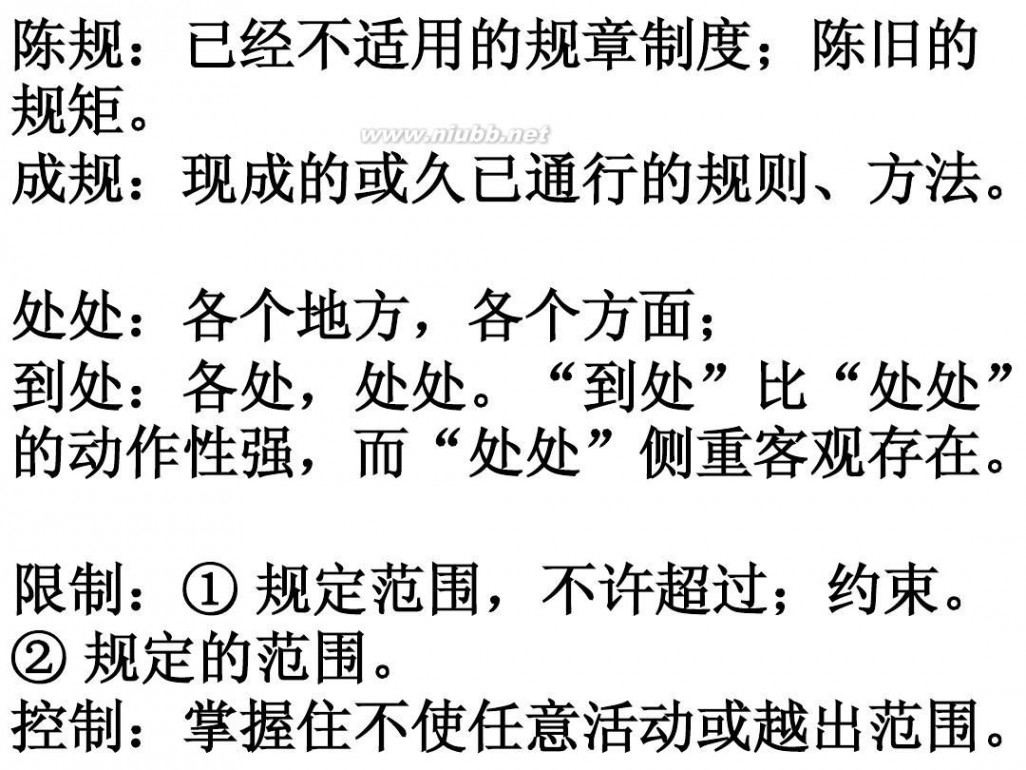
全部的近义词 最全的近义词辨析

全部的近义词 最全的近义词辨析
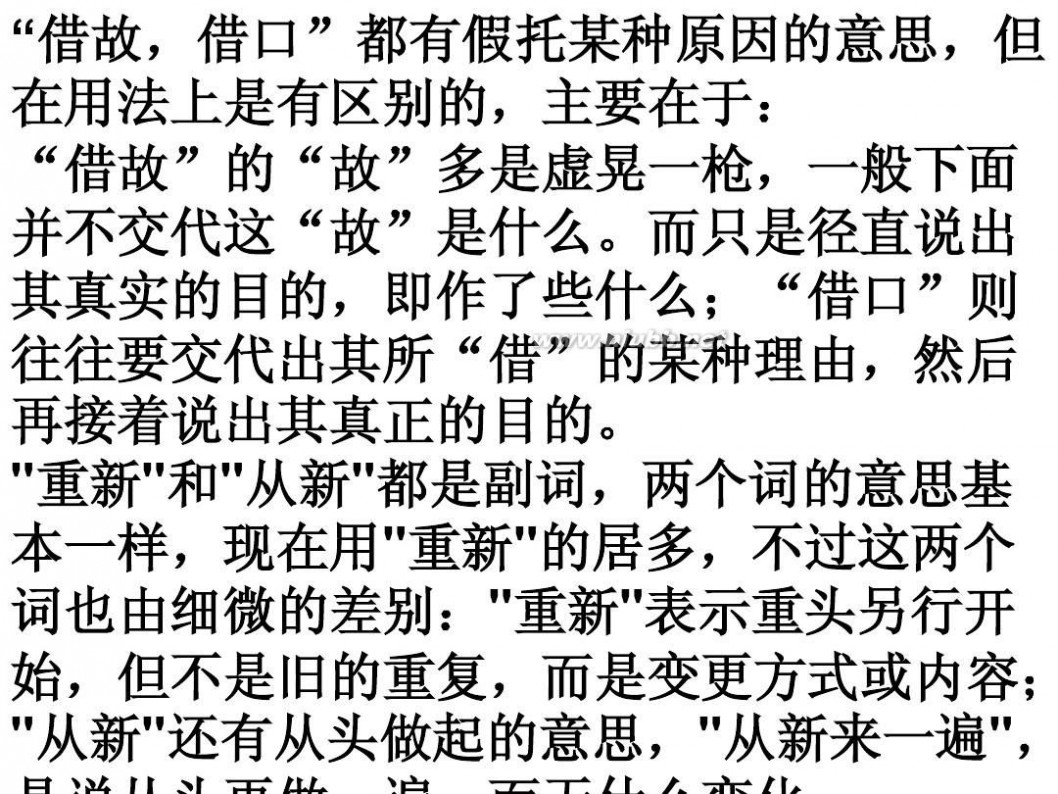
全部的近义词 最全的近义词辨析
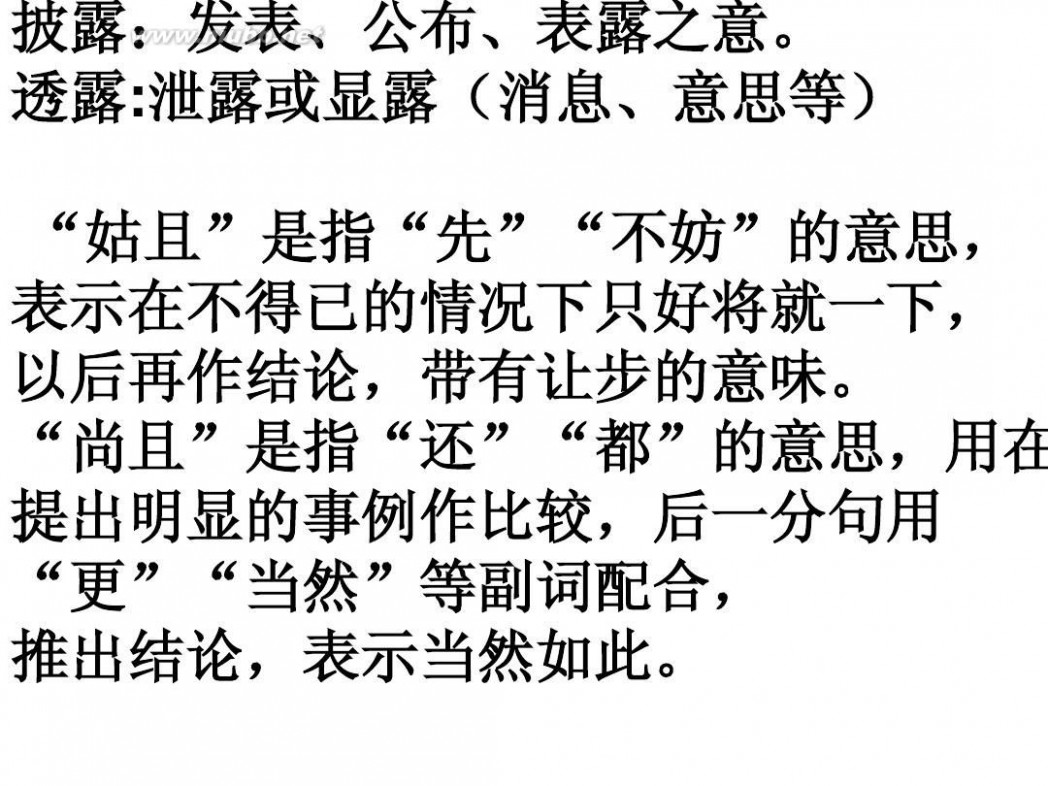
全部的近义词 最全的近义词辨析
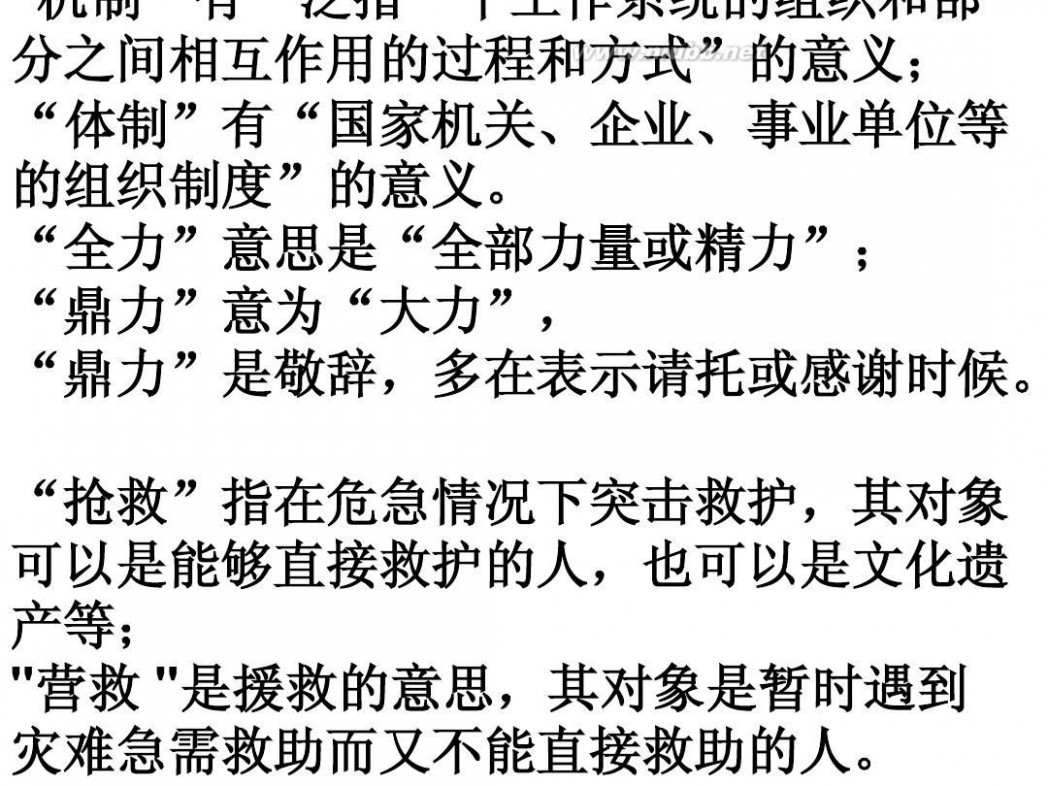
全部的近义词 最全的近义词辨析
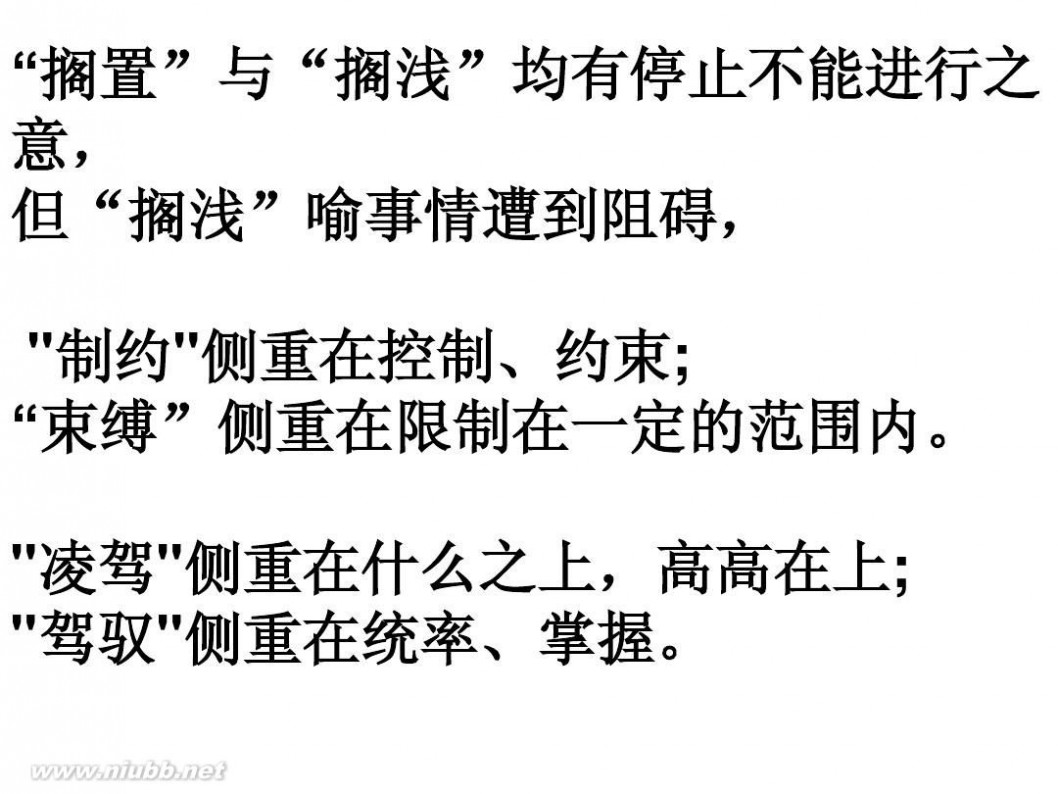
全部的近义词 最全的近义词辨析
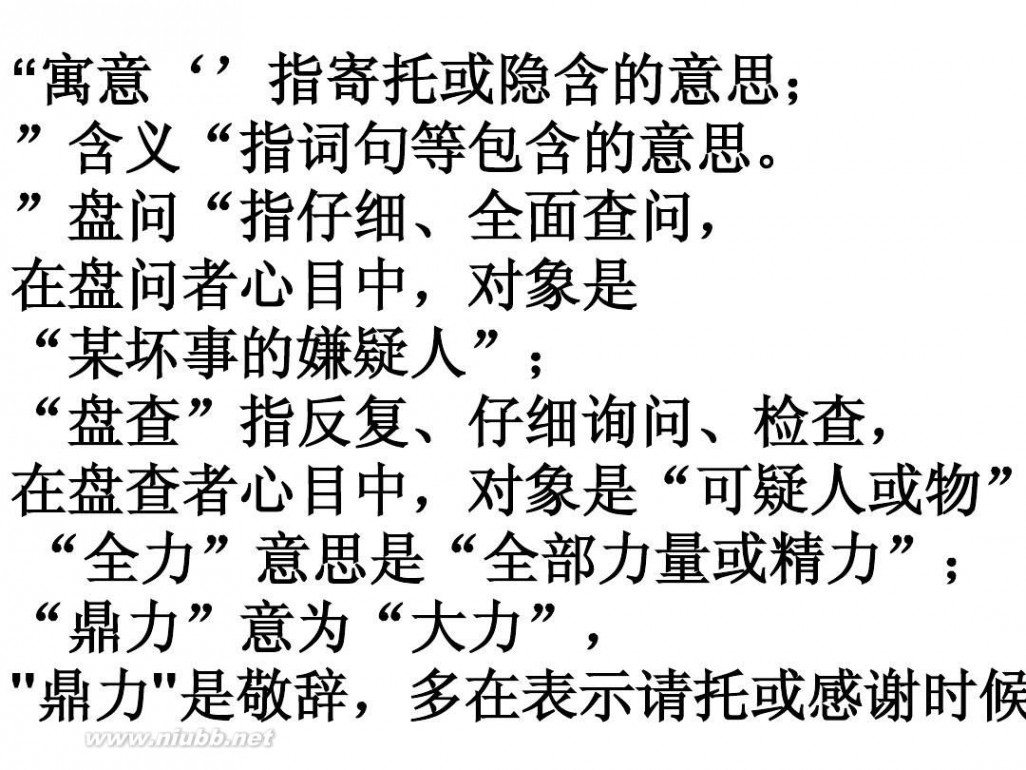
全部的近义词 最全的近义词辨析

全部的近义词 最全的近义词辨析

全部的近义词 最全的近义词辨析
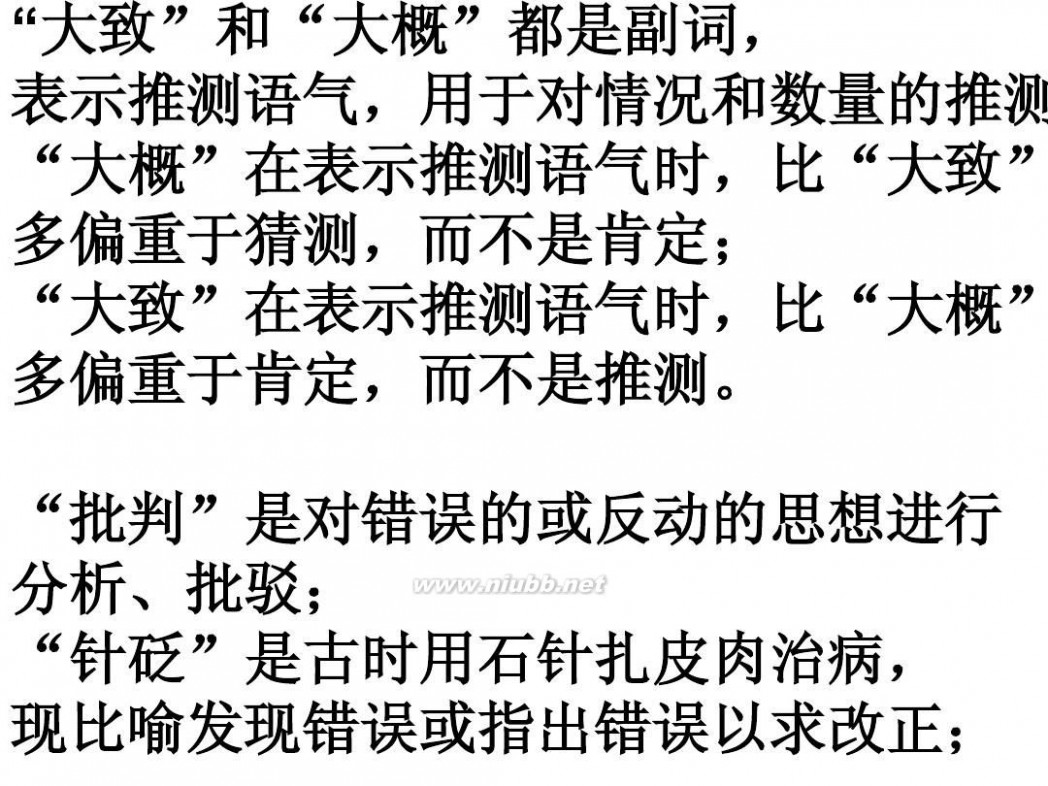
全部的近义词 最全的近义词辨析
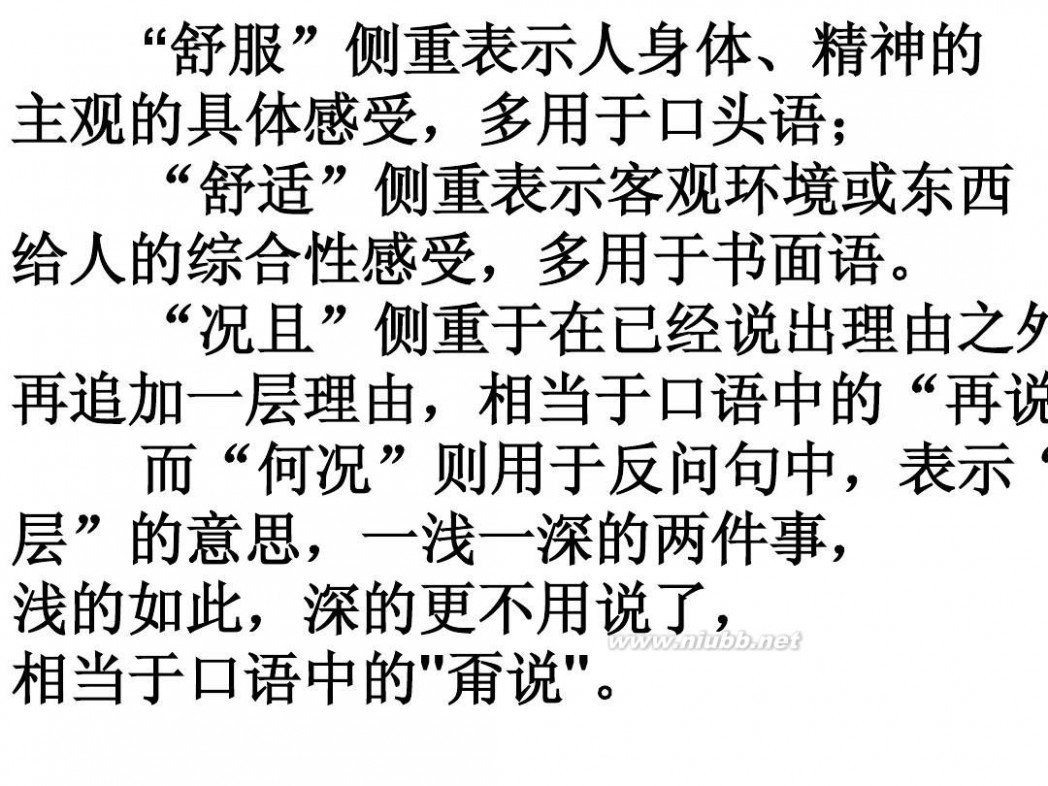
全部的近义词 最全的近义词辨析
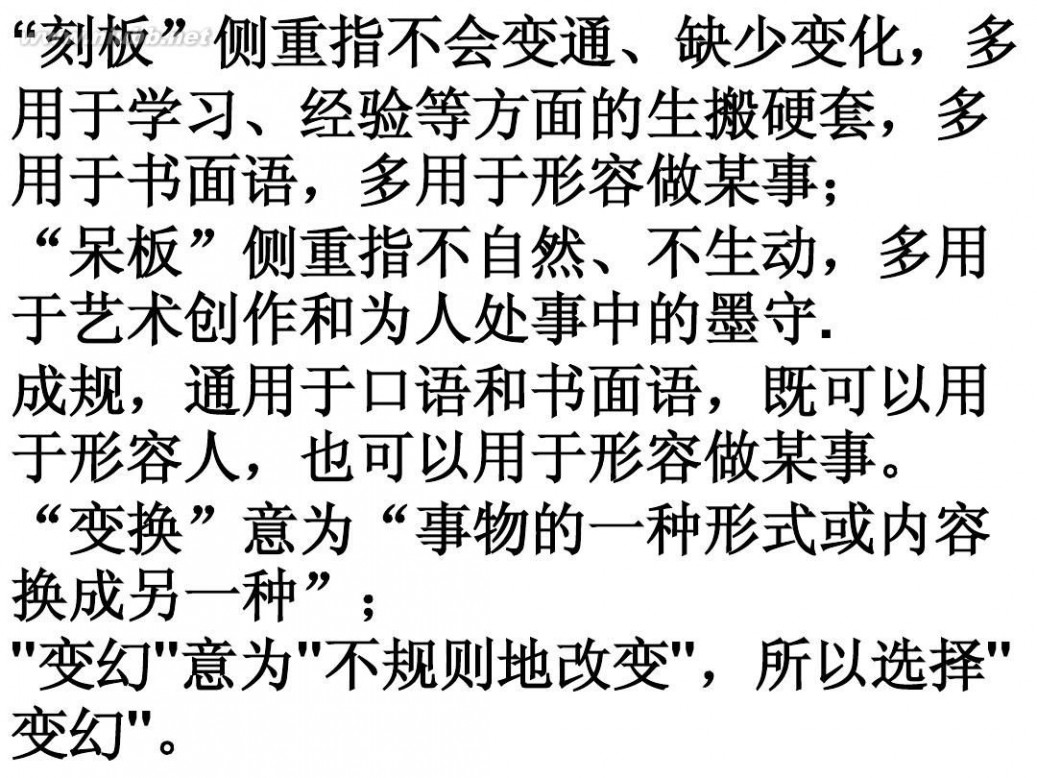
全部的近义词 最全的近义词辨析
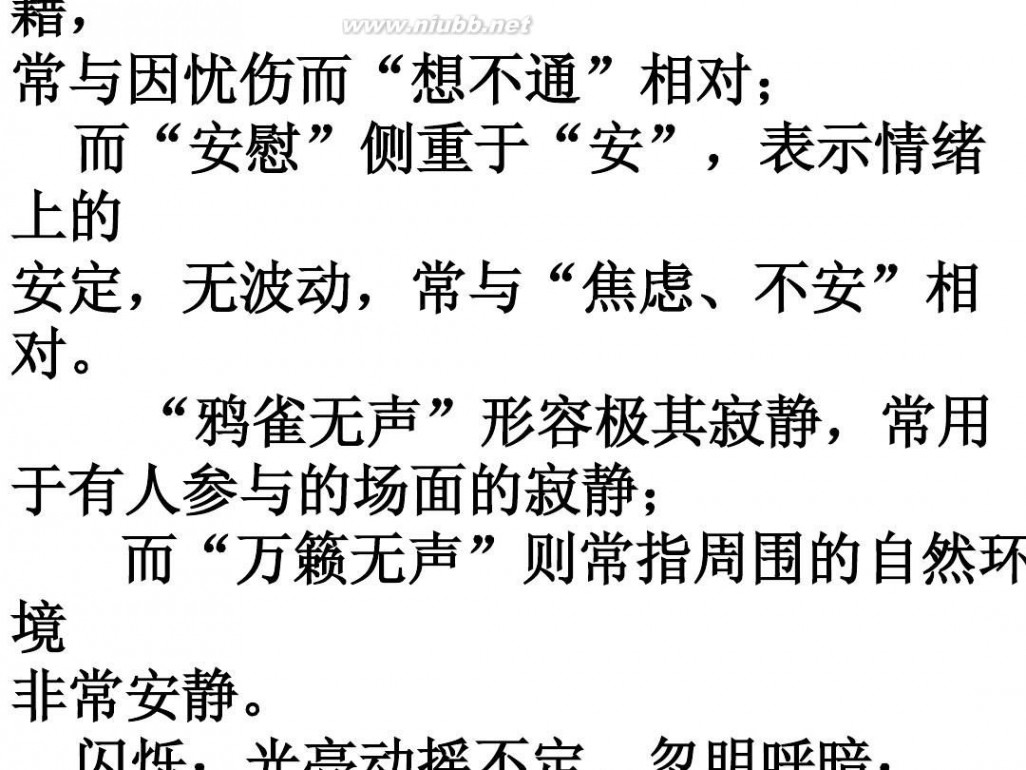
全部的近义词 最全的近义词辨析
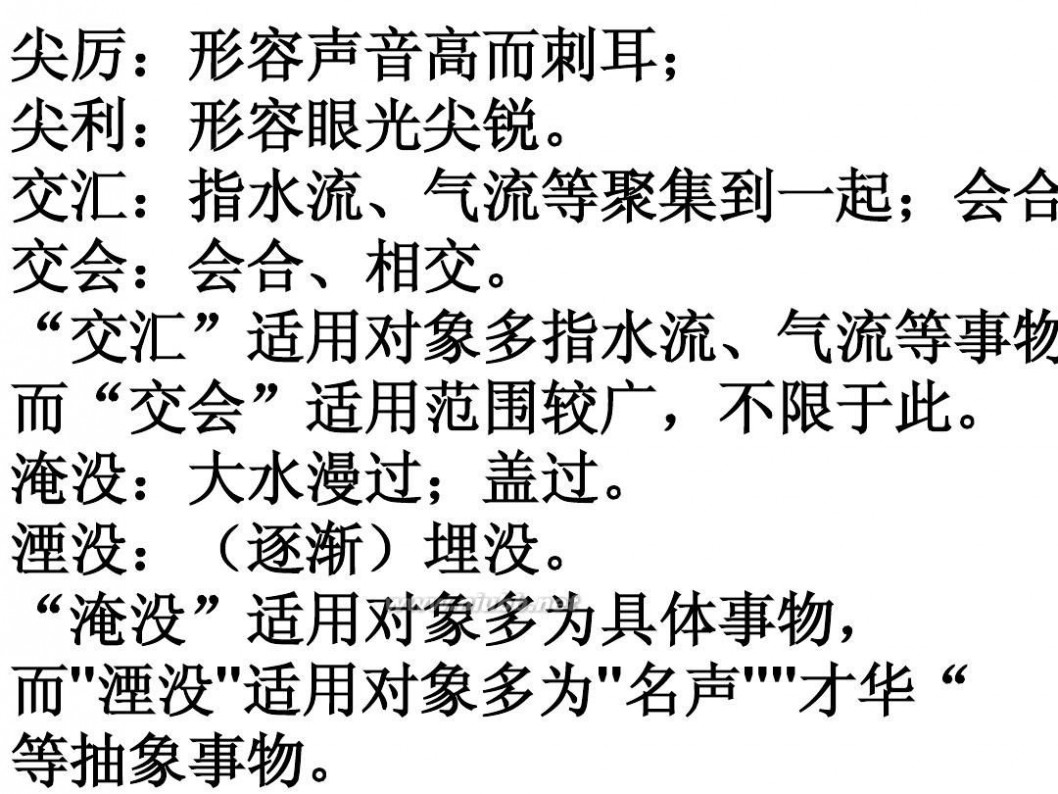
全部的近义词 最全的近义词辨析
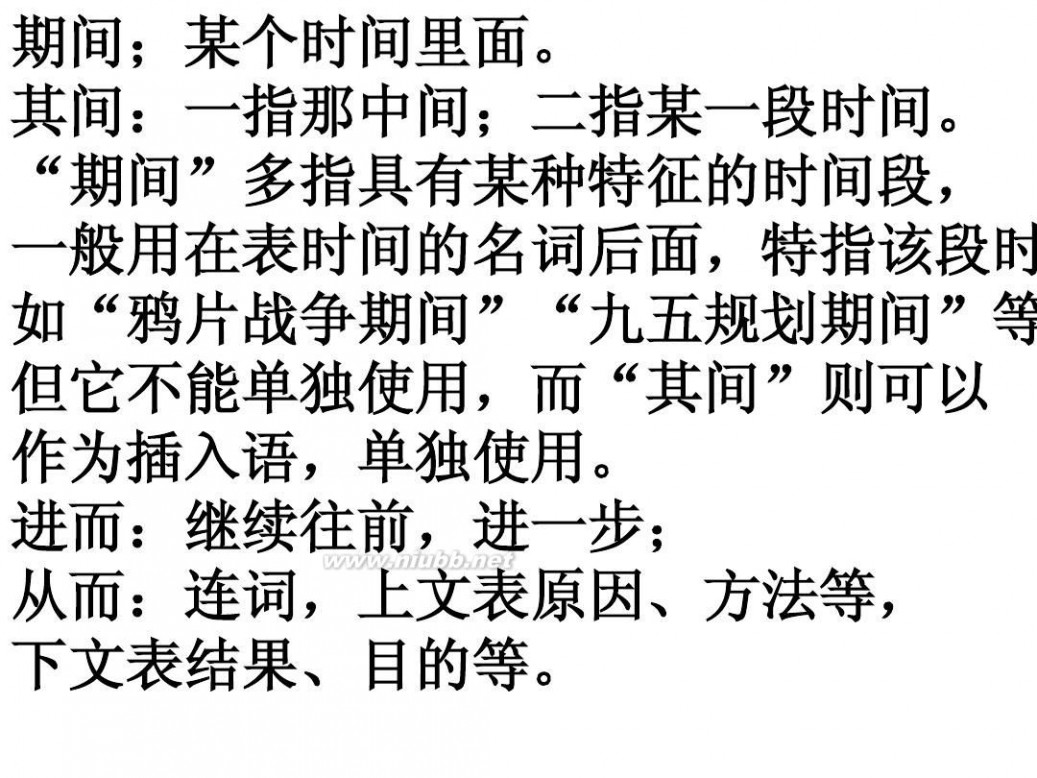
全部的近义词 最全的近义词辨析
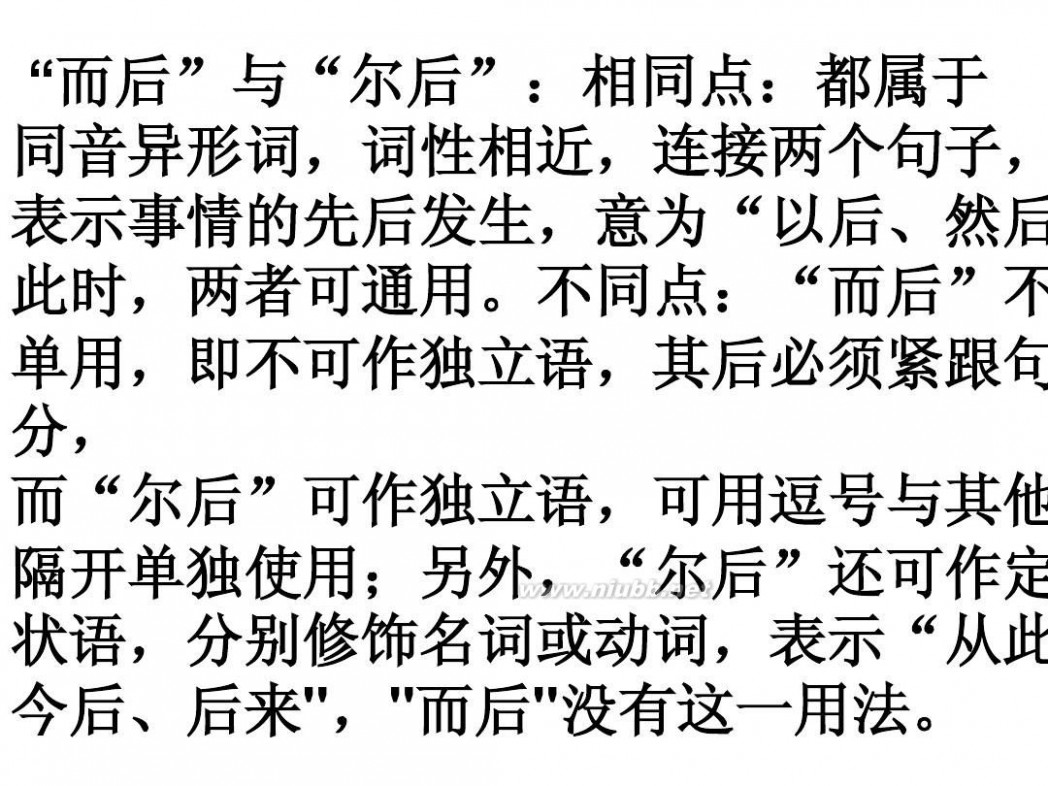
全部的近义词 最全的近义词辨析
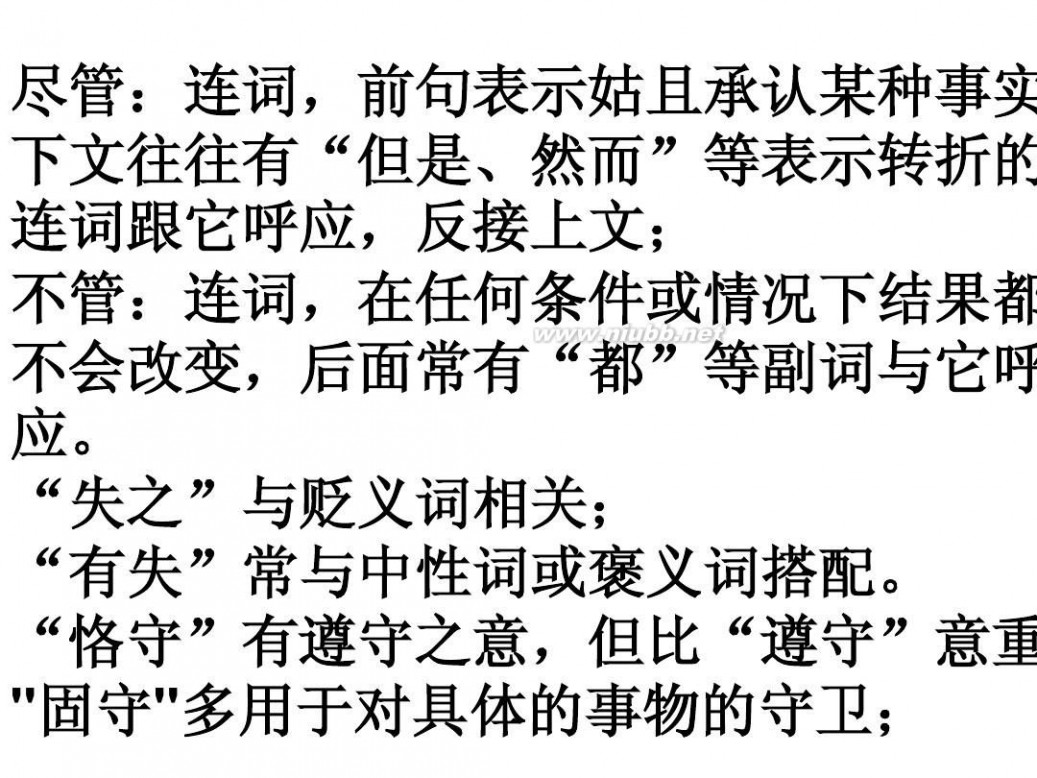
全部的近义词 最全的近义词辨析
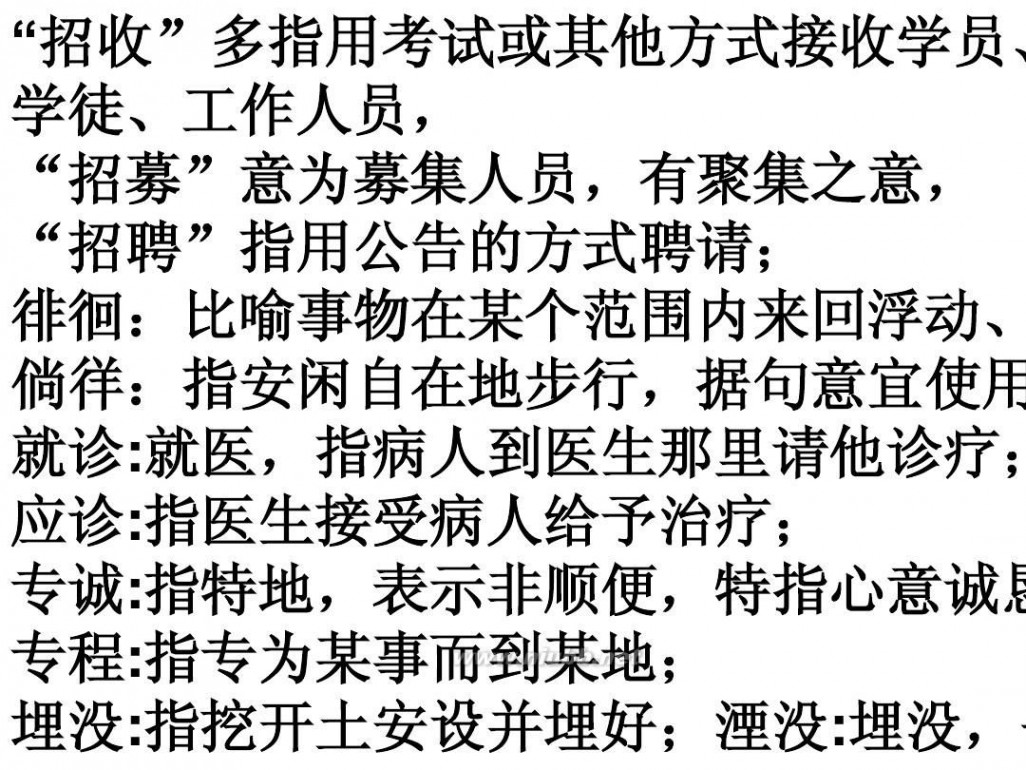
全部的近义词 最全的近义词辨析
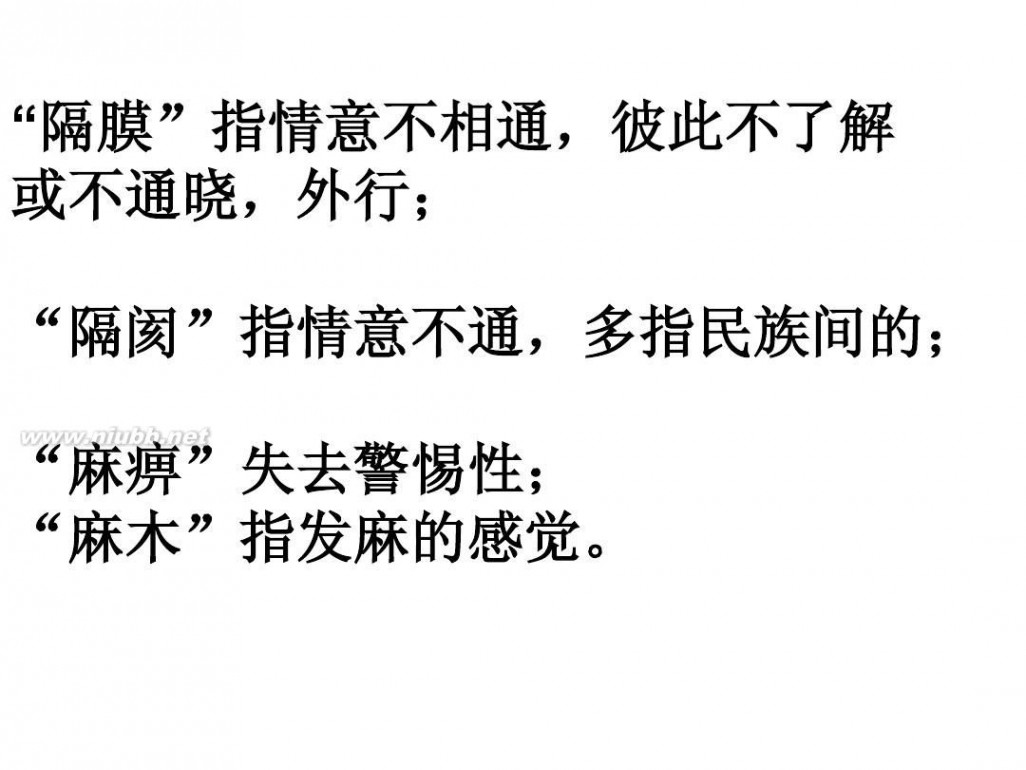
全部的近义词 最全的近义词辨析

全部的近义词 最全的近义词辨析
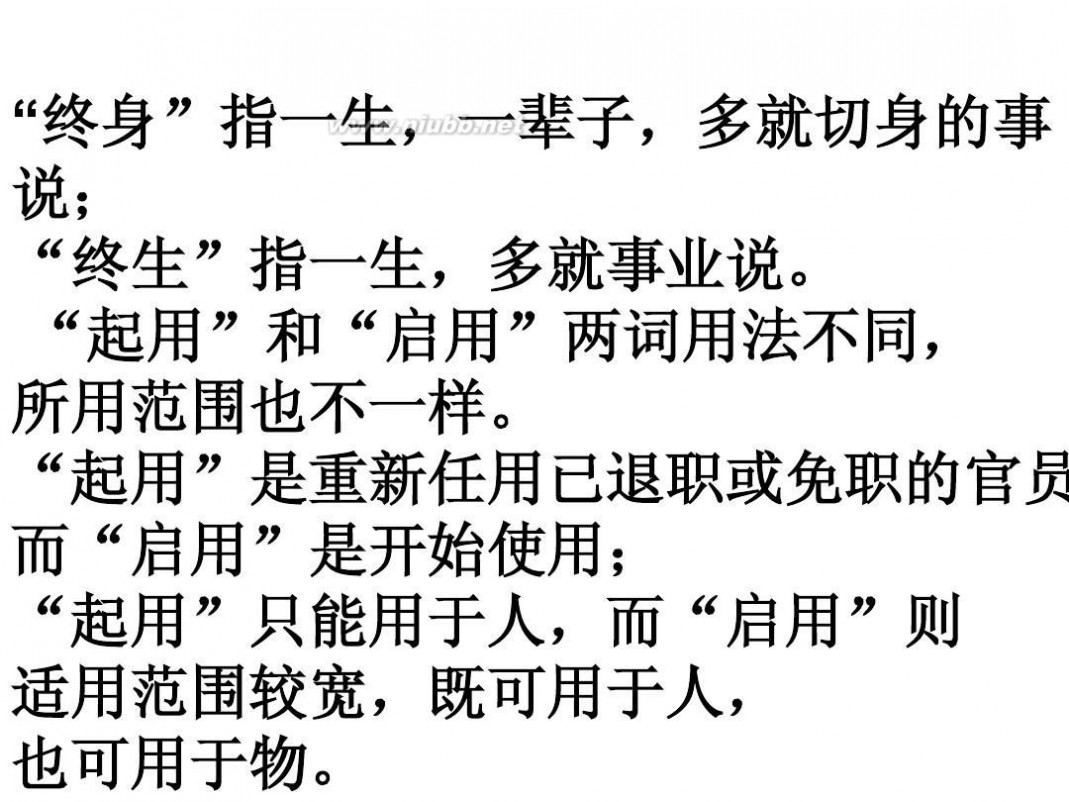
全部的近义词 最全的近义词辨析
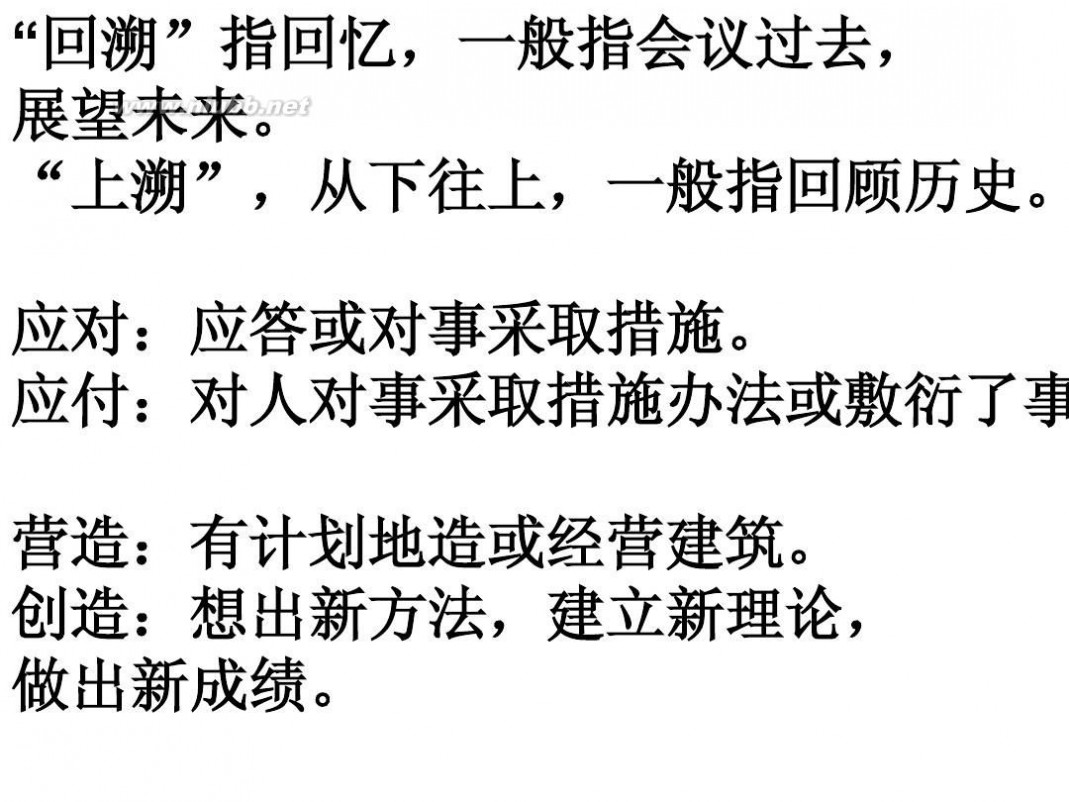
全部的近义词 最全的近义词辨析
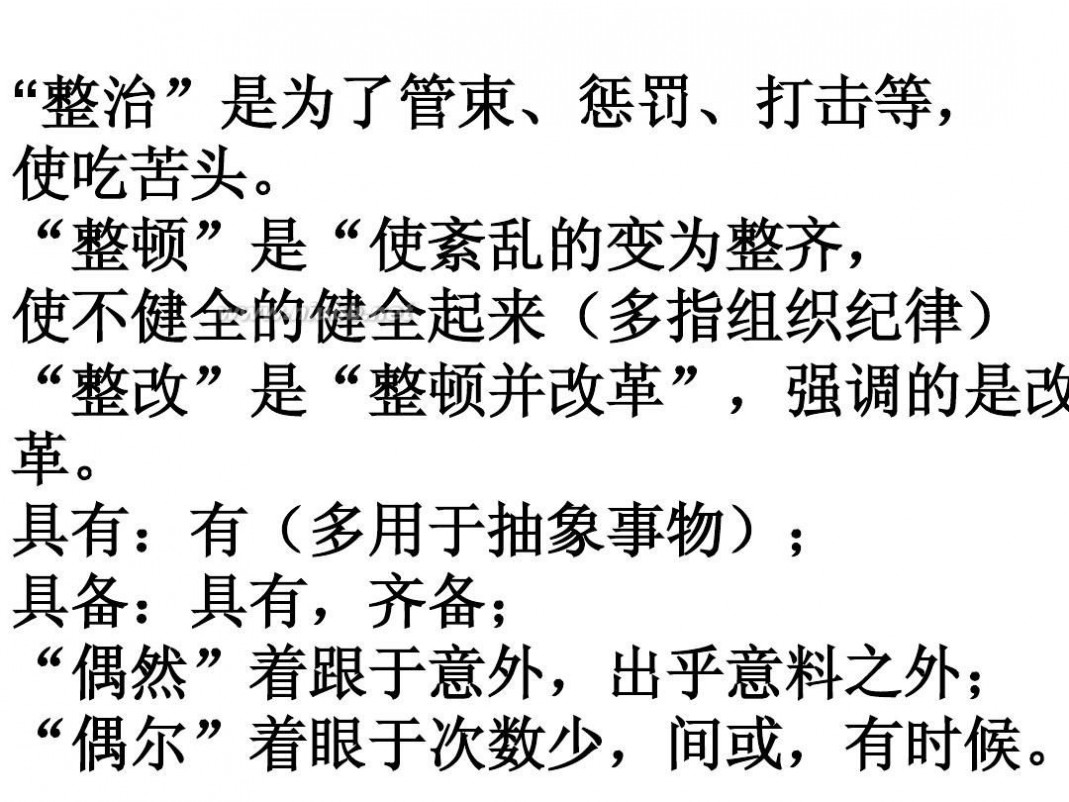
全部的近义词 最全的近义词辨析
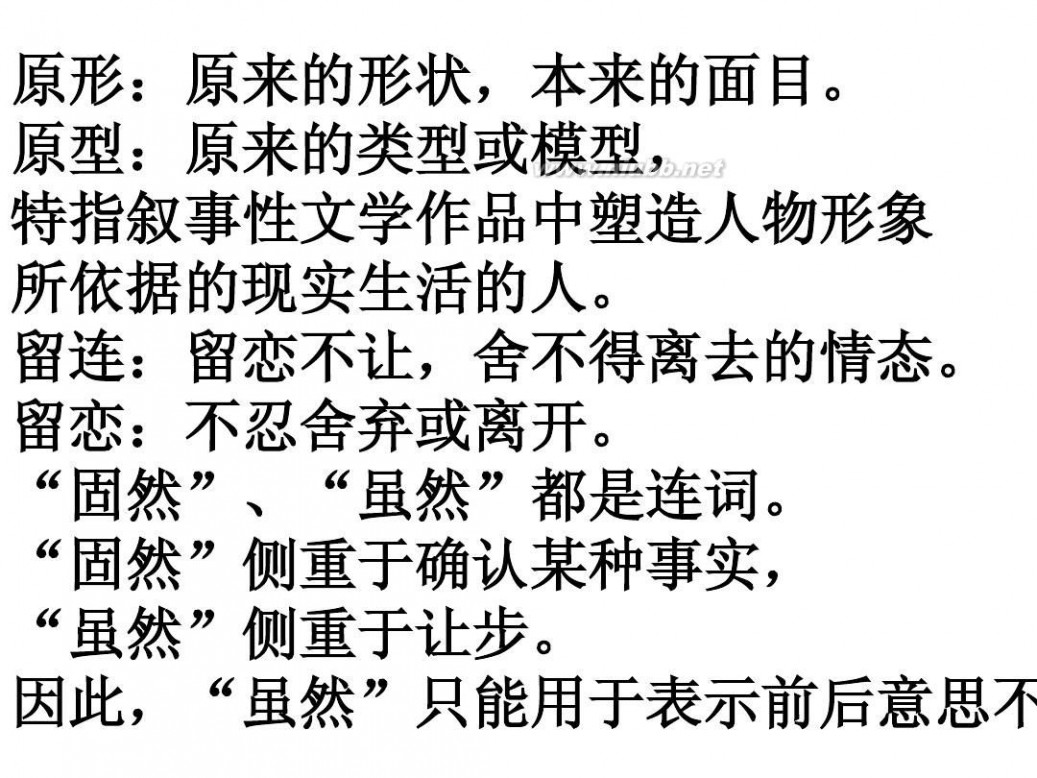
全部的近义词 最全的近义词辨析
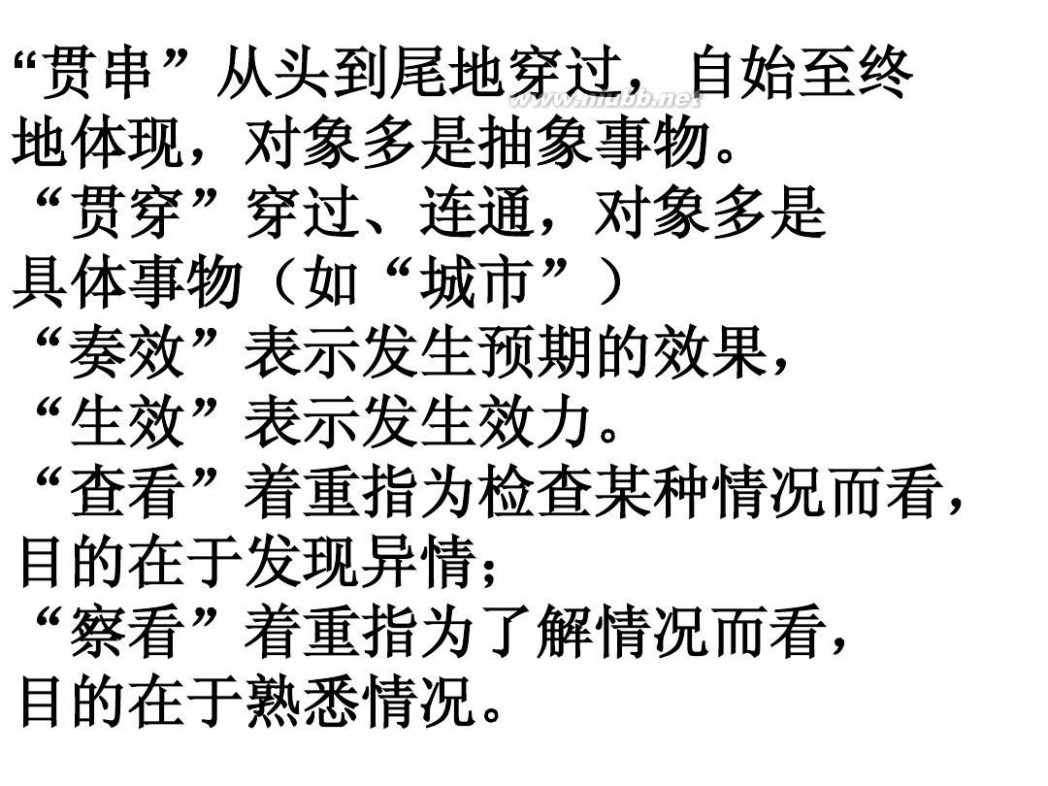
全部的近义词 最全的近义词辨析
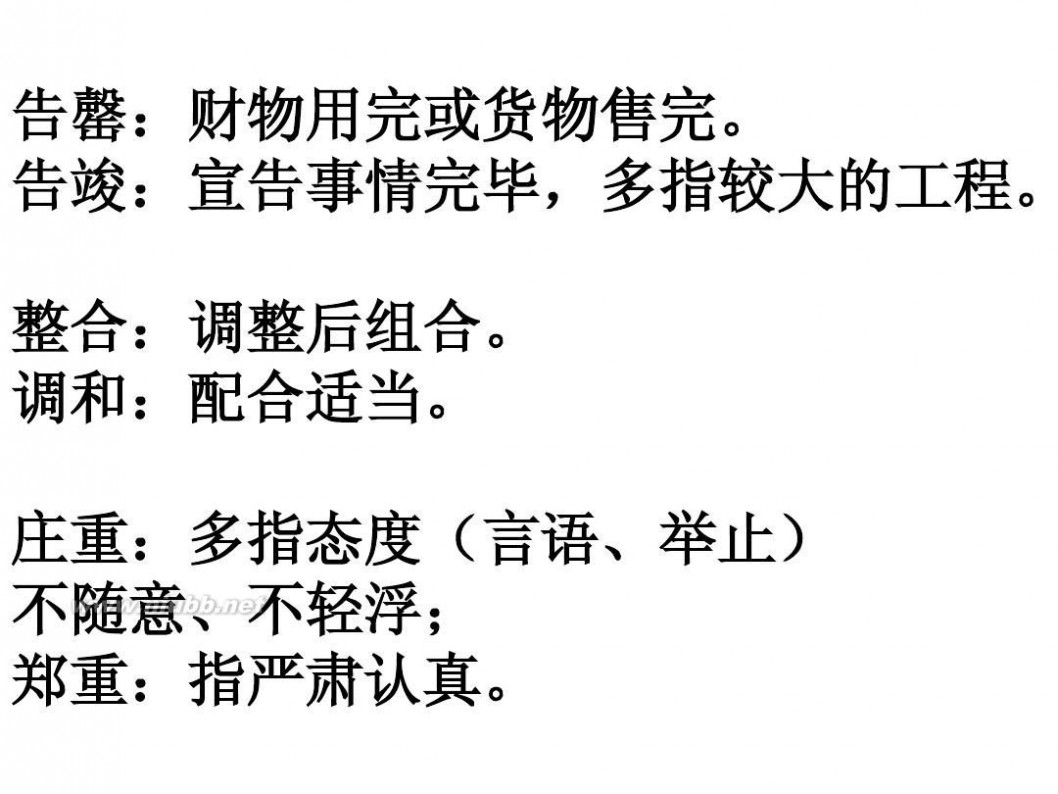
全部的近义词 最全的近义词辨析
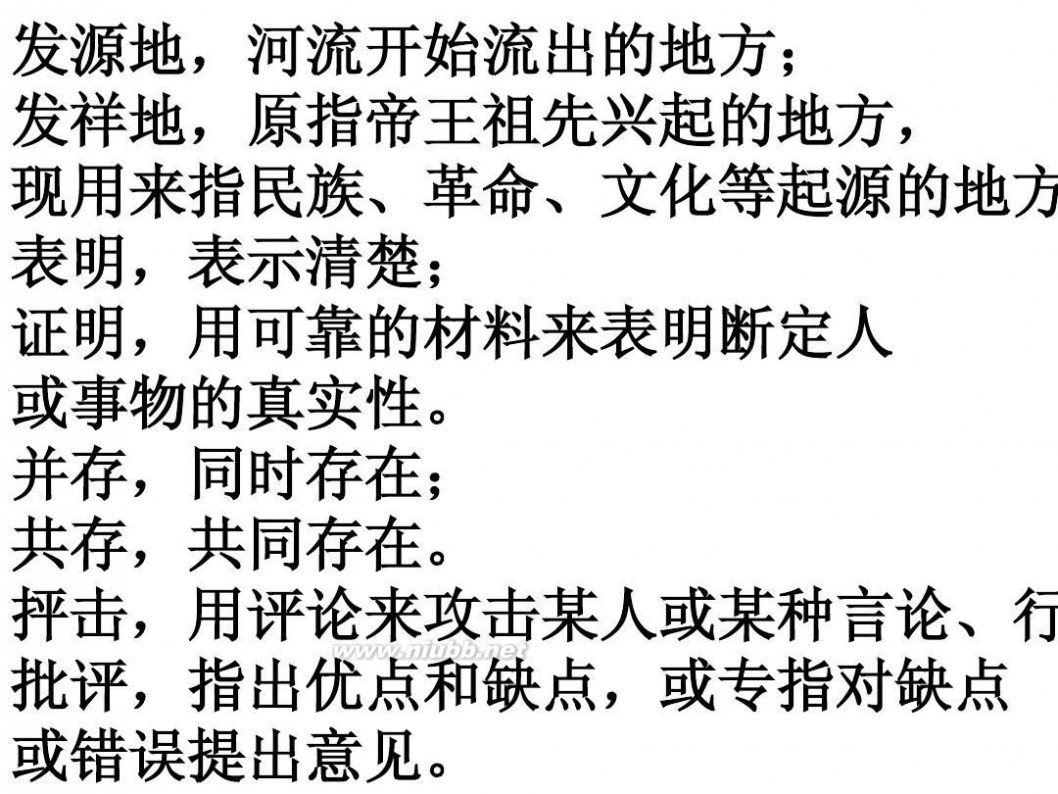
全部的近义词 最全的近义词辨析
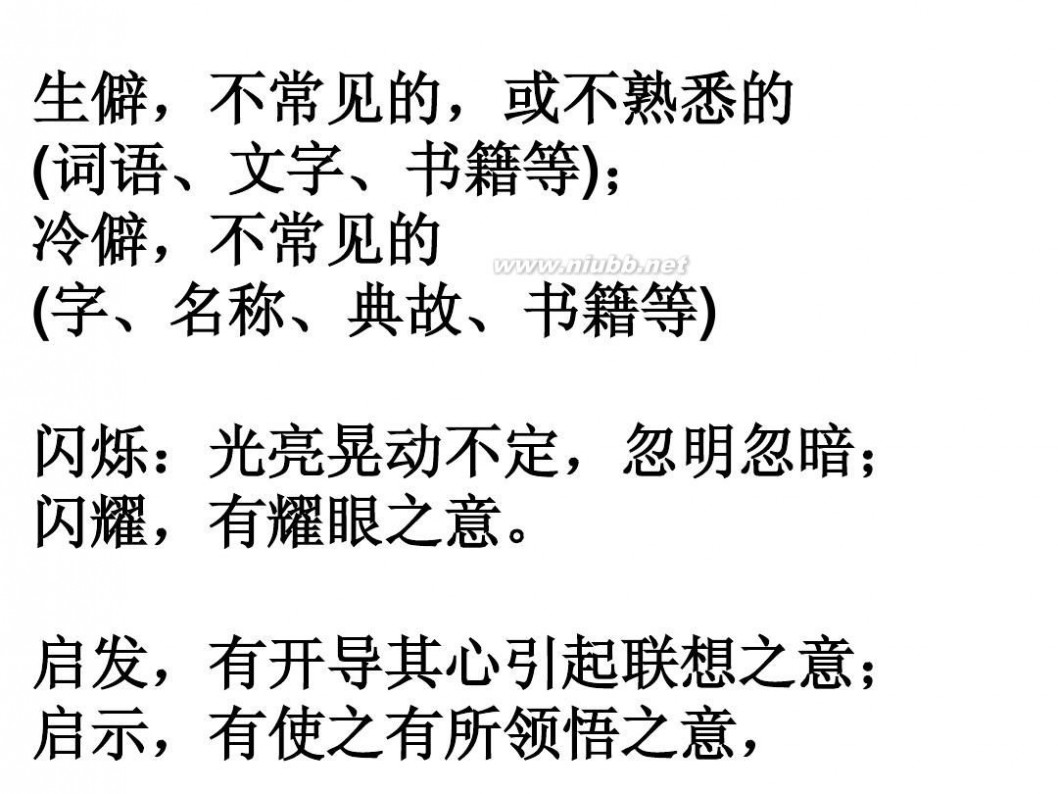
全部的近义词 最全的近义词辨析
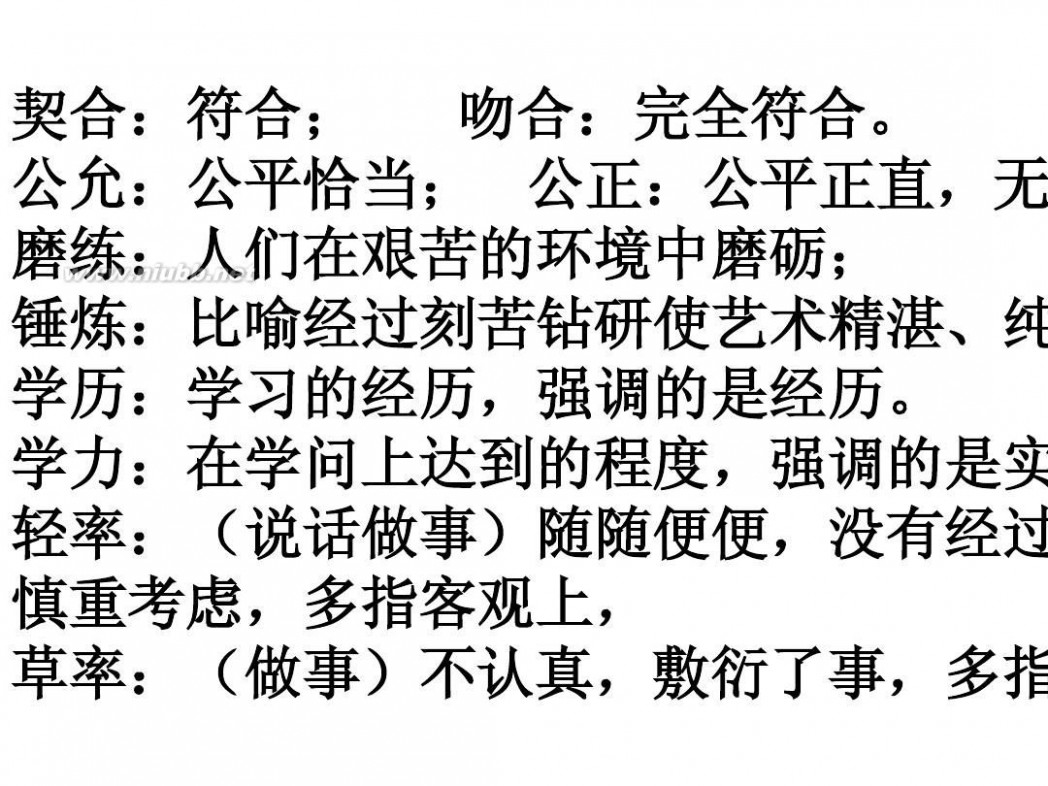
三 : 辨析近义词的三种方法
四 : 近义词的详解与辨析
中考近义词83组辨析梳理:
1、 say/ speak/ talk/ tell
Ⅰ. say “说、讲”普通用语,指用言语表达思想,强调所说的内容。(www.61k.com)如: ① What did he say? 他说了些什么? ② He said that it was true. 他说那是真实的。
Ⅱ. speak “说、讲”可表示以任何一种方式说话。它着重于说话这一动作本身。而不强调所说的内容。为不及物动词。作及物动词时与表语言的词连用。如: ① Please speak more slowly. 请说得慢一些。 ② The baby is learning to speak. 这小孩在学说话。 ③ She can speak English fluently. 她英语说得很流利。 Ⅲ. talk “谈话、讲话”,通常表连贯地与别人谈话。强调谈话这一动作,而不是内容。如: ① He was talking to a friend. 他在和一个朋友谈话。 ② He went on talking for a long time, but he spoke so fast that few of us could catch what he said.
他滔滔不绝地讲了半天,但是他说得太快,我们几乎没有什么人能听懂他说的些什么。 ③ She is always talking nonsense. 她总爱讲废话。
Ⅳ. tell “告诉、讲述”指将某事讲给别人听。它有时还有“吩咐、命令”等含义。如: ① He told the news to everybody in the village. 他把这消息告诉了村子里的每个人。 ② She told me not to write the letter. 她叫我不要写信了。 ③
2、see watch notice
see,强调看的结果。有意识或无意识地看。see a film. look,强调看的动作。
watch,强调注视动静变化之意。
notice,强调有意识地注意,从没没注意到注意到了的变化。
3、hear of , hear from, hear about.
hear of意指间接地“听到”“听说”后接名词性质的词。如:
I have never heard of him before. 我以前从来没有听说过他。
注意:hear of与hear about的意义相近,这两个词组在英语中有时可以通用。它们含有“听人说起”,“从书报上看到关于”等意义。例如:
I?ve never heard of him. 我从来没有听说过他。
Have you heard about him from anywhere?你从什么地方听到过他吗?
(3) hear from指“收到……的来信”与get or receive a letter from 同义,其宾语应是人,而不是信。如:
I often hear from my parents.我经常收到父母的来信。
4、give in, give up
give `in (to sb/sth) allow oneself to be defeated or overcome (by sb/sth) (向某人[某事物])屈服, 让步, 投降: The rebels [?reb?l] were forced to give in. 叛乱者被迫投降. * She's a gutsy ['g?tsi] player, she never gives in. 她是个勇敢的选手, 从不屈服. * The authorities [?:?θ?riti] showed no signs of giving in to the ['kidn?p?] kidnapper's demands. 当局对绑架者的要求丝毫没有让步的迹象. give up v.放弃, 抛弃, 戒除, 交出;(oneself)自首
He gave himself up (to the police). 他(向警方)投案了。
abandon an attempt to do sth 放弃做某事的尝试: They gave up without a fight. 他们不战而降. * She
1 / 13
doesn't give up easily. 她做任何事都不轻易放弃. * I give up; tell me what the answer is. 我认输, 告诉
我答案吧.
5、achieve、come true、 realize
achieve:实现成绩、目标,主语是人。
realize:实现,意识到,多指意识到某种道理、规律什么的,主语是人。 come true:实现,多指梦想、蓝图、计划,主语是梦想蓝图计划什么的。 意思有区别的,可以根据上下文意思区分。不过come true和realize好像更多的用于Dream;achieve则更多的用于goal或者直接跟sth. 用法是
achieve sth.
realize one's dream; realize sth.(也可以表示“意识到。。”) make ...(dream/..) come true
6、accident/incident “事故”
Ⅰ. accident 可以表示事故,指不幸的意外事件。也表偶然的事件。 ① Twenty people were killed in the railway accident ② He met with an accident. 这完全是偶然的事。 Ⅱ. Incident 的意思是事件,尤指与较重大的事件相比,显得不重要的事件。它还可以表引起国际争端或战争的事件。
① It is a quite common incident.这是很普通的事。
② The Lugouqiao incident accrued on July 7th, 1937. 芦沟桥事件发生于1937年7月7日。
7、above/over/on/upon
Ⅰ. 方位介词,“在??之上”
Ⅱ. above 着重指:在??上方,不一定含有垂直在上的意思。反义词为:below. ① The sun rose above the horizon. 太阳升到了地平线上。 ② The aero plane flew above the clouds.飞机在云层上飞行。
Ⅲ.over 表盖在??上面,或铺在??上面。此时不能用above.代替。含有垂直在上的意思。反义词为under. ① Spread the tablecloth over the table.把桌布铺在桌子上。 Ⅳ. on 含有与表面相接触的意思。 ① The book is on the desk. ② There is an oil painting on the wall. 墙上有一幅油画。
Ⅴ.upon 也含有和表面相接触的意思。与on没有多大的区别,但较正式,口语中较少用。 ① He laid his hand upon the boy?s head. 他把手放在孩子的头上。
[注] up 与以上几个不同,它表示向上方或高处,含有由下而上,由低而高的意思。常和表示运动的动词连用。作副词时,表示在上方或高处。 ① We run up a hill. 我们跑上山。
② The plane was high up in the air.飞机在高空中。
8、at hand/ in hand
Ⅰ. at hand“在手边;在附近;即将到来”如: ① When he writes, he always keeps a dictionary at hand. 他写东西时,手边总有一本字典。 ② Spring is at hand. 春天就要来了。
Ⅱ. in hand “在手中的;现有的”引申为:“在掌握中;在处理中”。如: ① I have 100 yuan in hand. 我手头有100元钱。 ② The police immediately had the situation in hand. 警方立即控制了局势。
强调的近义词 近义词的详解与辨析
9、across/through/ over
61阅读提醒您本文地址:
Ⅰ. across “横过、穿过”,指从??的一边到另一边。[www.61k.com)含义与on有关。如: ① I swam across the river. 我游过这条河(指从此岸到彼岸) ② Let?s help push the cart across the bridge. 我们帮着把车子推过桥吧。
Ⅱ. through “穿过、通过”指穿过两边。是从空间较狭窄的一头穿到另一头。是从内部穿过,含义与in有关。如: ① We walked through the forest. 我们穿过森林。 ② The river flows through the city from west to east. 这条河从西到东流过城市。
Ⅲ. over“横过、跨越”指横过道路、河流等“细长物”时,与across通用。Over 虽可指从表面的接触及跳(飞)越,但指渡过则不能用。从房间、原野、海洋等“平面延伸”的一端横越到另一端时也不能使用。而常用across. ① She went across / over the bridge. ② He jumped across / over the stream他跳过了小溪。 ③ She swam across the straight of Dover. 她游过了多佛尔海峡。 ④ They drove across the desert. 他们驶过沙漠。
另外,over作介词还有“翻过??”的意思,如:climb the mountain 翻过那座山。
10、feel like / would like
Ⅰ.feel like 与would like 意思很相近,但feel like 后面常跟名词;动名词。构成:feel like (doing) sth. 而 would like 一般接名词;动词不定式。构成:would like (to do) sth.的句式。如: ① I feel like (having) a drink. = I would like (to have) a drink. 我想喝一杯。 ② Do you feel like talking a walk. = Would you like to take a walk? 你要不要散步? ③ I don?t feel like eating. 我不想吃东西。 Ⅱ.feel like 还表示:“觉得好像,摸起来像”。如: ① It feels like silk. 它摸起来像绸缎。
11、after/behind “在??之后” Ⅰ. after “在??(时间)之后”;
“在??(地点)之后”,指次序。如:
① He came after ten o?clock. 他十点以后来的。 ② Two days after his arrival, I called on him. 在他到达两天以后,我拜访了他。 ③ ?Against? comes after ?again? in this dictionary.在这本字典中 ?against? 排在 ?again? 之后。
Ⅱ. behind 表地点时意为:在??后面、着重指位置的前后。偶尔也指时间,表按照一定的时刻而迟了的意思。 ① The garden is behind the house. ② He stood behind me. ③ The train was behind time. 火车误点了。 ④ You are two hours behind. 你迟了两个小时。
12、agree to/ agree with/ agree on(up on)
Ⅰ. agree to “同意、应允”通常用于同意某件事情(我们可以同意我们自己有不同看法而并不赞同的事情)。如: ① Do you agree to this plan? ② He agreed to my proposal.他同意了我的提议。 ③ I agreed to his terms. 我同意了他的条件。
Ⅱ. agree with “同意、赞同”常常表示同某人意见一致,也可表赞同某件事情。还有“(气候、食物等)适合”之意。如: ① I quite agree with you.我很同意你。 ② Do you agree with me ? ③ I agree with all you say.我同意你所说的。 ④ His words do not agree with his actions.他言行不一致。 ⑤ Too much meat doesn?t agree with her. 吃太多肉对她身体不合适。 [注]:agree with 不能用于被动语态。
Ⅲ. agree on /upon “对??取得一致意见”指两方或多方就某个问题取得了一致的意见或达成了某种协议。如: ① After discussion the two sides agreed on a cease-fire. 经过讨论,双方就停火问题达成了协议。 ② They all agree on the plan.他们对这个计划意见一致。
2 / 13
[注]:此句型可转换成agree in doing sth.如:
① All of them agreed on / upon it. = All of them agreed in doing it. 他们对做这个问题达成了共识。
13、at times / at all times / all the time
Ⅰ. at times “不时;偶尔”如: ① The tide is , at times, very high. 潮水有时涨得高。 ② I make mistakes at times when I speak English. 我说英语偶尔会出错。 Ⅱ. at all times.“随时;任何时候;总是” 如:
He has a cool head at all times. 他随时都有清醒的头脑。
Ⅲ. all the time “一直;始终” 其中time用单数形式。如: The baby cries all the time. 那婴儿一直哭。
14、alive/ living/ the living/ live/ dead
Ⅰ. alive adj“活着的”“在世的”,它既可修饰人也可修饰物。可作表语,定语。作定语时,应放在被修饰的名词之后。如: ① They were alive and as happy as ever. 他们都还活着,并跟以前一样快活。 ② All the other comrades were killed in the battle. He was the only man alive. 所有的同志都还活着亡了,他是唯一
的幸存者。
Ⅱ.living adj,“活着的”主要用着定语,常置于名词前,有时也可置于名词后。也可作表语。如: ① Every living person has a name. 每个活着的人都有一个名字。 ② No man living could do better. 当代人没有一个能做得比这更好。 Ⅲ. the living “活着的人”如:
The living are more important to us than the dead.对我们来说活着的人比死了的人更重要。
Ⅳ. live adj. “活着的”读着[laiv],反义词为 dead, 可作定语,放在所修饰的名词之前,一般不用来修饰人。 还可以作动词,读着[liv], 意为“生活”、“生存”如: ① The cat was playing with a live mouse. 这只猫在玩弄一只活老鼠。 ② Pandas usually live in the south and the southeast of China. 熊猫通常生活在中国的南部和东南部。 Ⅴ. lively adj. [?laivli](livelier, liveliest) “生动的”;“活泼的”;“充满生气的”用作表语或定语,可用来修饰人或物。如:
The sports ground is lively with all sorts of ball games. 运动场上进行着各种球类比赛,呈现出一派生气勃勃的景象。
15、all/ whole
Ⅰ. 二者意义(“全部、都、整个”)相同,然而词序不同。 Ⅱ. all用于冠词,所有格或其它“限定词”之前。 whole 则用于冠词之后。如: ① all the time. ────→the whole time.全部时间 ② all my life ────→the whole life.我的一生 ③ all this confusion ─→ this whole confusion.整个混乱状况。
61阅读提醒您本文地址:
Ⅲ. 如果没有冠词,或其它限定词,whole不能与单数名词连用。可以说: ① The whole city was burning.但不能说: Ⅳ.whole 和 all 与复数名词连用时意思不同。Whole 的意思为“全部”,而all的意思则近乎“每一个”如: ① All Indian tribes([traib]部首 ) suffered from white settlement in America. 所有印第安人部首都因白人移民美洲而
遭殃。 ② Whole Indian tribes were killed off. 有些印第安人部落整个被杀光了。 Ⅴ. whole 一般不用来修饰不可数名词(包括物质名词) ① 可以说:all the money 或all the wine ② 不可以说:the whole money 或the whole wine. ③ The whole of = whole 与单数名词连用。它用于冠词、所有格之前。
the whole of the time. the whole of my life
强调的近义词 近义词的详解与辨析
the whole of this confusion
16、
almost/ nearly
Ⅰ. almost“差不多、几乎”有very nearly 的意思。[www.61k.com)如: ① He has almost finished his work. 他差不多完成了他的工作。 ② Almost no one took any rest. 几乎没有一个人休息一下。
Ⅱ. nearly “差不多、几乎、将近”指一差距一般比almost 大。如: ① It?s nearly five o?clock.差不多五点钟了。 ② Nearly everyone knows it. 几乎每个人都知道这个。 ③ He?s nearly ready. 他快准备好了。
[注]:almost有时可与nearly通用,但当其与no, none, nothing, never连用时,不用nearly。如以上almost的例①可以互换,但例②则不能。
17、as soon as/ as early as/ as quickly as
Ⅰ. 这三个词都有“尽快、尽早”之意。 Ⅱ. as soon as 侧重于“极短时间内”。还表示“一??就??”之意,引导状语从句。如: ① I?ll return it as soon as I can.我将尽快地把它还给你。
Ⅲ. as early as 侧重于一天中的早晨或在限定的时间内再早点,以便能达到预期的目的。如: ① You should arrive there as early as you can. 你应尽早到达那里。 Ⅳ. as quickly as 表做某事的速度非常之快或动作非常之敏捷。如: ① Please read the text as quickly as you can. 请把课文尽快读一遍。
18、
as soon as/ hardly?when/ no sooner?than
Ⅰ. 三者在意义上基本相同,都有“一??就??”,“刚??就??”,但它们各有其特点。 Ⅱ. as soon as 最为普通,位置灵活,可在主句前,也可在其后。且可用作多种时态。如: ① As soon as I went in , Kate let out a cry of surprise. 我一进去,凯特就惊讶地叫了一声。 ② I?ll tell him as soon as he comes back.
Ⅲ. hardly? when?的主句通常 用过去完成时,从句用一般过去时,when有时还可换成before.如: ① He had hardly finished his homework when the light went out. 他刚写完作业灯就灭了。 ② Hardly had I come back when they began quarrelling.我一回来他们就开始吵了起来。(hardly 提前时,句子需要
倒装。)
Ⅳ. no sooner?than?句型中, no sooner一般只置于句首,所以主句有倒装形式。如:
No sooner had I known the news than I telephoned my mother. 我刚知道这个消息就打电话告诉了妈妈。
19、
at/ beside/ by/ near
Ⅰ. at “靠近”往往动作联系,意味着有目的、有意识的靠近,而by, beside, near只意味着就“靠近”而言。如: ① He sat at the desk. He wanted to read, 他坐到桌边,想看书。 Ⅱ. beside “在??旁边”;by = just at the side of “就在旁边”。两者一般可通用。但by 比beside语势较强些,并多用于日常用语中。如: ① There is a hospital beside / by the river. 河边有一家医院。 [注]:指“在某人身边”时,常多用beside. Eg: ① The little boy is standing beside his mother. Ⅲ. near “在??附近”或“离??不远”,它表示的距离要比by / beside 来得远些。如: ① We live near the sea.我们住在海边。(表离海边有些距离) ② We live by / beside the sea.我们就住在海边。(表海就在身边)。
20、若表当今世界的开头,则必须用in the beginning eg:
In the beginning there were no men nor animals nor plants. 在盘古开天辟地时,既没有人,也没有 动植物。
21、
blind in / blind to
3 / 13
Ⅰ. (be) blind in 表示哪只眼睛瞎了(左眼或右眼);若表示一只眼睛瞎了,也可以用blind of one/an eye.如: ① He is blind in the right eye. 他的右眼瞎了。 ② The old woman is blind of one eye. 那老妇人的一只眼瞎了。 Ⅱ. (be) blind to 表示“对??视而不见”。如:
Many people are blind to their own faults. 许多人看不起自己的缺点。
22、 alike/like
Ⅰalike 与like 都有“相像”之意。但alike 只能作表语,不能作定语,其前不能加very , 只能用much 或 very much 修饰,此外alike 还可作副词。如:
The two brothers are very much alike. 兄弟俩长得很相像。
Ⅱ like 可用作表语,也可作定语,还可作介词、连词用。作动词时,意为“喜欢”如: ① The two brothers are very like (very much alike) ② Like father, like son. [谚]有其父必有其子。 ③ I don?t like swimming. 我不喜欢游泳。 ④ Like causes tend to produce like results. 类似的原因往往会产生类似的结果。
23、before long 、 long before 、long after、soon after
before long是“很快,不久”的意思, 可以用于各种时态。是词组表示时间,单独用。 before long是不久以后,等于soon
I'll see the film before long 我不久就要看这部电影. I hope to see you again before long.
long before “很早以前”,“好久以前”等于long long ago
We finished our work long before. 我们早就把工作做完了
soon after 不久之后, 稍后,after是连词,后面跟一个句子。 They met in May and became lovers soon after. 他们在五月份相遇,不久就成为了情侣。
61阅读提醒您本文地址:
long after很久以后, after是连词,后面跟一个句子。
She found out her husband was a devil long after her marriage.
她结婚很久以后发现她丈夫是一个邪恶的人。
?doing sth.
"试着做某事,尝试" 强调用某种方法24、try??
试验一下, 指效果。如: ??
to do sth. “努力做某事” 强调作出的努力。1.
Let’s try knocking at the back door..让我们敲敲后门试试看。 2. We will try to go home tomorrow. 明天我们争取回家。
① need ??doing sth.
“必须(需要)做某事”。表被动意义。?to do sth.
“必须(需要)做某事”。 表主动意义。
want doing sth / to do sth. 与此相同。
25、bring/ take/ fetch/ get/ carry
都有“拿”的意思,但用法差别很大,切勿混同。
强调的近义词 近义词的详解与辨析
Ⅰ.bring“拿来、带来”强调从别处带某人或某物来到说话人所在地。[www.61k.com]如: The teacher asked the students to bring their dictionaries to the class.
Ⅱ.take“拿走、带走”强调人或事物离开说话人所在地,与bring的关系相当于go与come的相对关系。如:
May I take this magazine home? Ⅲ.fetch“去取来、去拿来” 指去取了东西又回来这一往返过程,相当于go and bring,但不同于bring,如:
Please fetch me some chalk.
get与fetch意思相似,多用于口语。如: Go and get/fetch some water.
Ⅳ.carry“携带、搬运”强调某物从甲地移至乙地,带有物体随身移动但无固定方向。如: ① He carried the box upstairs.
另外空气、水、电携带物也用carry.如:
① The boat was carried by ocean currents to a small island.这船被大洋的水流飘至一小岛。
26、 care (about) / take care of/ care for
Ⅰ.take care of“照料=look after,即指喂饭照看等。如: ① Nurses take care of patients in hospital. [注]:它还可表所负的责任,如: ① Mr Savage takes care of marketing and publicity. 萨维奇先生负责销售和宣传。
Ⅱ.care about表你是否认为某件事是重要的,某件事是否引起了你的兴趣或使你忧虑,常用于疑问句或否定句中,后接从句时,about一般都要省略。如:
I don?t care whether it rains, I?m happy. 我才不在乎下不下雨呢,我快活着呢。 Ⅲ.care for 有以下几种意思 1)“照料”(特别是多用在正式的或较文的文体中)如:
She spent the best years of her life caring for her sick father. 她把一生中最好的岁月都用来照料她那有病的父亲了。 2)“关怀”“关心”如:care for the younger generation 关怀年轻的一代 3)“喜欢、愿意”(多用在疑问句或否定句中)[care for sb. to do sth.] 如: ① Would you care for a cup of tea? 你喜欢喝一杯茶吗?
② I don?t/shouldn?t care for him to read this letter. 我不愿让他看这封信。
27、 carry on/ carry out/ carry through Ⅰ.carry on的意思是“进行、继续”,如: ① I tried to carry on a conversation in English, but could not. 我想用英语进行谈话,但是力不从心。 ② He told them to carry on. 他叫他们继续进行。 ③ Carry on (with) your work. 继续你的工作。
Ⅱ.carry out的意思是“贯彻、执行;完成、实现”,如: ① Sometimes it?s easy to make plans but difficult to carry them out. 有时候作计划容易而执行计划却很难。 ② Our plan was carried out successfully. 我们的计划胜利地完成。
Ⅲ.carry through 的意思是“完成-----,将-----进行到底;使(人)战胜困难,渡过难关。如: ① Carry the revolution through to the end. 将革命进行到底。 ② His courage will carry him through. 他的勇气使他战胜困难,渡过难关。
28、choose/ select/ elect
4 / 13
Ⅰ.choose的意思是“选择、挑选”,通常指在所提供的对象中,凭个人的判断力进行选择。如: ① You may choose from among them the one you like best. 你可以从它们中间挑选最喜欢的一个。 ② Let me choose a book from among these. 让我从这些书中选一本。 [注]choose后面可以接不定式,表示愿意、决定等意思。如: I didn?t choose to go. 我不愿意去。 Ⅱ.select的意思是“选择、挑选”,通常指从很多对象中精心地进行挑选,往往指根据被选择对象的优劣进行选择。如: ① The finest products were selected and sent to the exhibition. 选择了最好的产品送到展览会去。 ② They were selected from among many applicants. 他们是从许多报名者当中挑选出来的。 Ⅲ.elect的意思是“选、选举”,常指通过正式手续(如投票等)进行选举。如:
They elected him chairman. 他们选举他当主席。 这里如果改用choose/select,那就着重于选择的意义,不一定是正式选举,整个句子应为:They chose him as their chairman.
[注] pick 一词也可以表示挑选、选择的意思,含有仔细挑选的意味,有时也表示任意挑选的意思。如:
Pick the best one. 挑选最好的吧。
29、cost/ spend/ pay/ take
Ⅰ.cost 指某东西“值??钱”; “需要花费??钱/ 精力”等,它的主语一般为表示东西的名词,不能为表示人的名词,作及物动词和名词。可接双宾语,无被动语态。如: ① I’ll bet that dress cost a thousand dollars.我敢说那件衣服得花1000美元。 ② The chair cost me thirty yuan.这把椅子花了我30元。
③ The building of the dam cost many lives. 修建这个水坝使许多人丧生。(使花(某种代价);使损失)
④ Bad driving may cost you your life.开车技术不行可能使你丢掉性命。
⑤ 作名词时意为“花费;成本”→The cost of the house was too high for me.这房子的价钱太高,我买不起。 [常用搭配]:
① at all costs 不惜一切代价,?????—→The officer told the soldiers that they must defend the town at all costs. 军官对士兵们说要不惜一切代价保卫这座城市。 ② at the cost of 以??为代价。
61阅读提醒您本文地址:
→1). He finished the work at the cost of his health. 他完成了这项工作,但失去了健康。 →2). She saved him from fire, but at the cost of her own life. 她从火中把他救出,但她自己却牺牲了。 ③ cost of living 生活费用。
—→As the cost of living goes up my standard of living goes down. 生活费用越上涨,我的生活水准越降低。
Ⅱ.spend 的主语经常是人 , 用来表示人花钱买东西或花时间做某事, 常用的句型有: 如:
① I spend 5 yuan on the book.我买这书花五元钱。
② The boy spent 10 minutes drawing a dog.那个男孩花了10分钟画一只狗。 Ⅲ.pay “支付,花费”,主语只能是人 且只用于花费金钱,其结构是: pay + sb + some money + for sth. “为??付给某人多少钱” 其中的人、钱、事,可以根据具体情况取舍。如: ① I paid (him)5 yuan. 我付(给他)5元钱。
② I paid him 5 yuan for the book. 我买那本书付给了他五元钱。 ③ I paid him for the book. 我买那本书付给了他钱。
强调的近义词 近义词的详解与辨析
④ I paid for the book. 我付了那本书的钱。(www.61k.com] Ⅳ.take 也可表“花费时间和金钱”,(一般只指花费时间) 其常用结构为:It +take(各种时态)+time/money+to do sth. 如 It took me three hours to finish the work.
30、dress/ put on/ wear/ in/ try on
Ⅰ. dress “穿”指穿的动作,也指其状态。如: ① His mother dressed him in new clothes. 他的母亲给他穿上了新衣服。 ② Get up and dress quickly. 快起床穿衣。 ③ She dresses neatly. 他穿着整齐。
[注]:作vt,直接对象是人,而不是穿的衣服;作vi时,不能表穿什么衣服。 Ⅱ. put on “穿;戴”强调其动作。如: ① Put on your coat. 穿上大衣。 ② He put on his hat and went out. 他戴上帽子出去了。 Ⅲ. wear “穿;戴” 强调其状态。如: ① He wears a coat. 他穿着大衣。 ② The teacher wears glasses.老师戴着眼镜。
Ⅳ. in “穿;戴” 是介词。它构成的短语作定语或表语表其状态。其后还可接表颜色的词。如: ① She is in a coat . 她穿着大衣。 ② The boy in blue is my brother. 那个穿蓝色衣服的男孩是我的弟弟。 Ⅴ. try on “试穿/ 戴”如:
Please go to the tailor?s to have a suit tried on. 请到裁缝店去试穿一套衣服。
31、each/ every “每个”
Ⅰ. each 和every 常可通用,后跟单数名词。但也有一些区别:1)着重强调个体,而every 着重强调整体。如:
① Each student has got a new dictionary. 每个学生各有一本字典。 ② Every student has got a new dictionary. 每个学生都有一本字典。(every student = all the students) Ⅱ. each 用于指两个或两 个以上的人或事物, 而every 则用于指三个或三个以上的人或事物。 如: ① There are some ads on each side of the road. 公路的每一侧都有一些广告。(each side – both sides.这个句子中的
each 不能用every 代替。) ② You look more beautiful each / every time I see you. 每次见到你,你都看起来更漂亮。 Ⅲ. each 可用作代词,后跟“of+复数名词 / 代词”。动词仍然用单数,every 则不能这样用,因every是形容词。如: ① Each of students has got a new book. = Every one of the students has got a new book. = The students each have got a
new book.(The students have got a new book each.)每个学生各有一本新书。 ② Each of them likes light music. = Every one of them likes light music. = They each like light music. (They like light
music each.) 他们人人都喜欢轻音乐。
32、else/ other“别的、其它的”
Ⅰ. else adj.& adv 作形容词时,主要用在 who, whose , what , 等疑问代词,或,nobody, nothing, somebody,
something, anybody, anything, 等不定代词之后作宾语;作副词用时,用在where,when等词后作状语。如: ① He said what else you would like? 他问你还想要什么? ② Where else are you going to stay? 你们还要在别的什么地停留? Ⅱ. else 可带?s。读作:[′elsiz] . 如:
I took someone else’s book by mistake. 我错拿了别人的书
Ⅲ. other 是形容词,有来修饰名词时,须放在名词之前。如: Where are the other boys? 其它的男孩在哪里? Ⅳ. 还可以修饰代词one, 或ones. 如:
This story is more interesting than the other one. 这个故事比那个故事更有趣。
5 / 13
33、every day/ everyday
Ⅰ.every day连写和分开,不但在句中的作用不同,意义也不同。 every day是副词词组,意为“每天、天天”,在句中作状语。如:
We go to school every day.
Ⅱ.everyday是形容词,意为“日常的、普通的”,在句中作定语。如: I study everyday English every day.
34、 every one/ everyone
Ⅰ.every one是“每个”的意思,通常指物,后面常跟of短语。但跟of短语的every one既可指人,也可指物。具体指什么要看of短语的内容。如: ① He ate up every one of those apples. 他把那些苹果一个个都吃完了。 ② Every one of us went there. 我们每个人都去了那儿。
Ⅱ.everyone是代词(=everybody),意思是“每个人、人人”,但一般不指具体哪个人,后接单数动词。如果需要跟物主代词,应用their或his,其后不跟of引起的介词短语。如: ① Is everyone here? ② Everyone can do it.
[注]every one后不与of连用时,即可指人又可指物,指人时与everyone 相同。如: Everyone (every one) can do it.
every one与of连用必须分开写。
everyone 与not连用,只表示部分否定,并不是每个人的意思。
35、excuse ?for/ excuse ? from
Ⅰ. excuse ? for “原谅某事”。如: ① He excused me for being late. 他原谅我迟到了。 ② Please excuse me for using your telephone without asking permission. 请原谅我没经你允许就用了你的电话。 Ⅱ. excuse ? from “使免于??,允许不??”如: ① The teacher excused him from the examination. 教师同意他免试。 ② The boy was excused from doing housework. 允许这男孩不做家务事。
61阅读提醒您本文地址:
36、faraway/ far away
Ⅰ.faraway指时间、距离、程度等,“遥远的”如: the faraway guests 远方的客人 它还可表“心不在焉的”。如: a faraway look 恍惚的神色
Ⅱ.far away是副词词组,只表距离远,在句中作状语还常作后置定语。如: ① He?s standing far away. ② He lived in a small village far away.
37、festival/ holiday/ red-letter day/ vacation
Ⅰ.festival“节日”其特点是同欢乐,如:外国的圣诞节,我国的春节等。 ① Christmas and Easter are Church festival.圣诞节和复活节都是教会的节日。 ② A number of new films were shown during the Spring Festival. Ⅱ.red-letter day “纪念、节日、大喜日子”,指日历是用红字标明的日子,如: There are many red-letter day round the year.
Ⅲ.vacation通常指按规定停下工作或学习等活动而休息的一段时间,一般较长,如学校里的寒暑假。如: The summer vacation is over. 暑假已经过去了。
Ⅳ. holiday n. 一般表示时间可长可短的假期,为可数名词。与季节连用时多用复数;与数词连用时只表示次数,
强调的近义词 近义词的详解与辨析
不表示日期。(www.61k.com]例如:
We have had three holidays since the beginning of the year.
但三天的假期应说:a holiday of three days或a three days? holiday。 vacation n. 一般表示比较长的假期,多指大学的假期、法庭的休庭期。至于寒、暑假,英国人喜欢用:summer/winter holidays,美国人喜欢用:summer/winter vacation,区别不大。例如: We spent our summer holidays/vacation in the countryside this year. My Dad is now on holiday/vacation in Beijing.(表示状态)
Every year, we go to the island for holiday/vacation.(表示目的)
(holiday/vacation用单数,前面也不加冠词,但可用on/for one?s holidays)
38、fairly /quite / rather
Ⅰ. fairly 多用于褒义,语气最弱,表“适度、尚可”等意思。 ① It?s fairly cold out; wear a jacket. 外面颇冷,穿件外套。 ② This is a fairly easy book. 这是一本相当浅易的书。 Ⅱ. Quite 与fairly 用法相似,但语气较强。如: ① It is quite cold out; wear a coat. 外面很冷,穿件外套。 ② You are not quite happy this morning. 你今天早上我太高兴。 Ⅲ. rather 多用于贬义。语气在这三个词中最强。如:
It is rather cold out; wear a warm coat. 外面相当冷,穿件暖和人大衣。
39、fight/ struggle/battle
Ⅰ.fight 意为“战斗”,指人与人,动物与动物,用武器或不用武器的战斗,也可以引伸其义,如:
They fought their enemies bravely. 他们勇敢斗敌。 Ⅱ.struggle意为“斗争”,指那些费力、很艰苦、时间长的斗争,如: His life was a hard struggle with sickness. 他一生与疾病作了艰苦的斗争。 Ⅲ.battle“作战”,一般指有组织的武装部队之间的斗争。如: They were wounded in battle. 他们都在战斗中受了伤。
作为名词时,fight和battle都有“战斗”的意思,有时可以通用。如: The fight/battle lasted a long time. 这次战斗持续了很长时间。
1) fight的意义比较广泛,还可指人对自然界的斗争,有时也指人们之间的斗争。如: We have starded a fight against pollution. 我们已开始了一场消除污染的斗争。 2) struggle相当于a hard fight(奋斗),如: The slaves won their struggle for freedom. 奴隶们为自由而进行的斗争胜利了。
40、famous as / famous for
Ⅰ. (be) famous as “以(某种身份)??出名(著名)”as后跟人宾语往往与主语同位。如:
① She is famous as a poet. 他以一名诗人而著名。 ② The town is famous as a car-making place. 该城镇以制造汽车而闻名。 Ⅱ. (be) famouse for “困??而闻名(驰名)”表示由于某种特征而出名,for后的宾语一般为主语人从属内容。如: ① China has been famous for its silk. 中国素以丝绸闻名。
This city is famous for its big gambling resort. 该市因其大赌场而驰名。
41、grow / keep / raise / plant
Ⅰ. grow & plant 都可表示“种植”如种植草、树、苗、花卉粮食等植物。grow 着重指种植以后的栽培、管理过程。
plant 着重指“种植”这一行为。某人plant a tree 之后,树是死是活,不一定管,但某人grow a tree 则包括培育管理,使其生长的过程。如:
6 / 13
① The students are planting trees on the hill. 学生们正在山坡上栽树。(不用grow) ② The farmer grows wheat in this field.那位农民在这块田里种植小麦。(不用plant) ③ People grow bananas in Hainan. 海南种植香蕉。(不用plant)
Ⅱ. keep 表“赡养”后可接表人或动物的名词,不用来代替plant 或grow. 如: ① He has a wife and three children to keep. 他要养活妻子和三个孩子。 ② My grandma keeps pigs and hens. 我奶奶养猪养鸡。 ③ My uncle has a large family to keep. 我叔叔要养活一大家人。 Ⅲ. raise 除表“饲养(动物)”以外,还可表示“教育(子女)”; “培育(植物)”。如: ① We raised a good crop of tomatoes this year.今年我们种的西红柿长得很好。 ② My grandma raised a family of five. 我祖母养育了五口之家。 ③ Where were you raised ? 你在哪儿长大? ④ He raised some flowers in the back garden. 他在后园里种了一些花。
[注]:raise 强调从小精心培养到大,通常指培养花卉以及较难管理的植物。如: ① Let?s grow / raise some flowers in the garden.咱们在园子里种些花吧。
① We grow rice, wheat and cotton in my hometown. 在家乡,我们种植水稻、小麦和棉花。(不宜用raise)
42、hand in/ turn in
Ⅰ. hand in “传递、交给”。指交作业等。如:
The teacher told them to hand in their exercise-books. 老师要他们交作业本。 Ⅱ. turn in “上交、交出”。指将某物归公。或交给上级或组织以便找到失主。一般也可与hand in 互换。如: ① You should turn in the money. 你应该把那钱上缴。 ② You should turn in / hand in your finished homework.你们应该把完成的作业交上来。
61阅读提醒您本文地址:
43、have been to / have been in / have gone to
Ⅰ. have been to ? 表示:“曾经到过某处”但目前人未在那儿。如:
① Where have you been? 你到哪儿去了?(现在已回来)I have been to Beijing. 我去北京了。(现不在北京) ② I have never been there before, have I? 我以前从未去过那儿,是吗? Ⅱ. have been in 表示:“去了某地,并曾在那儿(一段时间),或现在仍在那儿。 ① She has been in Shanghai for a few weeks. Ⅲ. have gone to ? 表示:“去了”指人已经走了,(至少目前不在说话的地点,在去的途中或已经到目的地)。如:① Kate isn?t at home, She has gome to school. 凯特不在家,她上学去了。(在路上或已经在学校了)。 ② She isn?t here, she has gone to Nanjing. 她不在这儿,她去南京了。
44、hanged / hung
这两个词都是hang的过去分词。
Ⅰ. hanged 是hang用作“上吊;绞死”时的过去时和过去分词。 ① The murderer was hanged this morning. 那个杀人犯今天上午被绞死。 ② He hanged himself from a beam in the attic. 他在阁楼上悬梁自尽了。 Ⅱ. hung 是hang 用作“悬挂;下垂”等 意思时过去时和过去分词。如: ① She hung the Christmas decorations on the tree. 她把圣诞节的装饰品挂在树上。 ② He hung his head in shame. 他羞耻得垂下脑袋。
45、hurry up/ hurry off(away) / hurry to
Ⅰ. hurry up 中的up是副词。“赶快、快点、加紧”之意。含有催促、命令之意。且常用于肯定结构,偶而用于否定结构时,up可省。如: ① Hurry up! There is not enough time. 赶快!时间不够了。 ② Don’t hurry. There is enough time. 别着急。还有时间。
强调的近义词 近义词的详解与辨析
Ⅱ.hurry off / away中的 away是副词。[www.61k.com)“匆匆离去”无催促之意。如: ① Li Lei hurried off /away without a word. 李雷一句话不说就匆匆走了。 ② With this, the woman hurried away / off. = With this, the woman went away in a hurry.说完这话,那妇人匆匆离去。 Ⅲ. hurry to 是短语动词。to 介词。“匆匆去某地”如: ① He hurried to his office. = He went to his office in a hurry. Ⅳ. in a hurry. 介词短语。“匆忙地(地)”,“慌忙地(的)” ① She dressed herself for the party in a hurry. 她为参加联欢会而匆忙地换穿衣服。 ② You are always in a hurry. 你总是匆匆忙忙地。
46、hurt/ injure/ wound
Ⅰ.hurt的意思是“使受伤、使疼痛、使伤心、伤害”,它是普通用语,可以表示使肉体受伤或疼痛,也可以表示使感情受到伤害。如: ① He hurt his back when he fell. 他跌到时伤了背部。 ② My shoe is too tight, it hurts (me). 我的鞋太紧,使我的脚感到痛。 ③ That?ll hurt her feelings. 那会伤她的感情。 Ⅱ.injure的意思是“伤害、损害”,指损害一个人的外表、健康、完好的东西(如自尊心、名誉、成就)等。如: ① He injured an arm in a car accident. 他在一次车祸中伤了一只手臂。 ② You will injure your health by smoking too much. 你吸烟太多,有伤身体。 ③ This injured his pride. 这伤了他的自尊心。 Ⅲ.wound的意思是“受伤、伤害”,通常指因外来的暴力使身体受伤,尤指在战争中或遭袭击受伤。它也可以指精神上受创伤。如: ① Ten soldiers were killed and thirty wounded. 十名士兵阵亡,三十名受伤。 ② The bullet wounded him in the shoulder. 枪弹打伤了他的肩膀。 ③ He felt wounded in his honour. 他觉得他的名誉受到了伤害。
47、in the future/in future
这两个词组都有“在将来”的意思,但含义上有区别。
Ⅰ.in furture多指从现在开始近期的将来,在时间上包括现在。如: ① You must be more careful in furture. 你今后必须更加小心。 ② He promised to give me more help in furture. 他答应今后给我更多的帮助。
Ⅱ.in the furture多指较遥远的将来的某一时间,在时间概念上一般不包括现在。如: ① Who can tell what will happen in the furture? 谁能说准将来会发生什么? ② In the furture travel agencies may be organizing trips to the moon. 将来,旅行社可能会组织去月球的旅行。 [注] in the furture 的 furture 前加形容词时,不要去掉 the 。如in the near/far /distant furture。
48、in/ on/ to
Ⅰ.in 表示“在某范围之内”,如:
① In the Northwest, there will be snow in the night. ② Beijing is in the north of China. Ⅱ.on 表示“两地接壤”。如: ① Tianjin is on the north of Beijing. ② Jiangshu is on the south of Shandong. Ⅲ.to 表示“在某范围之外,两地不接壤”。如:
① There will be a strong wind to the north of the Huai River. ② Japan is to the east of China.
49、join / join in / take part in
Ⅰ. join 可用来表示加入某个政党、团体、组织等, 指成为其中的成员。如: ① My uncle joined the Party in 1989.
7 / 13
② We are going for a swim .Will you come and join us. 我们要去游泳,你和我们一起去好吗?
Ⅱ. join in 表“加入、参与”某种活动,后接名词或动词的ing 形式,表“参加某人的活动”可以说:join sb. in (doing) sth. 如: ① He joined them in the work.他同他们一起工作。 ② Will you join us in playing basketball? 你跟我们一起打篮球好吗?
Ⅲ. take part in 指“参加”会议、考试、竞赛或群众性活动,重在说明句子主语参加该项活动并在其中发挥作用。如: ① The teacher took part in our discussion yesterday. 昨天老师参加了我们的讨论。 ② When will you take part in the meeting? 你将在什么时候参加会议? [注意]:join in 后面可以不跟宾语。而take part in 后面必须跟宾语。如: Let me join in. 让我参加吧。
50、known as / known by / known for/ known to
61阅读提醒您本文地址:
Ⅰ. known as “作为?而出名”;“被称作?”,as后面的宾语与句子主语是同位的。如: ① George is known as a successful banker. 乔治作为成功的银行家而出名。 ② The first tomb, known as Chang Ling, was built in the 15th century. 第一座陵墓叫长陵修建于是5世纪。 Ⅱ. known by “凭??来判断或认识”一般不太常用,多出现在某些谚语中。如: ① A man is known by the company he keeps. (谚)见其友,知其人。 Ⅲ. known for “因??而出名”,for后面多接表示特征、品质之类的词。如: ① Guilin is known for its beautiful sceneries. 桂林因风景优美而闻名。 ② He is known for his frankness. 他以坦率而出名。 Ⅳ. known to “为??所知的”,to后面常接表示人的名词或代词。如: ① She is known to everyone in the college. 他在学院里人人皆知。 ② The usage of that word is known to us all. 这个词的用法我们人人皆知。
51、journey/ trip/ voyage/ tour/ travel
Ⅰ. journey “旅游” 着重指:从甲地到乙地所走的路程和花费的时间。多指陆路“旅游”用英语可解释为:a trip of some distance usually by land.
Ⅱ. travel “旅行、游历”多指到世界各地的活动,国与国之间旅行,(没有回到原出发地的含义)表某次具体的旅行时,常用复数。英译为:the activity of moving about the world. ① On his doctor?s advice, he went on his travels. 遵照医生的意见,他出发旅行了。 ② He came home after years of foreign travel.
Ⅲ. trip 多指带有特殊目的或定期的旅行,为了高兴进行的较短距离的,旅游或远足。 ① We?ll make a trip on Sunday. ② He came back from a trip. 他旅归来。
Ⅳ. tour “周游、旅游、观光、游览”等,多指不同地点的漫游或短途旅行参观。通常是回到原出发地点时就意味着旅行结束。英译:a journey during which several places of interest are visited; a short trip to or through a place on order to see it. 如: ① I?m going to set out on a walking tour. 我即将动身去徒步旅行。 ② He has gone for a tour in Europe.
Ⅴ. voyage ['v?iid?] 多指较长距离的水上航行,但也指空中航行。 ① He made a voyage from Shanghai to Qingdao. 他从上海航行到青岛。 ② They made a voyage to France by air.他们乘飞机到法国。
52、lay / lie
这两个词常易混淆,主要是因为两者的意义及它们的过去式和分词形式极易混淆。
Ⅰ.lay通常用作及物动词,意为“摆、放、下蛋或产卵”等,过去式、过去分词和现在分词分别为laid, laid, laying。如: ① He laid the papers on the desk and then went out. 他把文件放在桌上,然后出去了。
强调的近义词 近义词的详解与辨析

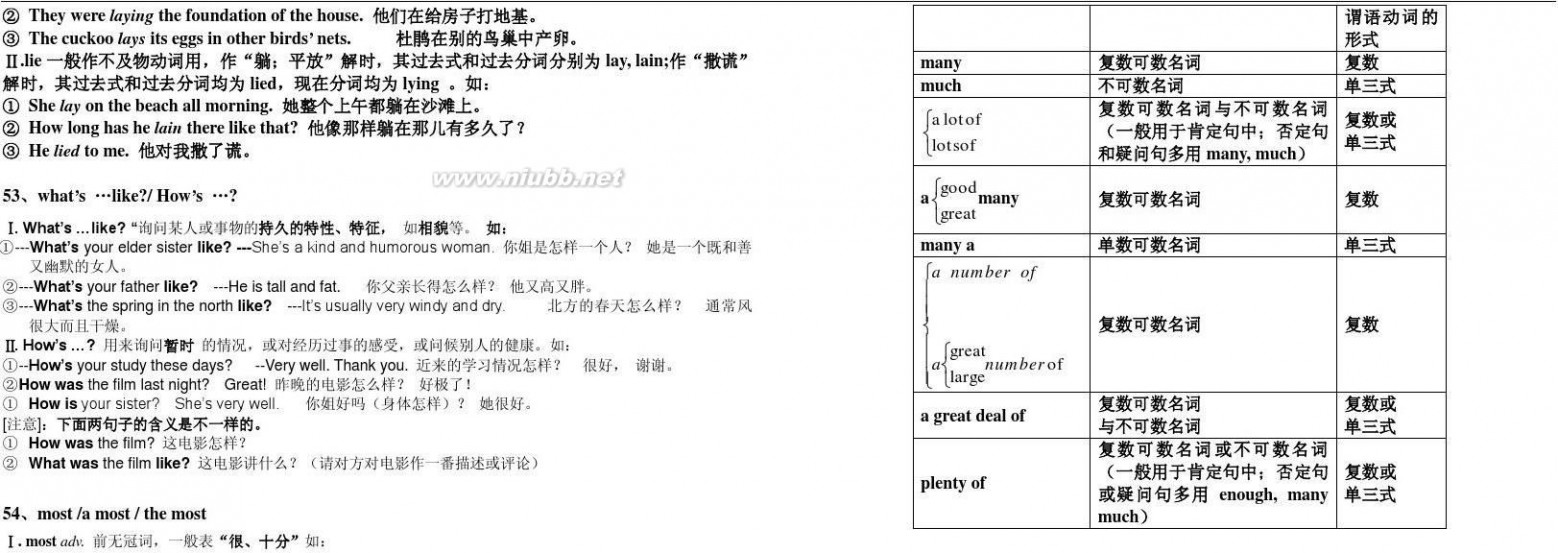
② The author is most serious in writing the essay. 作者写这篇文章的态度是很严肃的。(www.61k.com] Ⅱ. a most 后接形容词,修饰单数可数名词,意思是“很,十分”如: ① That was a most enjoyable party. 那是一次非常快乐的晚会。 ② These children lead a most happy life. 这些孩子过着非常幸福的生活。 Ⅲ. the most 是much or many 的最高级。意为“最”如: ① That?s the most beautiful place I?ve ever been. 那是我到过的最美丽的地方。
55、much too/ too much
Ⅰ. much too 太、非常, 用作副词词组,修饰形容词或其它副词。如:
① It?s much too cold today. 今天天气太冷。
② The old man walked much too slowly. 这位老人走得太慢了。 Ⅱ. too much “太多”有三种用法: 1. 用作名词词组。如:
③ You gave me too much. 你给我的太多了。 2. 用作形容词词组。修饰不可数名词。如:
④ I don?t like winter because there?s too much snow and ice.我不喜欢冬天,因为雪和冰太多了。 3. 用作副词词组,修饰动词,如:
⑤ Don?t speak too much. 别讲得太多。
8 / 13
57、next / the next
?Ⅰ. next
?
week 下周?Monday
下周一用于将来时态中 ???
month 下个月?year
明年??summer明年夏天???
Ⅱ. the next
?week 第二周
?
?Monday
第二周的周一用于过去时态中。有时也可用于将来时。如: ???
month 第二个月?year
第二年??summer第二年夏天???
① I?ll finish school next June. The next month I?ll go on trip to my hometwon. 明年六月我要毕业了,第二个月(即
七月)我就要回家乡。 ② She said in her letter that she would visit us the next week. 她在信中说她要在第二个星期拜访我们。
58、no / not
Ⅰ. no “不”既可作形容词,又可作副词。作形容词时用来否定名词、代词或动名词。作副词时,主要用于否定回答。 ① The poor boy had no money for books. 那个穷孩子没钱买书。 ② No smoking. 禁止吸烟。 ③ Isn’t he a teacher? No, he isn’t.
强调的近义词 近义词的详解与辨析
Ⅱ. not “不”只用作副词。(www.61k.com]用来否定动词、不定式、形容词或副词。通常放在“三类词”(情态动词,助动词,系动词)之后,行为动词之前。否定不定式时,直接放在不定式的小品词to前。如: ① I have not been to Beijing. ② He doesn’t like reading.
▲ no 和not 都可与形容词或副词的比较级连用,但句子的含义不同。如: ① I am no taller than he. 我不比他高。(两人都矮) ② I am not taller than he. 我不比他更高。(两人都高) ▲ no = not a 或not any 如: ① She has no books = She doesn’t have a book. = She does not have any books. ▲ no 表示它所修饰的名词的相反的意思。而not只能表示一般的否定。如: ① He is no teacher. 他根本(绝)不是老师。(不善于教书) ② He is not a teacher. 他不是老师。(可能是其它职业) ③ He is no fool = He is clever. 他不笨(他是聪明的) ④ He is not a fool. 他不是个傻子。
61阅读提醒您本文地址:
59、no longer/ not?any longer/ no more / not any more
Ⅰ. no longer = not ? any longer, “不再”强调时间和动作不再持续,常与状态动词和延续性动词连用,如wait, stay, be等。 但no longer与no more 一样通常放在“三类词(情态动词、 助动词、连系动词)”之后。行为动词之前。而not ? any longer 与not ? any more 一样,其中的not与谓语动词构成否定式,常放在“三类词”之后。any longer,与any more 放在句末。如: ① He?s no longer living in this city. 他不住在这个城市了。 ② You are not a child any longer. 你已不再是个孩子了。
Ⅱ. no more = not ? any more “不再”强调数量、次数上不再增加和强调动作终止的结果,因此,常与名词、瞬间动词连用,如hear, see, leave等。如: ① There?s no more bread. 不再有面包了。 He didn’t go there any more. 他再没去过那儿
60、 no matter what/ whatever/ what ever Ⅰ.no matter what“不管什么,无论什么”用来引导让步状语从句。类似的词组还有:no matter where “不论哪里”, no matter which “不论哪一个”,no matter how“不论怎样”如: ① They are going to win the football match, no matter how bad the weather is. 不管天气多么糟糕,他们会赢得这场足球比赛。 ② No matter who knocks, don’t open the door. 不管谁敲门,都不要开门。 ③ Give me a call first no matter when you come. 不管什么时候来,都请你先给我打个电话。
Ⅱ.whatever 是连接代词,可以作“无论什么”解,引导让步状语从句,可以这样用的连接代词或连接副词有whoever, whichever, whenever, wherever, however等。如: ① Whatever you do, do your best. =No matter what you do, do your best. 无论你干什么,都要尽最大努力去干。 ② Whoever telephones, tell him I am out. = No matter who telephones, tell him I am out. 无论谁给我打电话,就说我出去了。 ③ Wherever he may be, he will be happy. = No matter where he may be, he will be happy. 无论在什么地方,他都是乐呵呵的。
Ⅲ.whatever 还可以解作 “凡是??的;所??的东西”(anything that),用来引导一个名词性从句,这时不能用no matter what 替换。如: ① Take whatever you want. 你要什么就拿什么吧。 ② Whatever I have is yours. 我所有的东西全都是你的。 Ⅳ. what ever 中的ever意为“究竟;到底”,用在疑问词what后面,以加强语气,着重表示说话者
9 / 13
的情绪,如惊讶、愤怒、兴奋等,what ever 在意义上等于what on earth 或what in the world, 其他疑问词也可以这样用。如: ① What ever do you think you’re doing?你想想,你到底在干什么? ② Who ever left the door open?究竟是谁把门敞着不关? ③ Where ever did you pick up the pen? 你到底在哪儿捡到的这支钢笔?
61、personal/ personnel
Ⅰ. personal [`p?:s?nl]与 personnel[?p?:s?`nel]两个词音形相近,但词性和词义不同。如: personal 是形容词,“个人的;私人的;亲身的”。 ① That is my personal opinion. 那是我个人的意见。 ② She made a personal appearance. 她亲自到场。 Ⅱ. personnel 是个集体名词,没有复数形式。“全体人员;工作人员”如: ① Our personnel are very highly trained. 我们的工作人员训练有素。 ② The personnel are unhappy about these changes. 全体工作人员都不满意这些变动。
62、quick/ fast / rapid /soon
Ⅰ. quick “快”一般指动作敏捷迅速,毫不延迟,在较短的时间内发生或完成某项动作。如: ① She ran with quick steps to the house. 她快步跑进屋子。 Ⅱ. fast“快”主要用作副词。指运动着的人或物体速度快。 ① The watch is only two minutes fast. 这只表只快两分钟。
Ⅲ. rapid 指一个或一连串的动作迅速、敏捷,着重指运动本身,有时也指激流。如: ① The diligent boy makes rapid progress in his studies. 这个勤奋的男孩儿学业进步迅速。 ② Their country house stands by a rapid steam. 他们的农舍在急流的溪边。 Ⅳ. soon 着重指时间方面的快,可指现在或某个特定的时间的不久以后。如: ① He will come back very soon.他将很快就回来。
63、quite/ rather/ very 都是程度副词,意为:“非常、相当、很”,无比较级和最高级。其区别在于: Ⅰ. quite 可直接修饰动词。如: ① Some people don’t like the winter, but I quite like it.
Ⅱ. rather 不可直接修饰动词。语气稍强。可与would 连用构成 would rather?than?这个平行连词结构。如: ① She is rather tall. 她相当高。 ② Iwould rather stay at home(than go for a walk) 我宁愿呆在家里。(也不愿到散步) ③ I would rather you stayed at home. ④ I would rather listen to music than to swimming. 我宁愿听音乐,也不愿去游泳。 Ⅲ. very 也不能直接修饰动词。修饰形容词或副词时,语气最强。如: ① I like English very much = I quite like English. ② His English is very good. (程度强=excellent) →His English is quite (rather) good. (程度轻=not bad) [注]:quite (rather) 和very 与“不定冠词+形容词+名词”连用时位置不同。其排列顺序是: ▲ “quite + a (an) +adj + noun” 如: ① This is quite an interesting film. “a + very + adj + noun” 如:
① I watched a very interesting TV play. quite:The girl is quite beautiful.
强调的近义词 近义词的详解与辨析
quite一般修饰好的方面。[www.61k.com]当very修饰褒义的东西时,可以与quite互换。 rather:The girl is rather ugly.
rather一般修饰坏的方面。当very修饰贬义的东西时,可以与rather互换。
rather多用于贬义形容词、too及比较级前。如:It was a rather difficult question. 这是个相当难的问题。Shut up! You are talking rather too much. 闭嘴!你说得实在太多了。
61阅读提醒您本文地址:
64、such so
当单数可数名词前面有形容词修饰时,也可以有 so, 但要调整冠词的位置。 ① He told us so funny a story. 他给我讲了一个如此有趣的故事。
如果被修饰的名词前有表 “多”或“少”这两个意义的 many, much, small 和 little 时,用 so 而不用 such. 如: ① Don’t bame him. He is just such a little boy. 别责备他,他只是这么小的一个孩子。 ② We have a long way to go yet, but there’s so little water left. 我们还有很长的路要走,但所剩的水已很少了。
65、talk with/ talk of/ talk on/ talk about
Ⅰ. talk with 后接的对象作宾语,介词with可用to代替。如: ① He was talking with / to a friend. 他在与一位朋友谈话。
Ⅱ. talk about “谈论”,后接谈话的内容,宾语可以是人,也可以是物。如: ① What are you talking about ?你们在谈论什么? ② Let’s not talk about it now. 咱们别谈这事了。
Ⅲ. talk of “谈到、谈及”,与talk about 同义,只是talk of 仅指“浅谈表面现象(如作者、书名等)”如: ① We often talk of you. 我们常谈到你。
Ⅳ. talk on “论述”不仅指内容,而且还指评论。如: ① They seldom talk on politics in those days. 那时候他们很少谈论政治。
但在表示提起某事时倾向于tell of ;在表示详细地讲述有关情况时,倾向于tell about。如: ① Have you told your mother of your idea? 你把比的想法告诉你母亲了吗? ② I told her about that the other day. 前些天我和她谈了这件事。
66、think of / think about/think over
Ⅰ. think of “想起、记起;有??想法、看法;对??有意见;考虑” 如: ① Will you think of me after I?ve left? 我离开后,你还会记着我吗?
② I know the person you mean,but I can?t think of his name. 我知道你讲的人是谁,但记不起他的名字。 ③ We are thinking of going to Spain for our holiday this year.我们今年有 到西班牙去休假的想法(打算)。 ④ What do you think of my new dress? 你认为我的新衣服怎么样?(可与think about 互换) ⑤ She thinks of no one but herself.她除自己外不考虑任何人。
Ⅱ. 当它作“想到过去的某事”或“考虑到某事”解时,常与think about 通用。即:“??考虑”;“对??看法” ① We have many things to think of / about before going there. 在动身去那之前,我们还有许多事情要考虑。 ② 见Ⅰ④
Ⅲ.think about 可以表“想、回想”着重于想的过程。如: ① I am thinking about the friends I have lost.我正在回想那些失去了的朋友。
[注]:think of 可以表“想象一下,想想”而think about 则不能。—→Think of your mother!想想你的母亲吧! —→Think of the danger! 想象一下危险吧! Ⅳ.think over “仔细考虑”其中over 是副词。如: ①I will think the thing over. 我要把这事仔细考虑一下。
67、think much(well) of/ think highly of/think little(poorly) of/ sing high praise of/ speak highly of
Ⅰ. speak highly of “高度评价,赞扬”,相当于 think highly of 如:
10 / 13
① Our headmaster spoke highly of my classmates at the meeting. 我们校长在会上高度赞扬了我班的同学。 ② The people speak highly of the TV play. 人们对这部电视剧评价很高。 [注] speak 构成的短语:
speak English 讲英语(某种语言);speak to sb. 和某人交谈; speak well / ill of 说??的好/坏话;speak like a book 大胆地说 speak for oneself 为自己辩护。
Ⅱ. think much well of “对??印象很好”如: ① We all think well of your suggestion. 我们都认为你的建议很好。 Ⅲ. think little / poorly / badly of “对??印象不好”如: ① You thought very badly of him at first, didn?t you? 起初你对他印象很坏,是吧? Ⅳ. think much of “比??更看重(考虑得多)”如: ① He thought more of health than of money. 和金钱相比他更看重健康。 Ⅴ. sing high praise for “高度赞扬某人/某物”
68、very 作为形容词,常与the, this或my, your等连用,以加强语气,表“正是那个”“恰好的”等。如: ① You are the very person I?m looking for. (= You are the right person ?) 你正是我要找的人。 ② The two men fought on this very spot. (= right in this place) 那两个男子就是在这个地方打起来的。
69、work / job
Ⅰ.job “工作”,既可指固定的工作,也可指临时的或某项具体的工作,是可数名词,前面可用不定冠词a, 也可以有复数形式。如: ① John lost his job. John失业了。 ② There were just not enough jobs.没有 那么多的工作(可干)。 ③ Tom?s father is looking for a job.
Ⅱ,work 是个普通用词,泛指一切工作,是不可数名词。如: ① I have a lot of work to do this evening. 教师的工作就是教学。 ② A teacher?s work is teaching.老师的工作就是教学。 [联想]:搭配
apply/hunt for a job.求职 get/ find a job.找到一份工作 lose one’s job。失业 perform odd job.打零工 quit a job. 辞职 have/work a side job 兼职 take a part-time/full-time job in a department store. 在百货公司担任兼职或专职工作。
70、work at/ work on
Ⅰ. work at 与work on 都可以作“从事于”,后接名词、代词、或动词-ing 形式作宾语。 Work at 侧重于表示所从事的工作和性质,而不在于说明正在做什么。此时可将work at 译为“学习,研究,写作,致力于”等。如: ① They have worked at this subject for many years. 他们研究这个课题已经有好多年了。 ② He is working at a new invention. 他正致力于一项新的发明。 Ⅱ. work on 侧重于表示“从事某项工作”。可将它译为“造;创作;画;做??”。宾语为其具体的对象。常用于进行时态和完成时态。还可表示:“继续工作;对??起作用”如: ① We’re workin on some wood-cuts. 他们正在创作一些木刻作品。 ② He has been working on this painting for days. 这张画他已画了好些天了。 ③ They will work on till sunset. 他们将继续工作,直到日落。 ④ This medicine will work on the affected part. 这药能对患部起作用。
61阅读提醒您本文地址:
71、miracle一般指被认为是人力所办不到的奇异的事情 wonder主要指人创造的奇迹
72、above all 首先;尤其是;最重要的是 He is strong, brave and, above all, honest. 他强壮,勇敢,最重要的是他诚实。
强调的近义词 近义词的详解与辨析
after all 毕竟;终究;到底
It turned out he went by train after all. 结果他还是乘火车去的。(www.61k.com] at all
1、(否定句)丝毫;根本 I don't like her at all. 我一点都不喜欢她。
2. (问句、条件句及肯定句内表示强调)究竟 He'll come before 12 if he comes at all. 如果他真的要来的话,肯定在十二点以前。
Is it at all possible that he alone can drink ten bottles of beer? 难道他真的能独个儿喝十瓶啤酒吗?
73、shut off 关掉, 排除, 切断, 隔绝 Tell him to shut off the motor. 告诉他把发动机关掉。
You must shut the gas supply off if there's a leak. 煤气泄漏时,必须把截门关上。
His deafness shuts him off from the lives of others. 他耳聋阻碍了他与别人的交往。
The village is shut off from the world by lakes and marshes. 这个村子周围有湖泊与沼泽地,隔断了与外界的联系。
74、1. agree (to sth) 意为“同意;愿意;答应(某事物)”。如:Is he going to agree to our suggestion? 他会同意我们的建议吗?
2. agree with sb 意为“适合(某人的健康或胃口)”,尤用于否定句或疑问句中。如:The climate there doesn't agree with him. 那里的气候对他不合适。
3. agree (with sb) (about / on sth) 意为“同意;(与某人)意见一致”。如:We couldn't agree on a date/ when to meet. 关于日期(什么时候见面),我们没有能取得一致意见。
4. agree sth意为“在某事物上取得一致意见;商定”。如:Can we agree a price? 我们能不能商定一个价格?
5. agree (with sth) 意为“与(某事物)相一致;相符合;相吻合”。如:Your thoughts didn't agree with mine. 你的想法和我的想法不一致。
6. be agreed(on /about sth)意为“达成协议;意见一致”。如:We are all agreed on the best action. 我们都同意这一最佳措施。
11 / 13
7. agree后面还可以接宾语从句,即be agreed that ...如:It was agreed that another meeting was necessary. 大家都认为有必要再开一次会。
75、
set up+抽象名词 put up+具体名词
construct+建筑 较build正式 set up 创立,建立
例子:Plenty of foreign firms have set up factories here. 很多外国公司已在这里开办工厂。 put up 建立; 竖起
例子:I want to put up a fence between our property and our neighbor's. 我要在我们和邻居的地产之间修道篱笆。 construct 修建, 建立
例子:They constructed the bridge in a year. 他们花一年时间建起了那座桥。 build 开发, 创建
例子: He built a school for the blind. 他创办了一所盲人学校。
区别:一般建房,工程那些用construct,build,其中build也可以用在一些抽象的东西上。set up 创立,有创始的意思,put up 用于小的建筑。buid是建筑,或者建起抽象的东西(房屋,习惯等) set up 主
要是建立组织, found和establish 是建立层面较大的机构。 区别主要是这个。 found:v.[T]
76、close(adj (-r, -st)) ,near (-er / ?n??r?(r); ˋn?r?/ -est / ?n??r?st;ˋn?r?st/), nearby 它们都有一个意思就是“在空间范围上很接近的”,
例如an airport close to town城镇附近的机场 a nearby library附近的图书馆
an inn near London靠近伦敦的酒馆
close 作定语修饰名词,表示关系密切,严厉,仔细详细。
其中close,near的意思更广,它们也有“在时间,程度上很接近的”意思 The children are close to each other in age. 孩子们彼此的年龄很接近. Their birthdays are very close together. 他们的生日紧挨着.
We hope to move to the country in the near future, ie very soon. 我们希望最近搬到乡村去住. 4.15 is too near to the time of departure. 4点15分离分别的时间太近了. a close friend 死党(很亲密的朋友) a near relative 近亲
但是nearby不可以这么用,它只指空间上接近 kin亲属
next of kin: 最近的血亲;最亲的亲戚 near kin:近亲 close kin:至亲
强调的近义词 近义词的详解与辨析
也就是说,close kin>next of kin>near kin
77、alive/ living/ the living/ live/ dead
Ⅰ. alive adj“活着的”“在世的”,它既可修饰人也可修饰物。(www.61k.com]可作表语,定语。作定语时,应放在被修饰的名词之后。如: ③ They were alive and as happy as ever. 他们都还活着,并跟以前一样快活。 ④ All the other comrades were killed in the battle. He was the only man alive. 所有的同志都还活着亡了,他是唯一
的幸存者。
Ⅱ.living adj,“活着的”主要用着定语,常置于名词前,有时也可置于名词后。也可作表语。如: ③ Every living person has a name. 每个活着的人都有一个名字。 ④ No man living could do better. 当代人没有一个能做得比这更好。 Ⅲ. the living “活着的人”如:
The living are more important to us than the dead.对我们来说活着的人比死了的人更重要。
Ⅳ. live adj. “活着的”读着[laiv],反义词为 dead, 可作定语,放在所修饰的名词之前,一般不用来修饰人。 还可以作动词,读着[liv], 意为“生活”、“生存”如: ③ The cat was playing with a live mouse. 这只猫在玩弄一只活老鼠。 ④ Pandas usually live in the south and the southeast of China. 熊猫通常生活在中国的南部和东南部。 Ⅴ. lively adj. [?laivli](livelier, liveliest) “生动的”;“活泼的”;“充满生气的”用作表语或定语,可用来修饰人或物。如:
61阅读提醒您本文地址:
The sports ground is lively with all sorts of ball games. 运动场上进行着各种球类比赛,呈现出一派生气勃勃的景象。
78、mostly 通常表数量,大多数,例如They mostly are girls. 表示他们大多数是女孩。
mainly 通常表示主要地,不表数量,例如 The article is mainly about friendship. 这个文章主要是讲友谊的。
mostly有大部分;主要地,多半地, 大部分, 通常 的意思; The audience consisted mostly of women. 观众主要是妇女。
Our weather has been mostly warm. 我们这里的天气多半是暖和的。 The earth here is mostly clay. 这儿的土大部分是黏土。
Most of the Americans use their cars mostly for their job. 大多数美国人的汽车主要是用来上班的。 mainly则有大体上, 主要地 的意思;
This school is mainly for boys; there are only a few girls in it. 这所学校主要招收男孩,女孩极少。
79、
right away/off 马上
He didn't answer right away. 他没有马上回答。 right now 就是现在 He is crying right now. 他现在正在哭。
I'm doing my homework right now.强调现在 I'll go home right away.强调将来
12 / 13
right away作为副词短语可以用在句尾,right now比较口语化,一个短语就是一个句子,原版影片中经常看见。
80、compare…with…表示“把……与……相比(同类相比)”, compare…to…表示“把……比做……(异类相比,比喻)”。
在表示“把……与……相比”时,compare…with与compare…to…皆可用,尤其是用在过去分词作状语的句子中。
Shakespeare compared the world to a stage. 莎士比亚把人世比做舞台。
Compare your answers with those at the back of the book to see if they are right. 把你的答案同书后面的答案对照一下,看看是否正确。
81、country/ state/ nation
Ⅰ. country “国家”着重指疆土而言。“乡下、农村”相当于countryside, 但它指风景而言。如: ① This country is in the south of Europe. 这个国家在欧洲南部。 ② Germany and France are European countries. 德国和法国是欧洲国家。 ③ The countryside around Nanjing is beautiful at this time of the year. Ⅱ. state “国家”着重指政权而言。如: ① I?d like to borrow a copy of “The State and Revolution”.我想借一本《国家与革命》。 ② The state is an organ of violence at service of class rule. 国家是阶级统治的暴力机器。 Ⅲ. nation “国家”着重指人民而言。如:
Two friendly nations support each other. 两个友好国家互相支持。
82、custom
[C, U] usual, generally accepted and long-established way of behaving or doing things 习俗; 风俗: It is difficult to get used to another country's customs. 要适应另一国家的风俗习惯是很困难的. [C] thing that sb habitually does; practice 个人的习惯: It is my custom to rise early. 早起是我的习惯. habit
[C] thing that a person does often and almost without thinking, esp sth that is hard to stop doing 习惯: It's all right to borrow money occasionally [??kei??n?li], but don't let it become a habit. 偶尔借点钱倒没什麽, 只是不要成为一种习惯. (b) [U] usual behaviour 惯常的行为; 习性; 脾性: I only do it out of habit. 我做这事只是出於习惯.
83、pleasant / please / pleased /pleasing / pleasure
Ⅰ. pleasant 为形容词, “令人愉快的” “令人舒适的” 主要指使人心满意足,将快乐给予他人的性格、活动氛围、状态或场合,也可用于事物。如 ① She has a pleasant voice. 她的声音悦耳。 ② The weather there is not very pleasant. 那儿的天气不太宜人。 Ⅱ. pleased 为形容词,“感到高兴”,相当于 glad 或 happy,后面可接不定式、at doing, with sth 或 that 从句。 ① We are very pleased to see you here. 我们很高兴在这儿见到你。 ② I am pleased that they have dedided to come. 我很高兴他们决定来。 ③ He was pleased with my progress.他对我的进步感到满意。
Ⅲ. pleasing “令人喜欢的;令人愉快的”主语一般是物。如①She has got a pleasing voice.. 她的声音很悦耳。 Ⅳ. Pleasure 是名词,大多用于客套语中。如: ① I have had the pleasure of meeting your father before. 我以前有幸见过令尊。 ② --Will you lend me a hand? --With pleasure. 请你帮一下忙好吗? 好的。
强调的近义词 近义词的详解与辨析
13 / 13
61阅读提醒您本文地址:
本文标题:近义词辨析的方法-burst的近义词辨析61阅读| 精彩专题| 最新文章| 热门文章| 苏ICP备13036349号-1